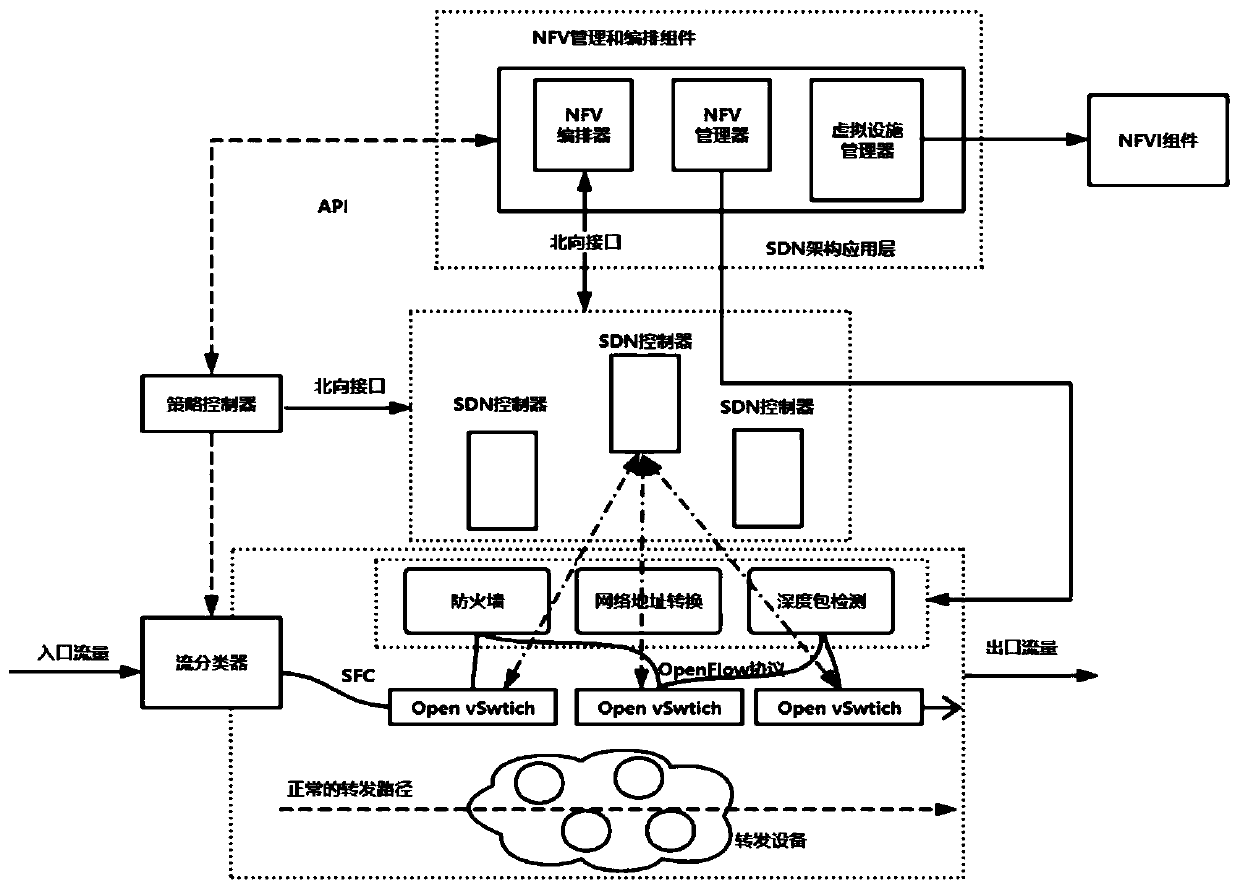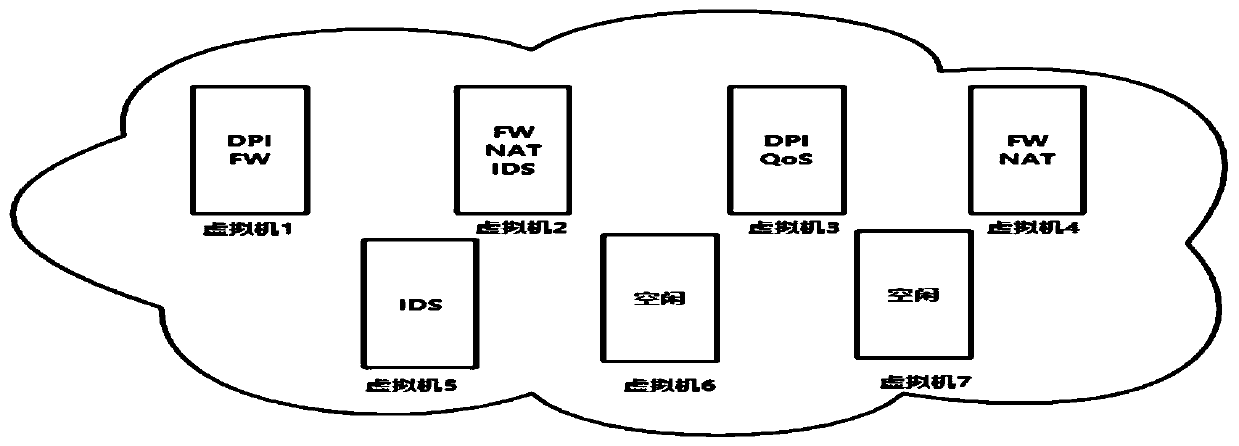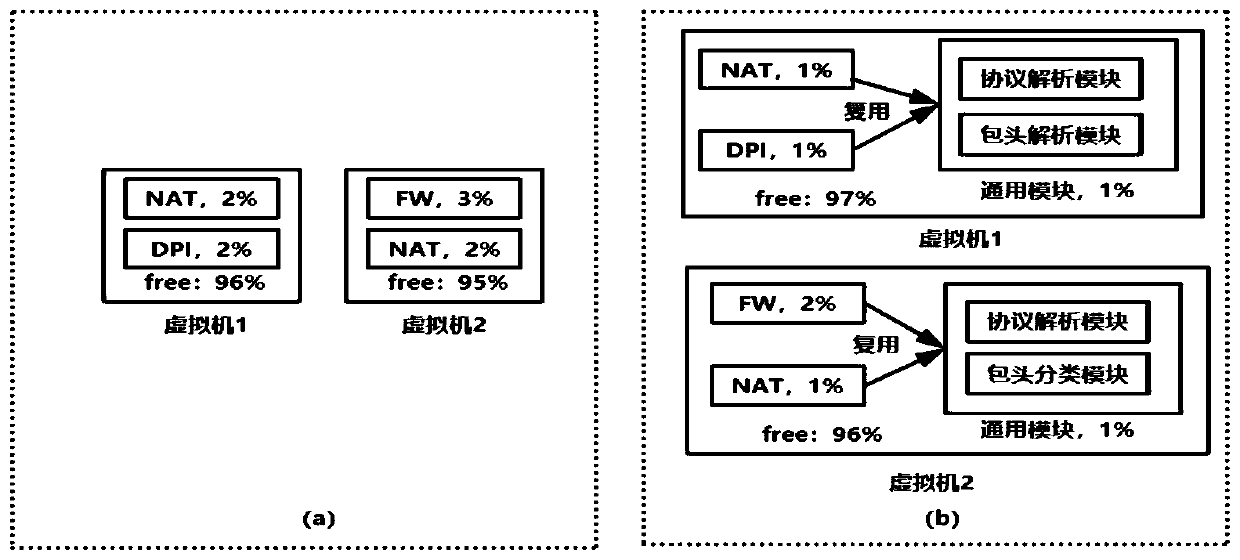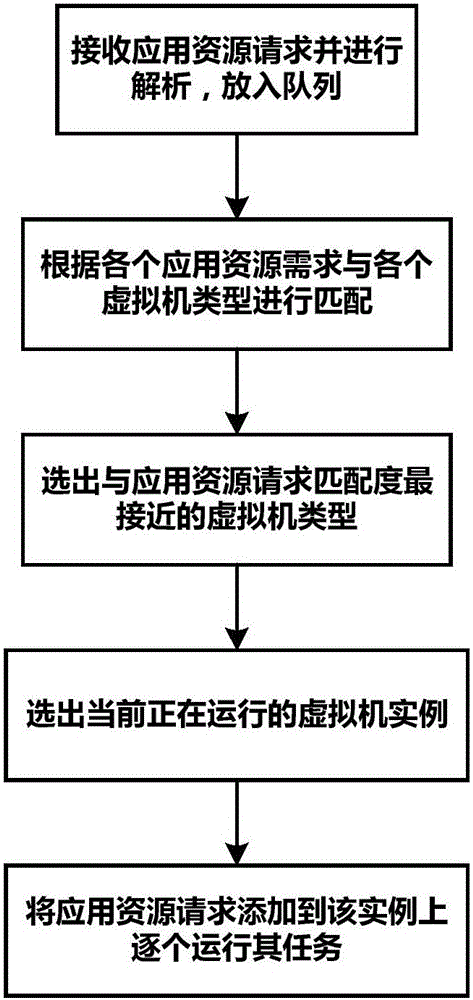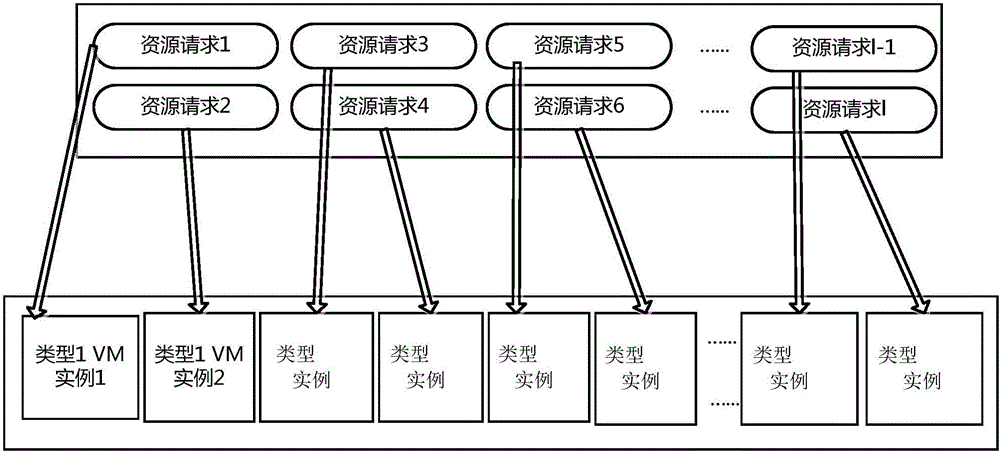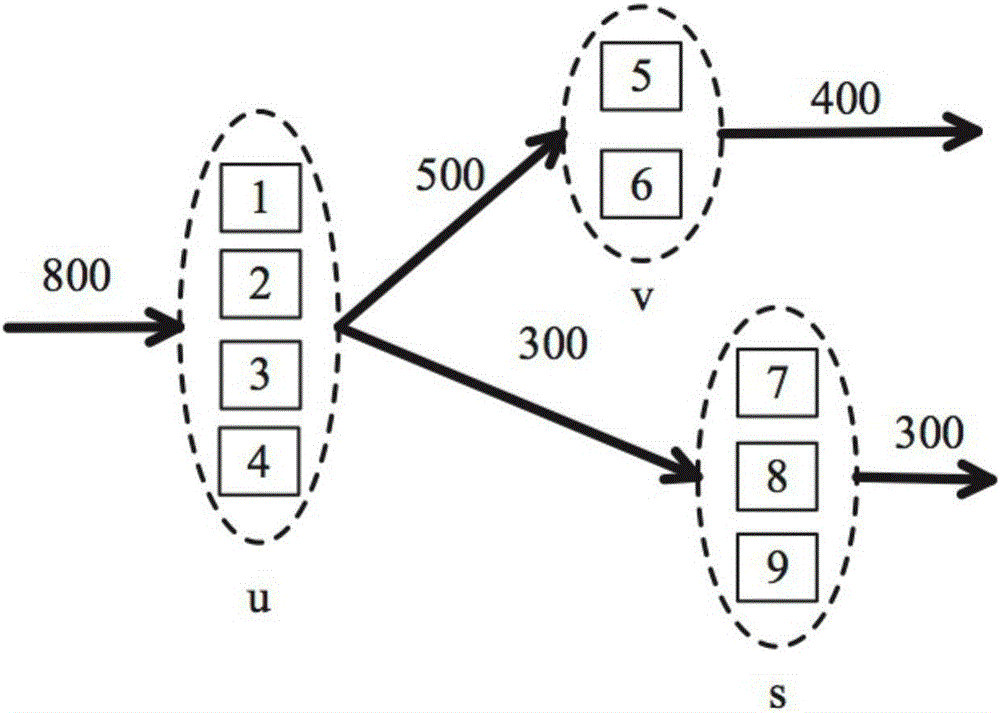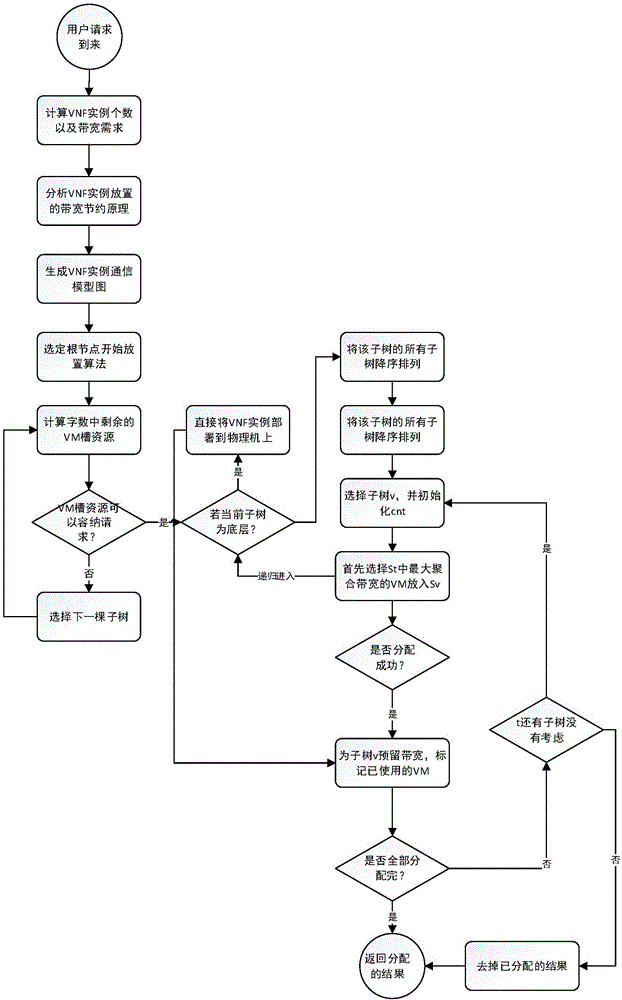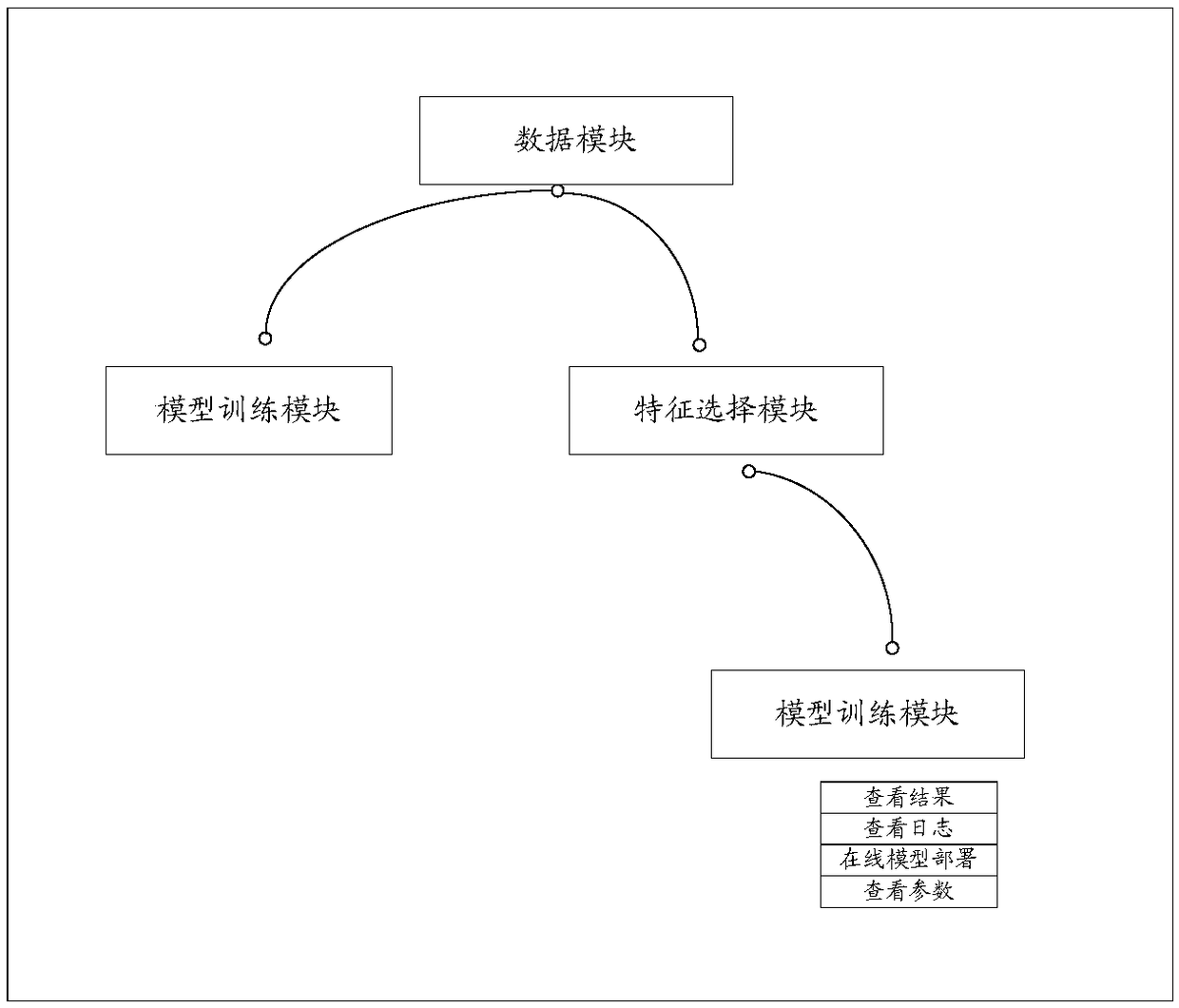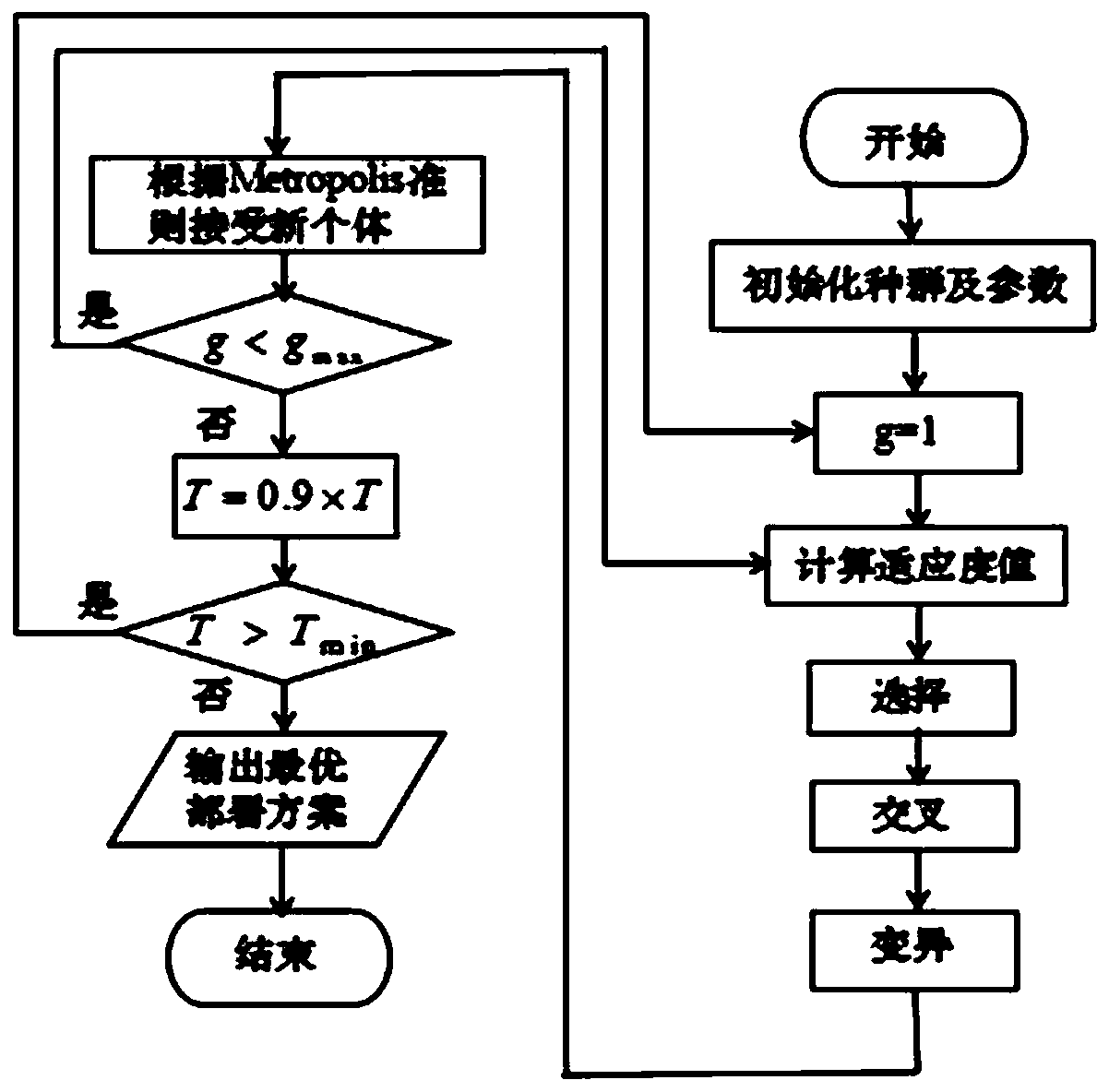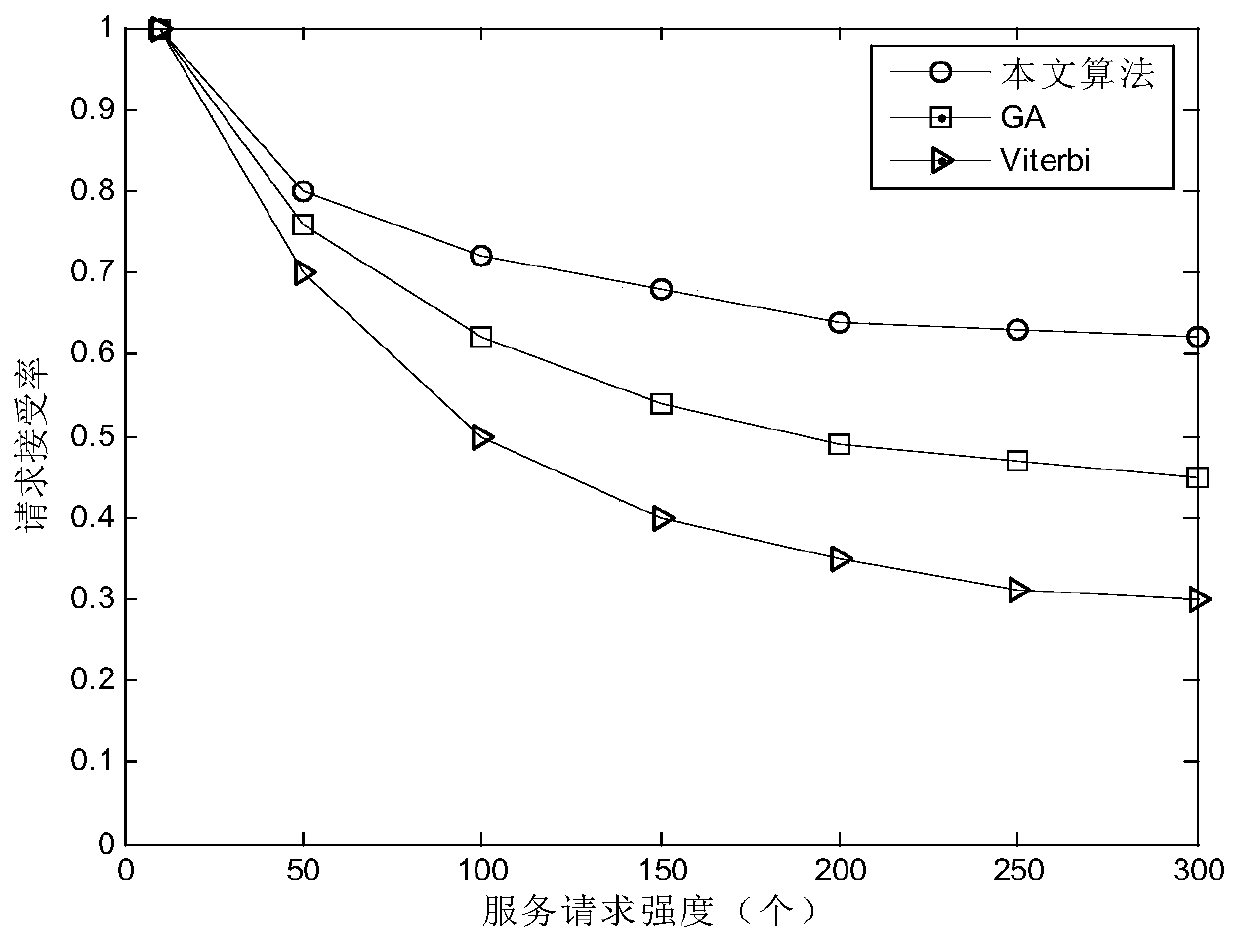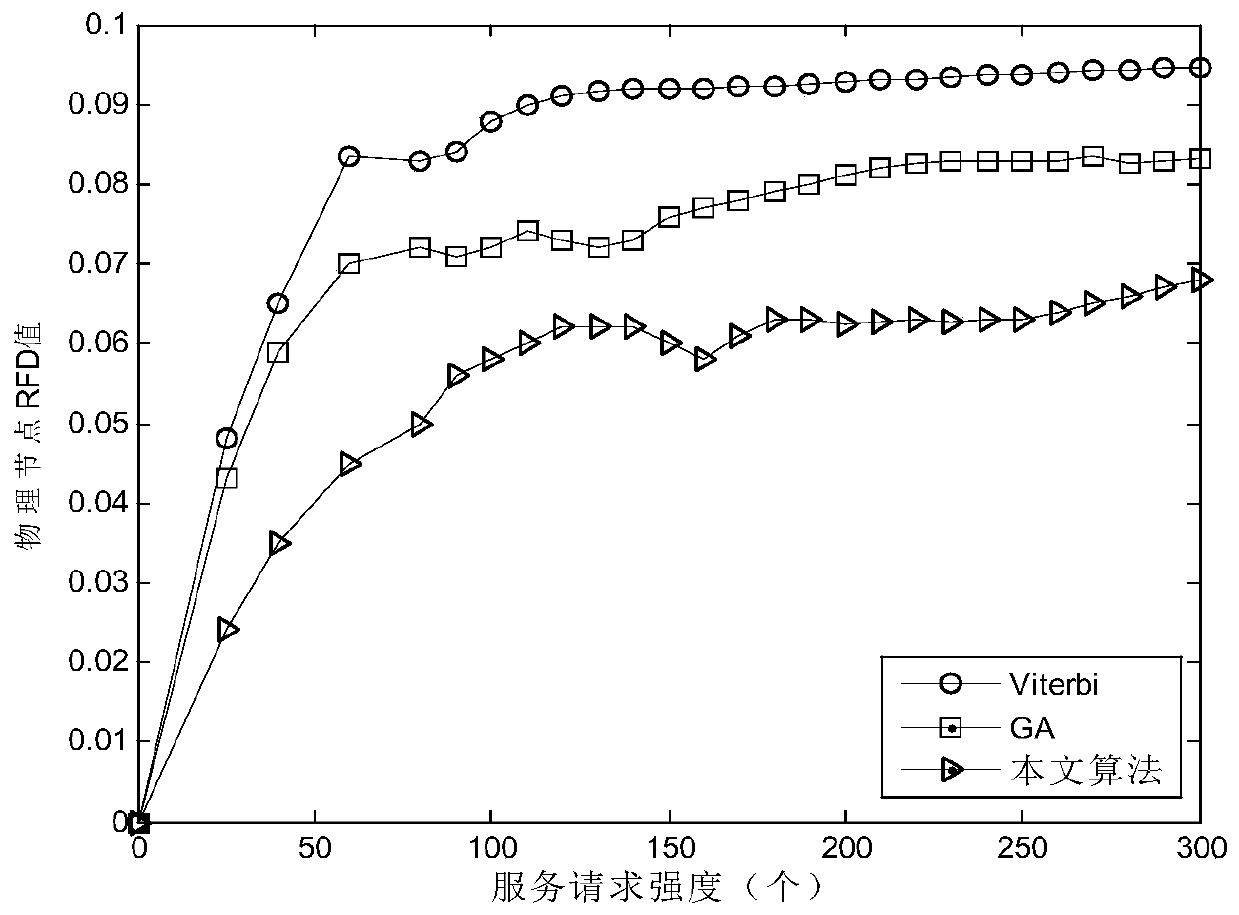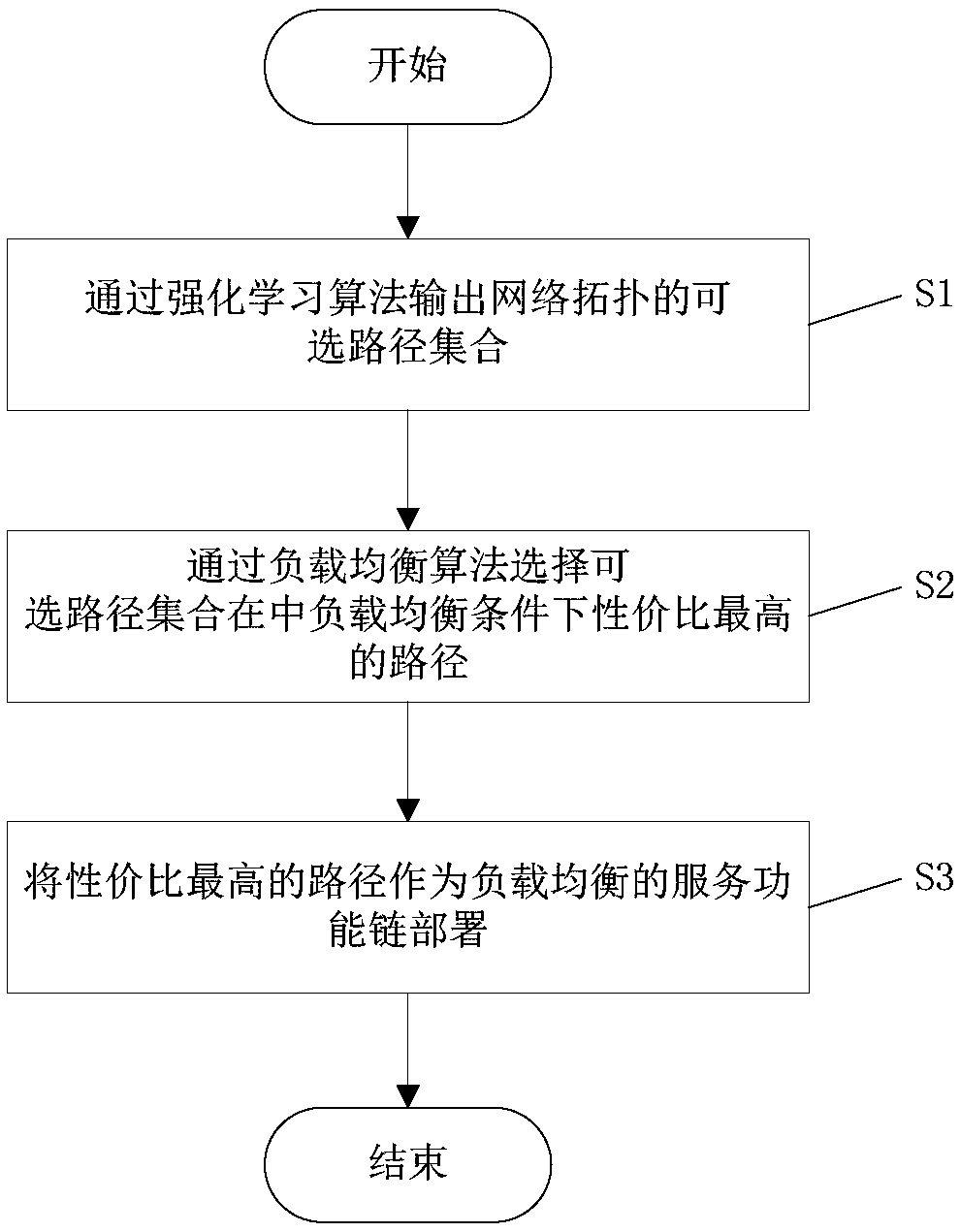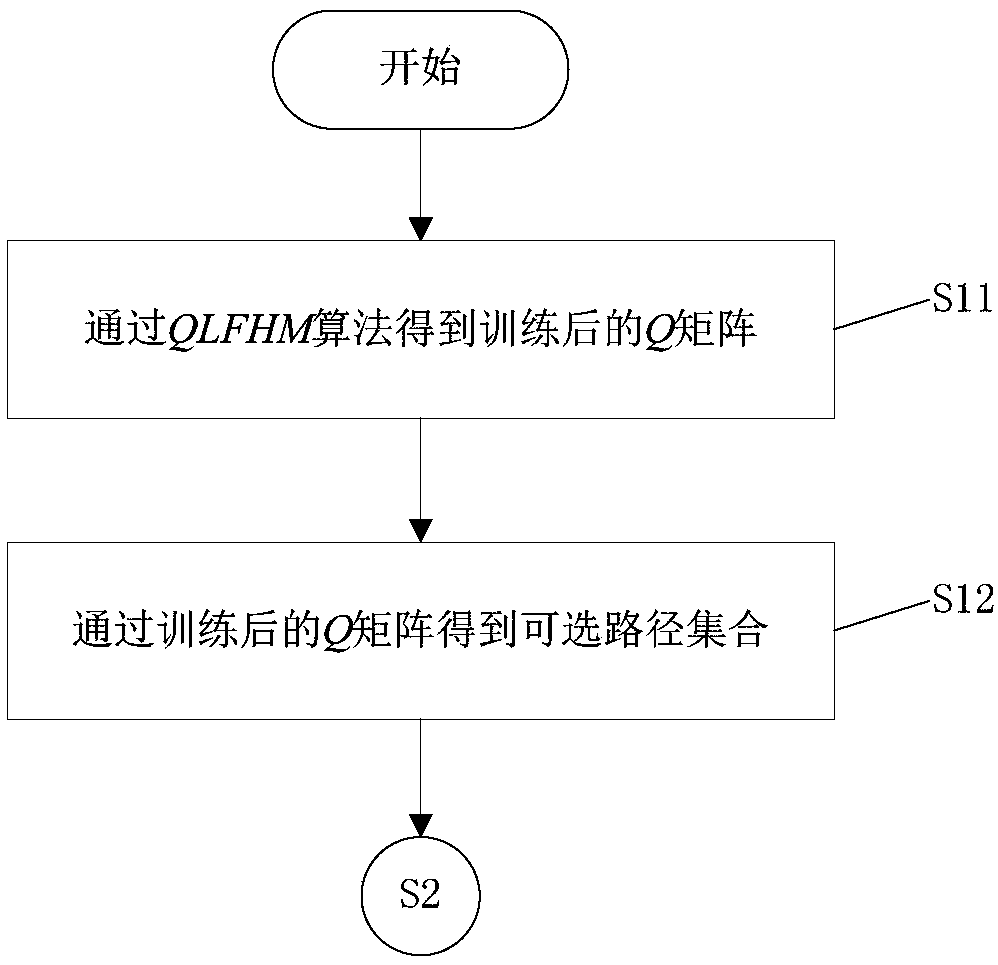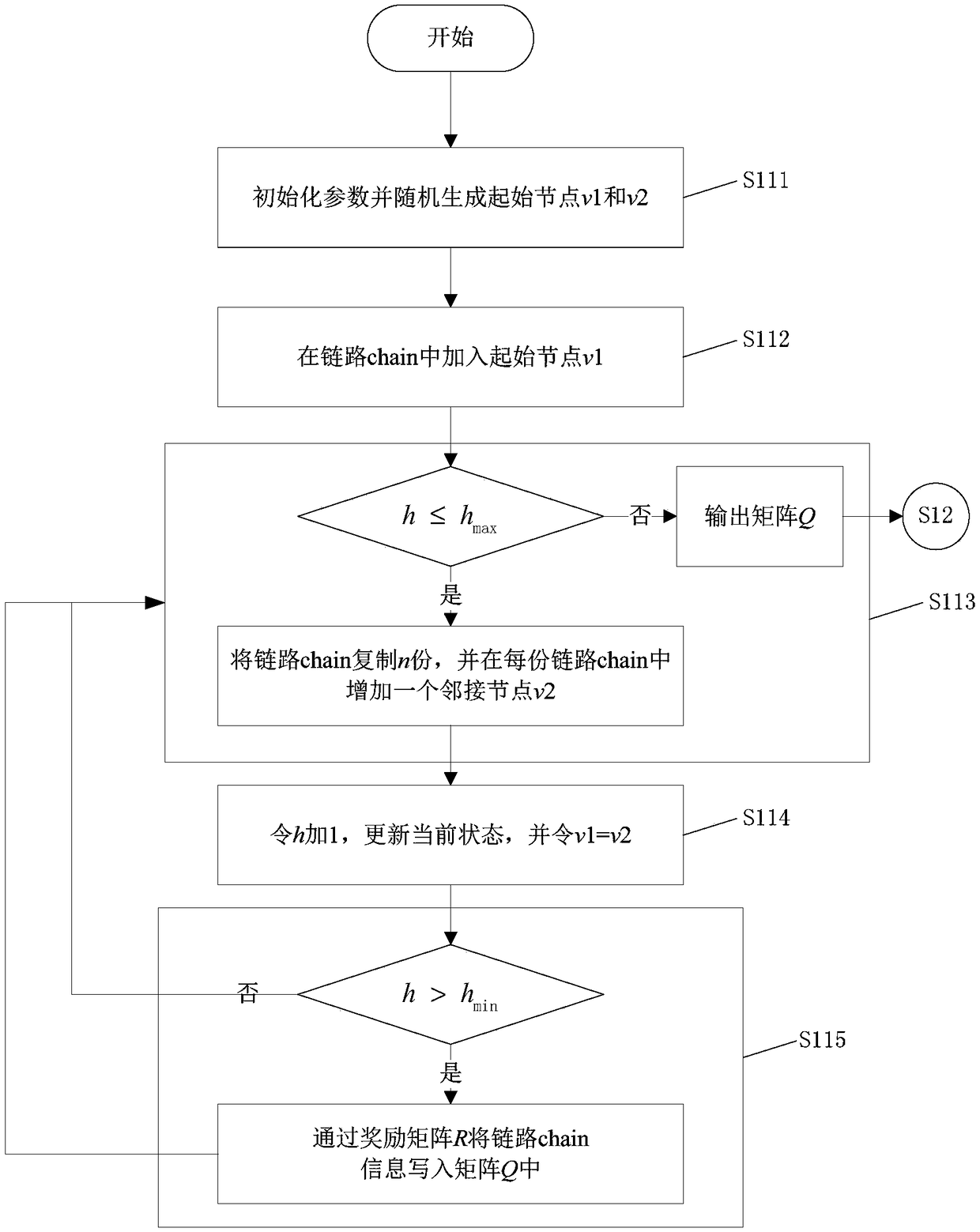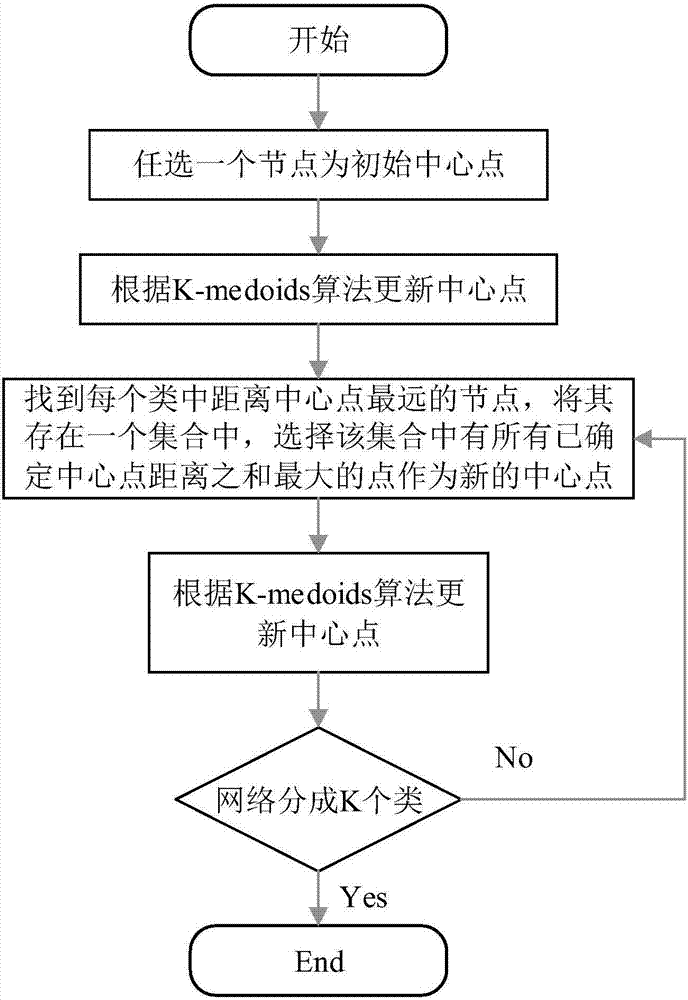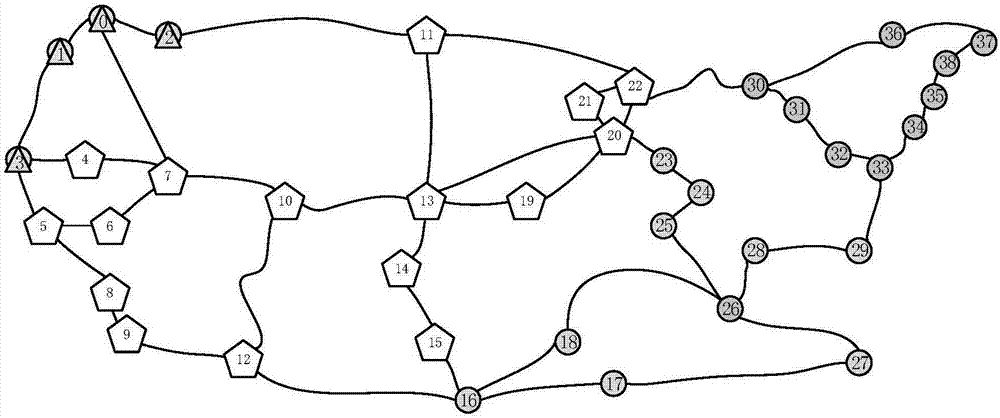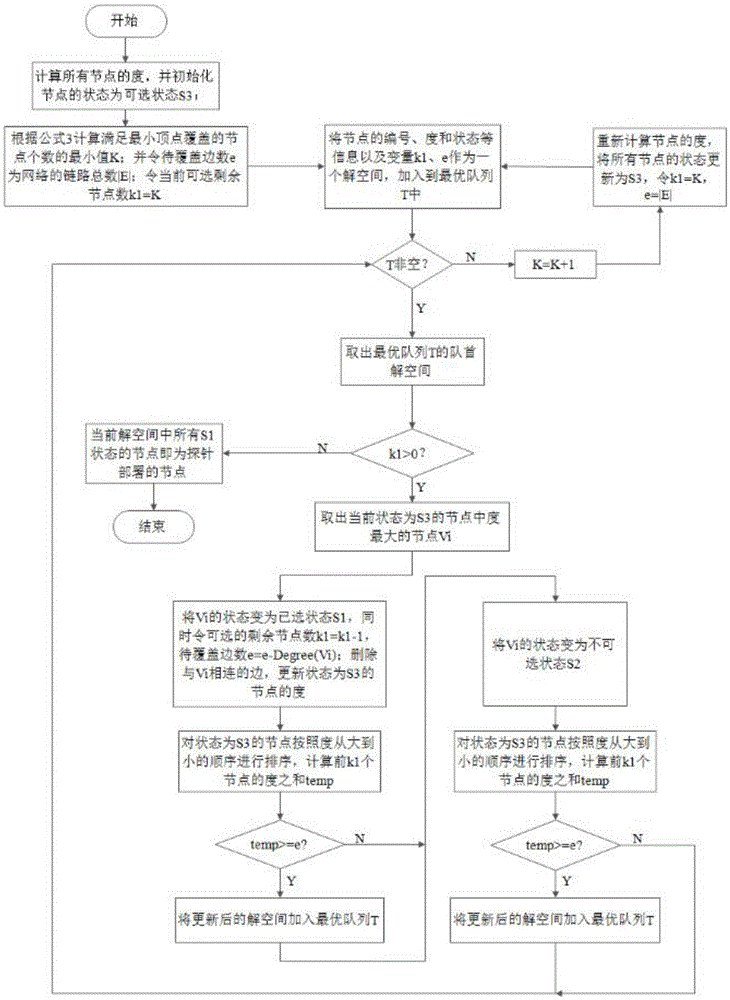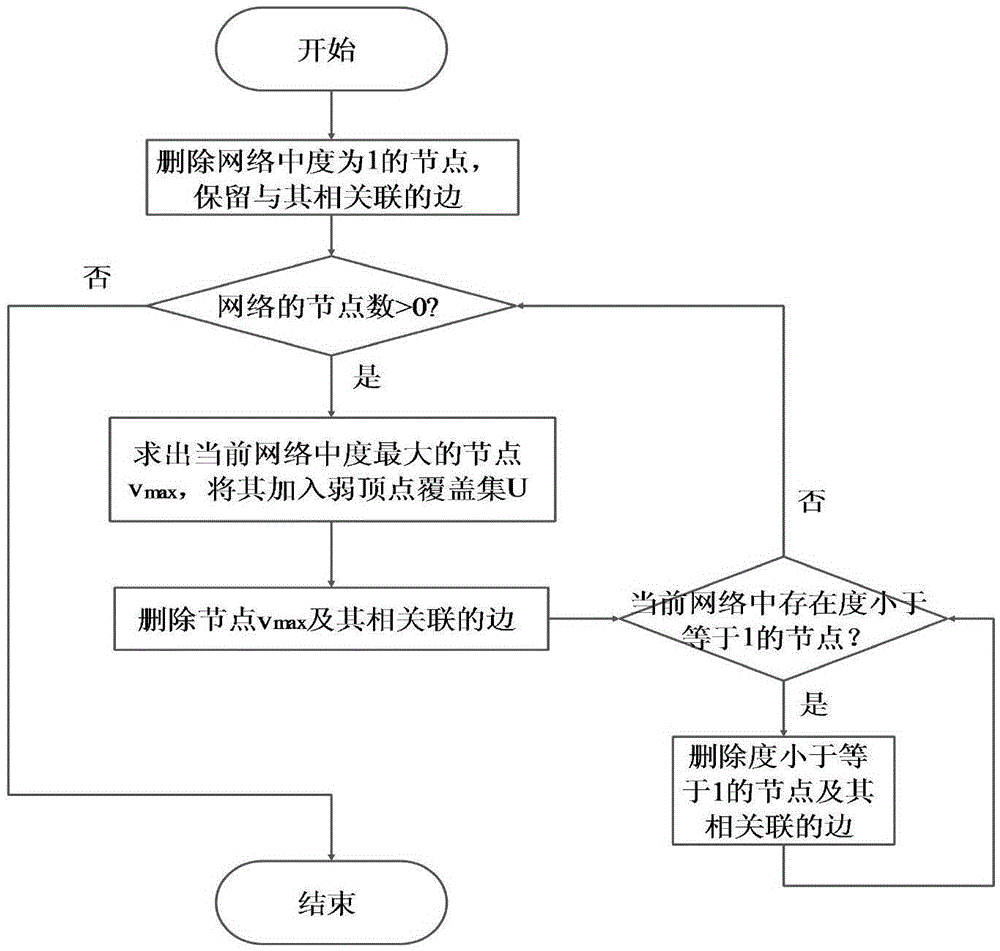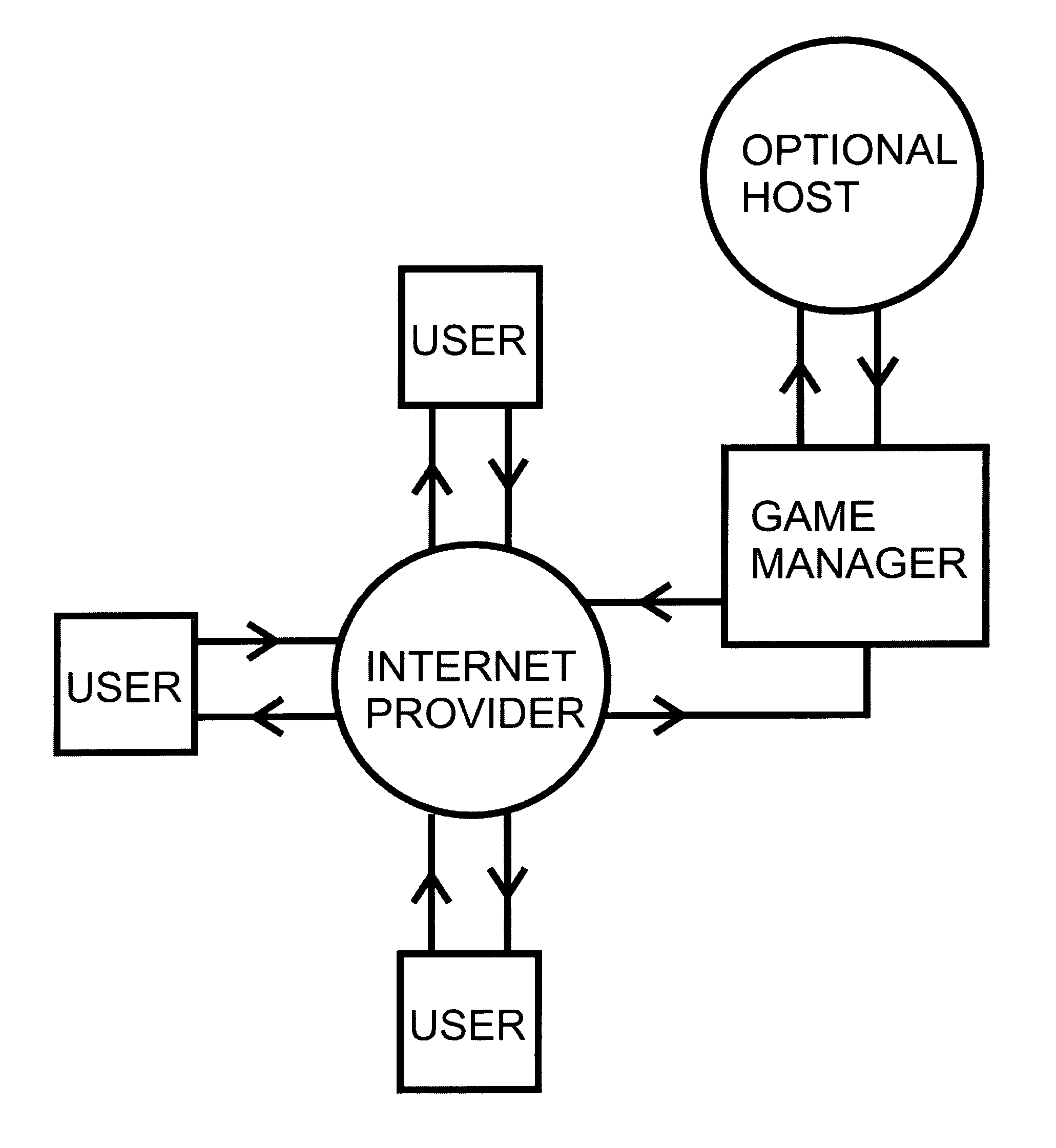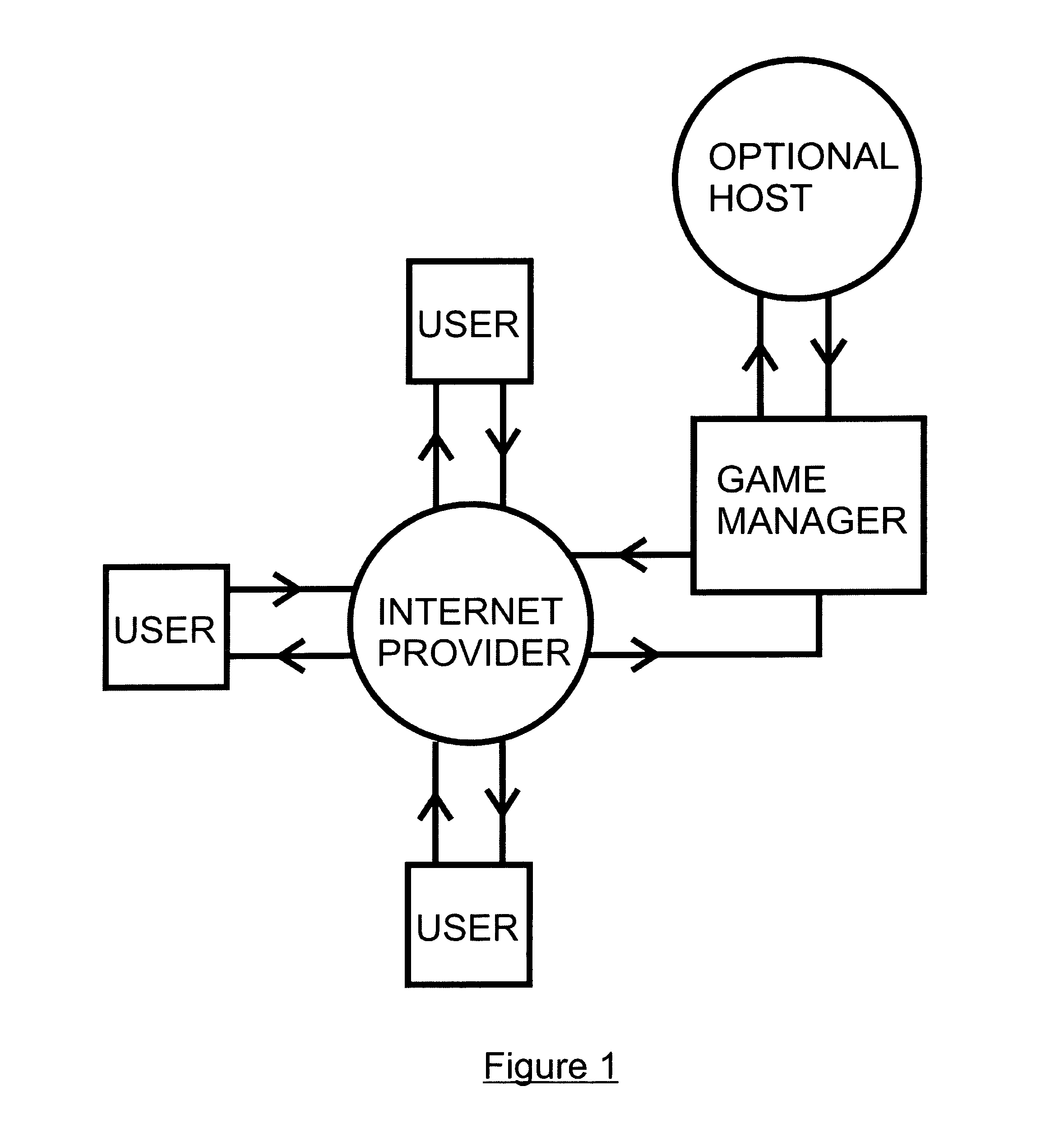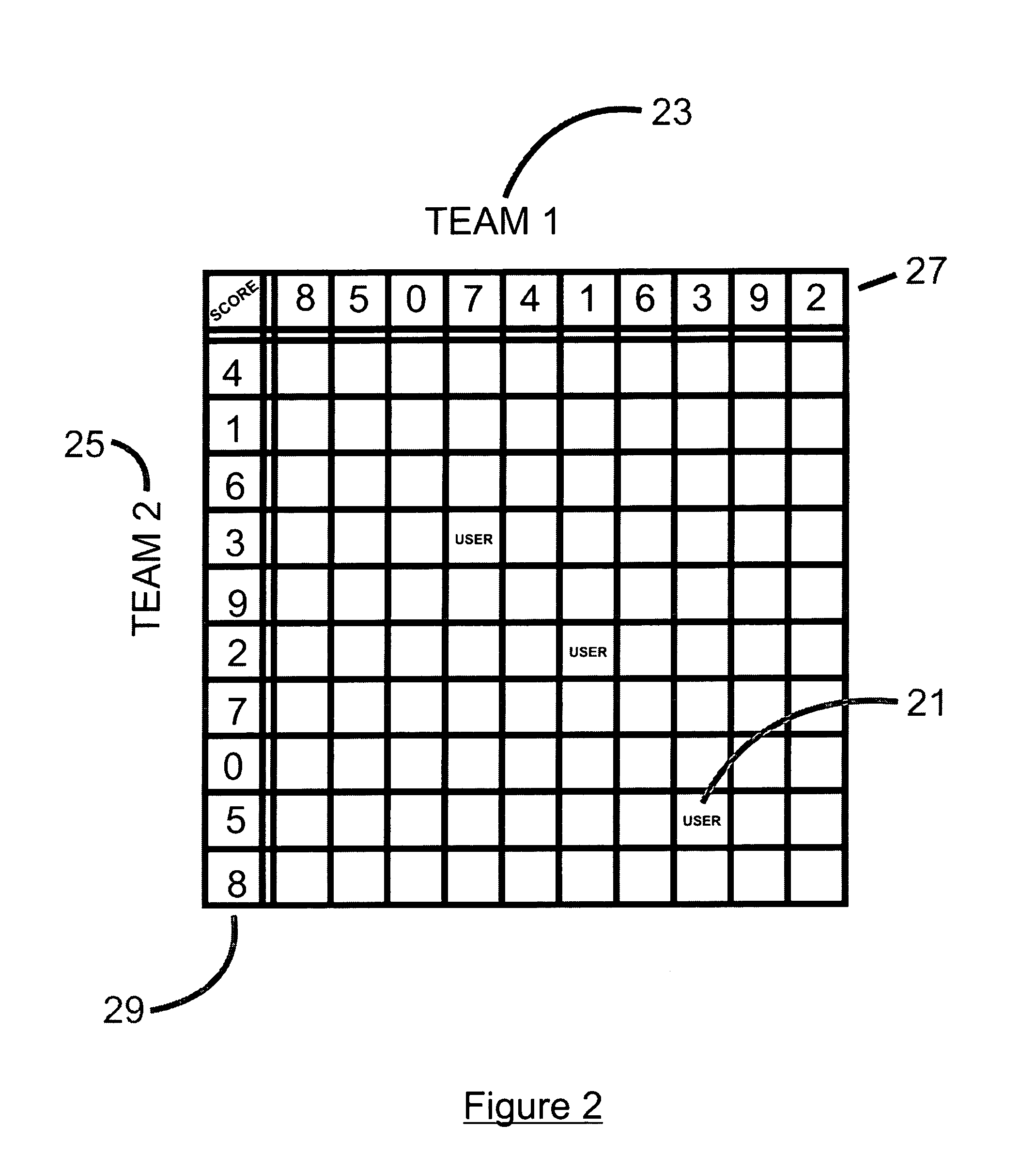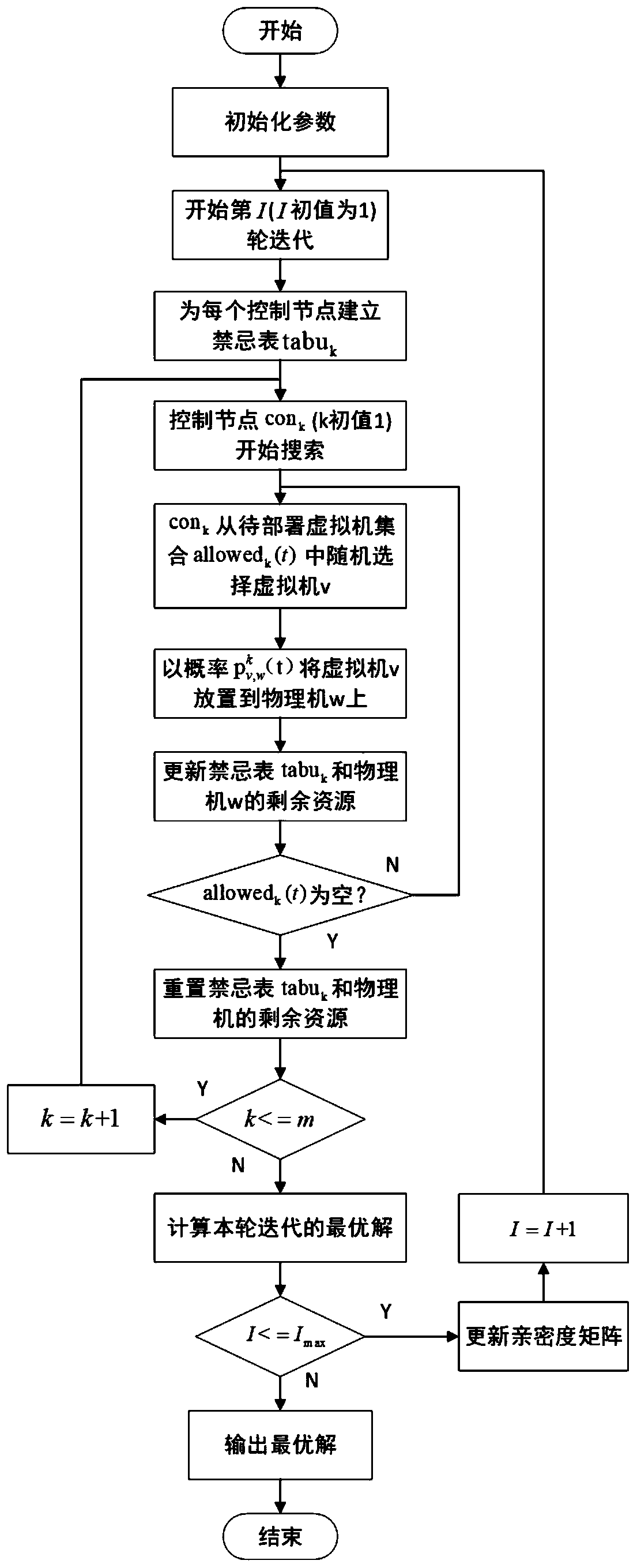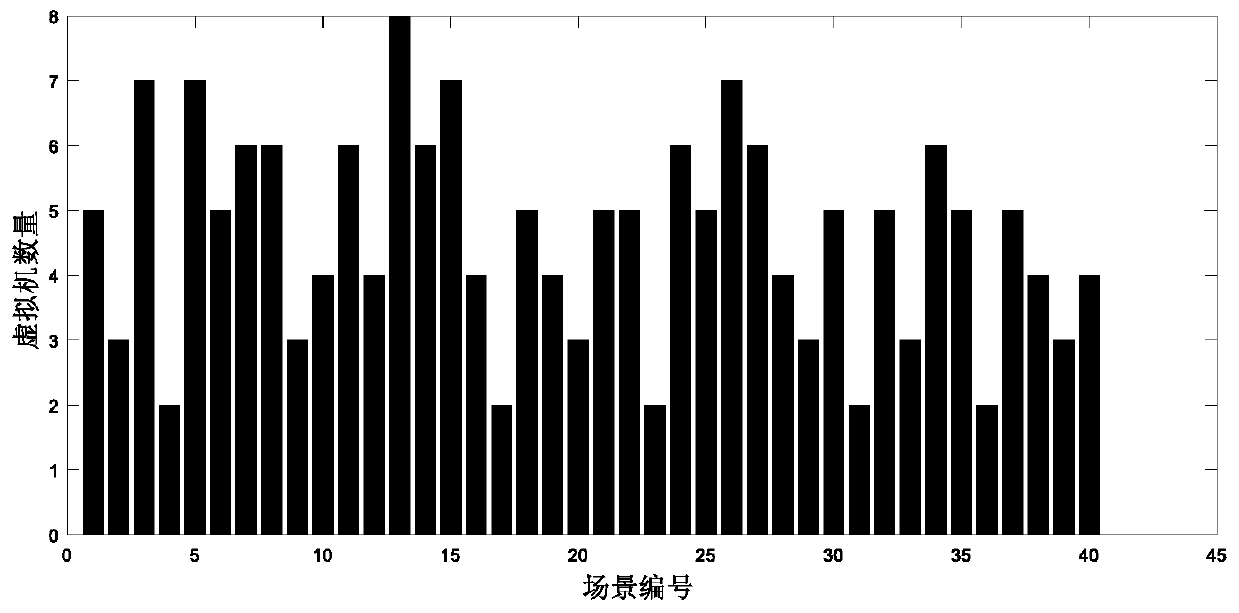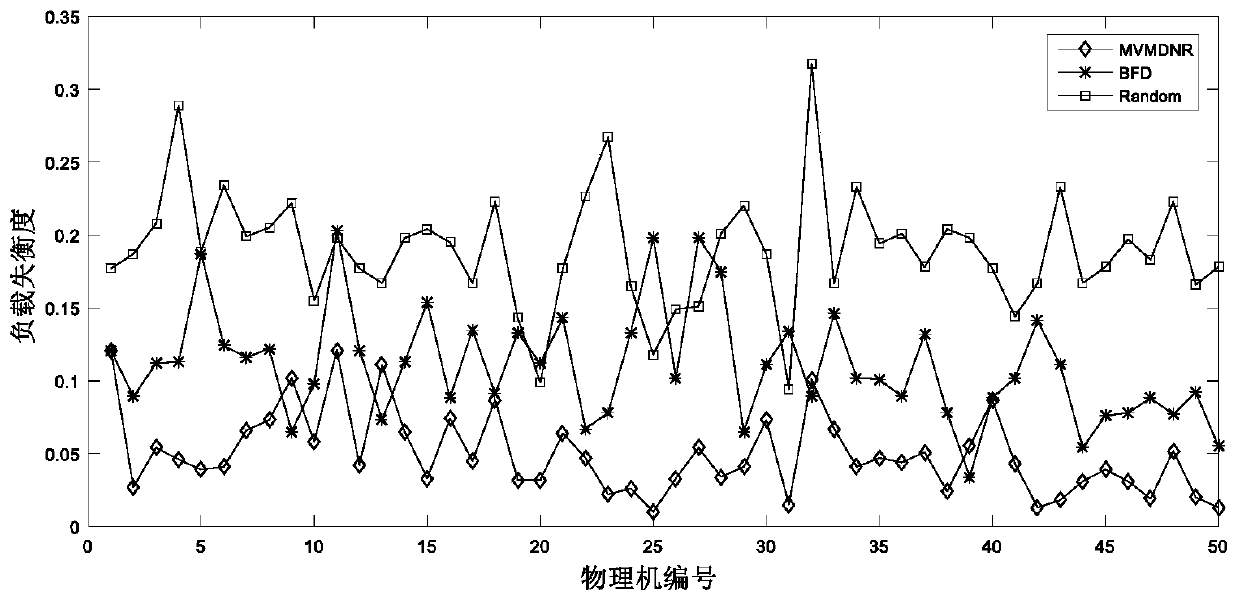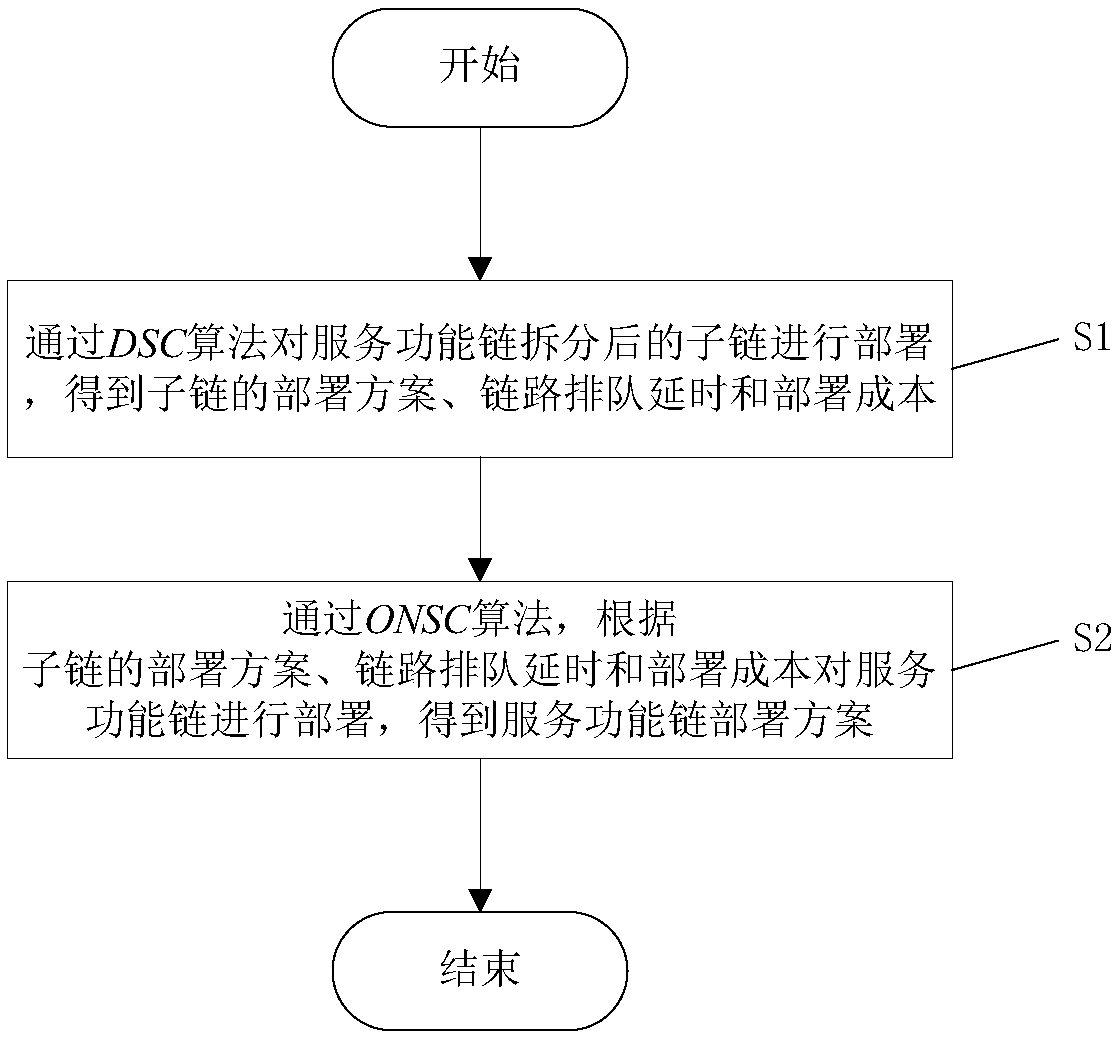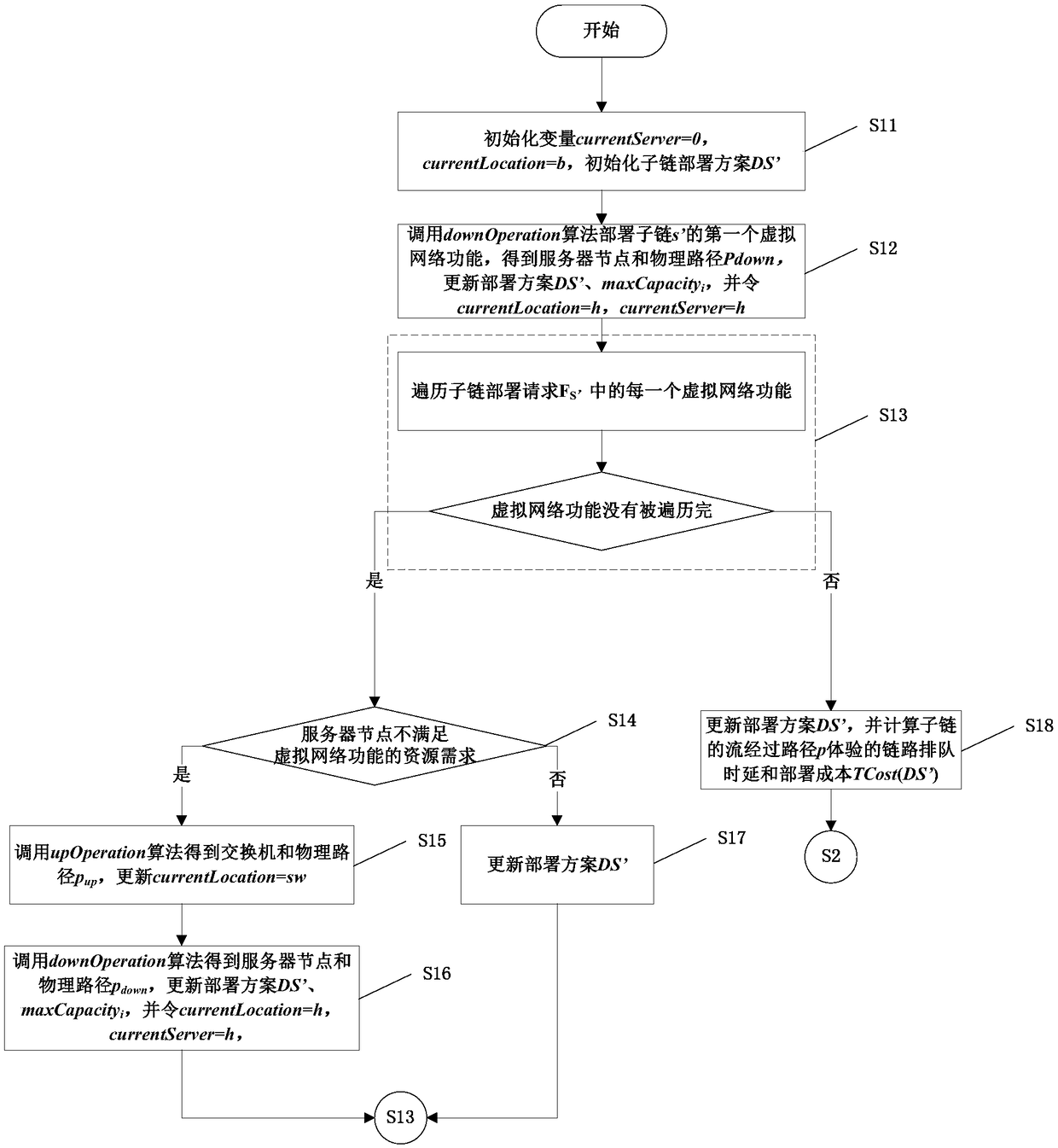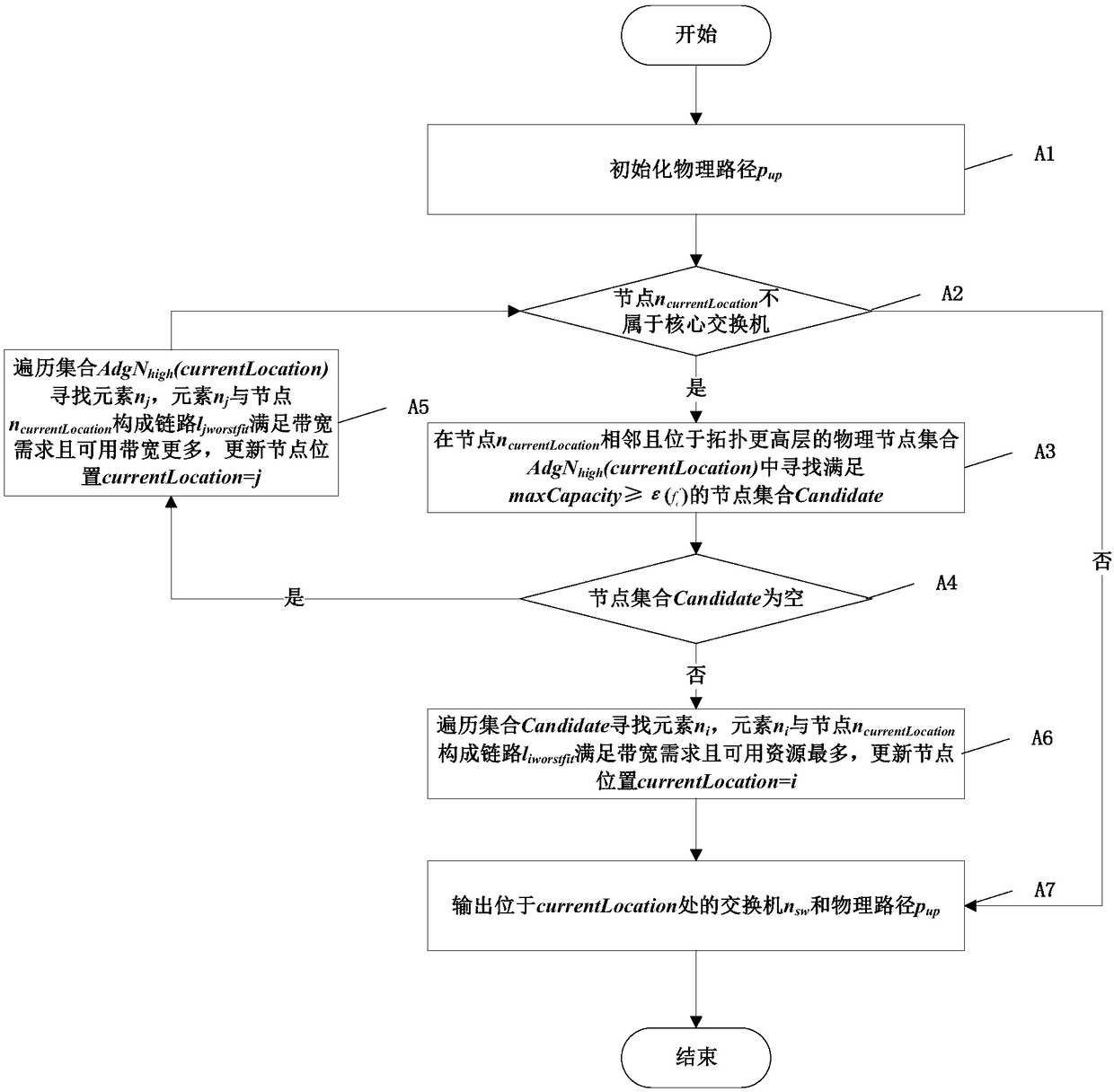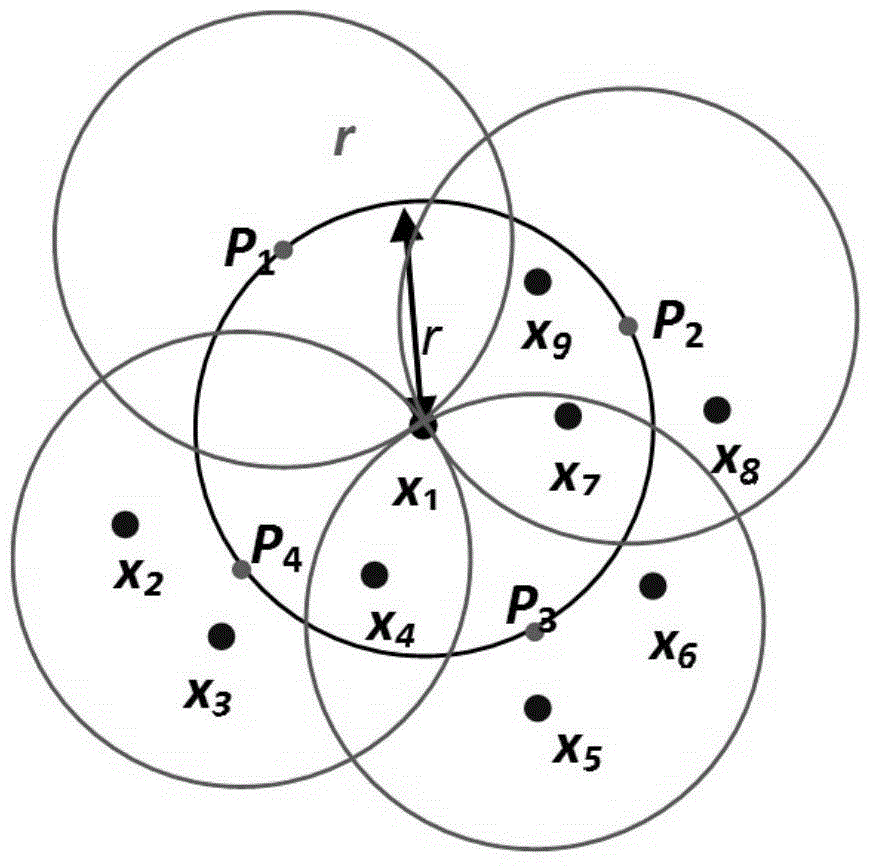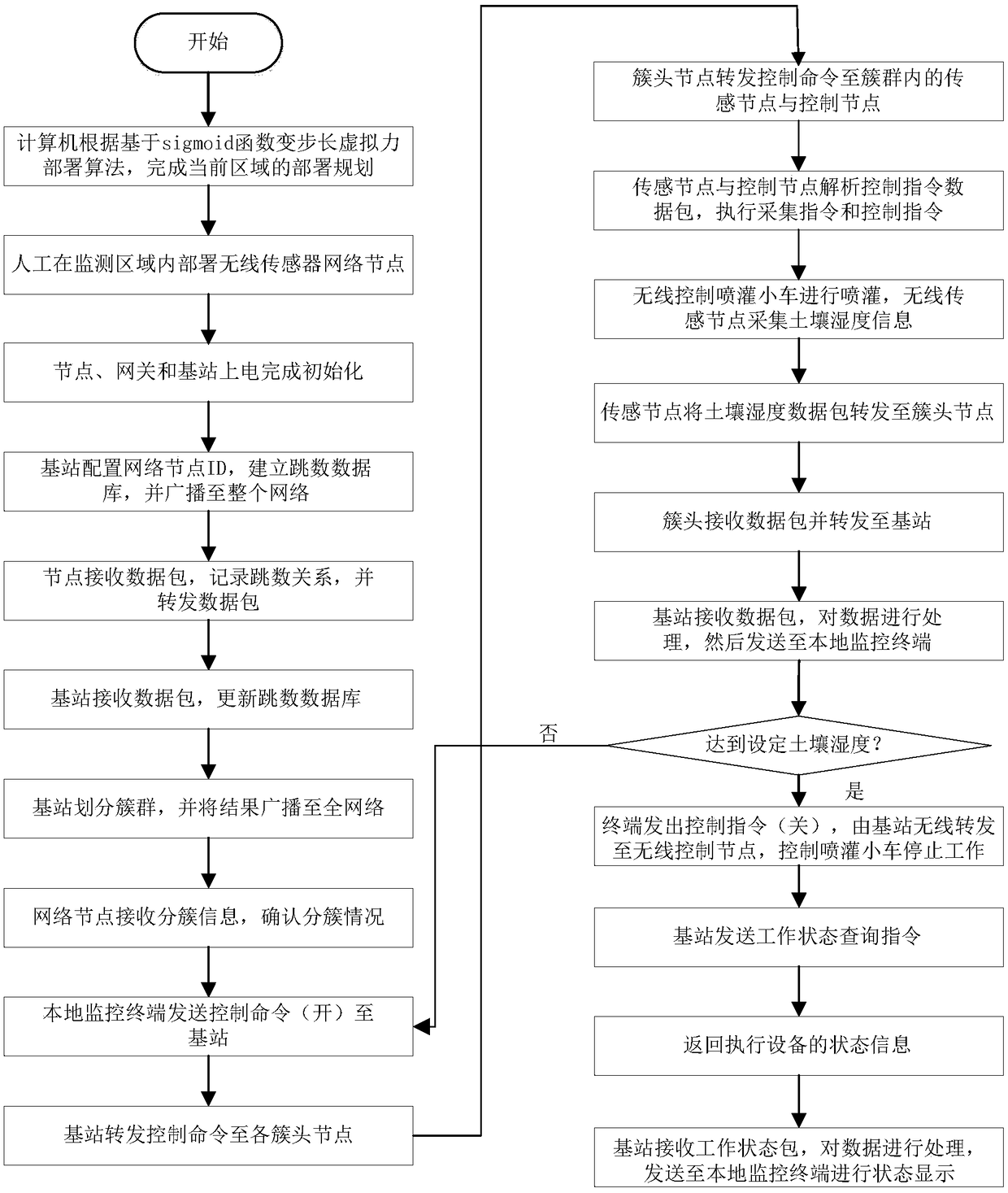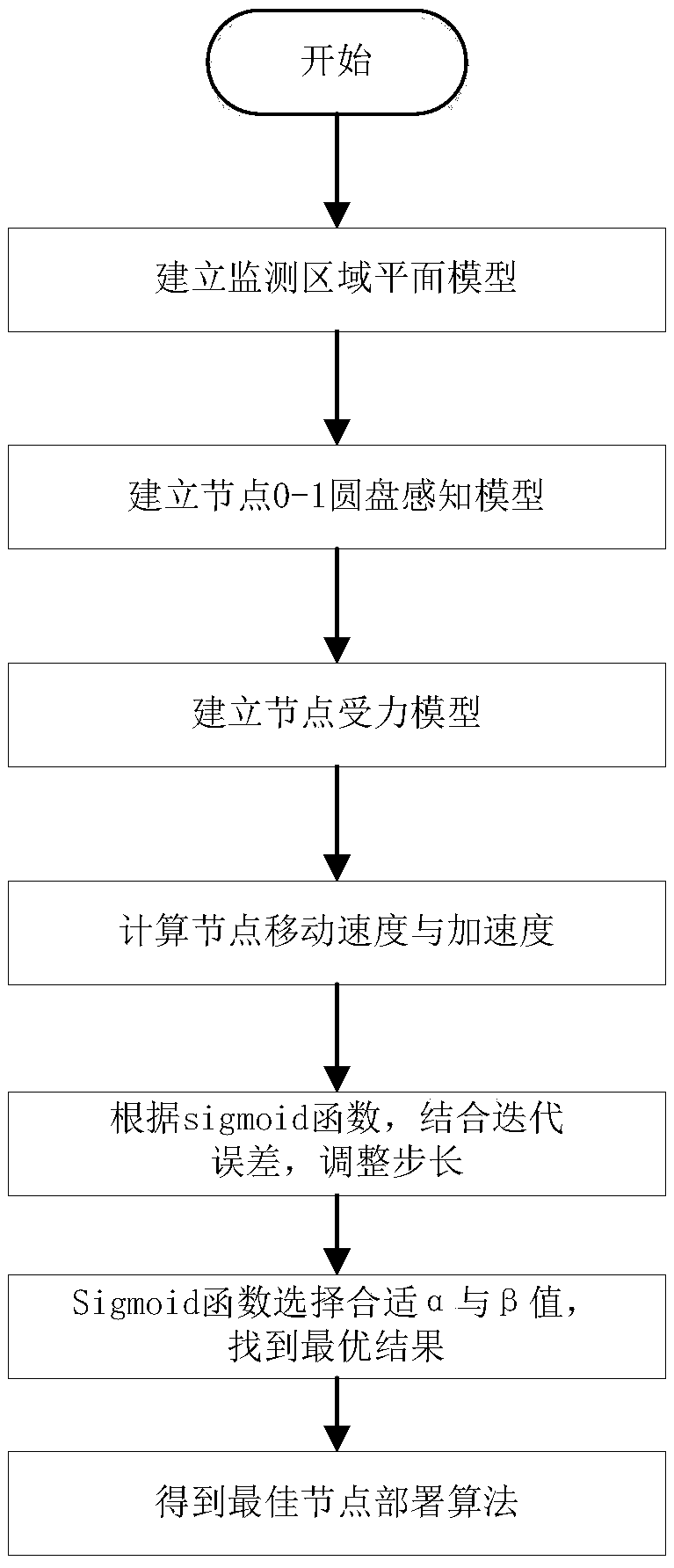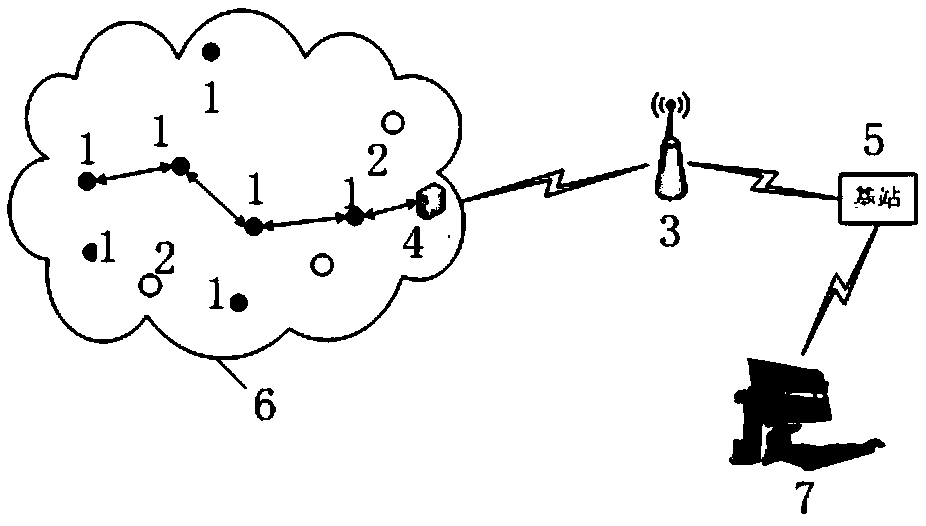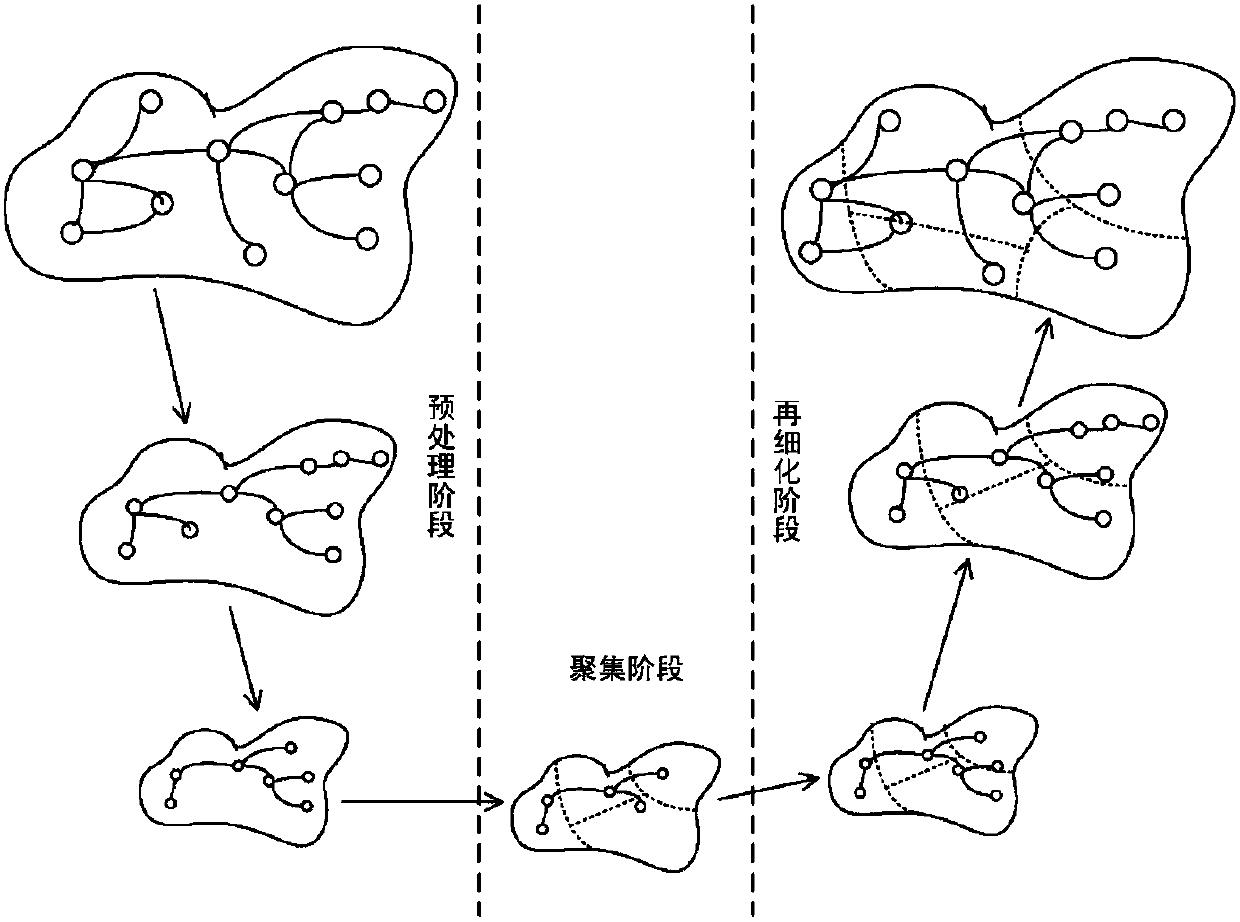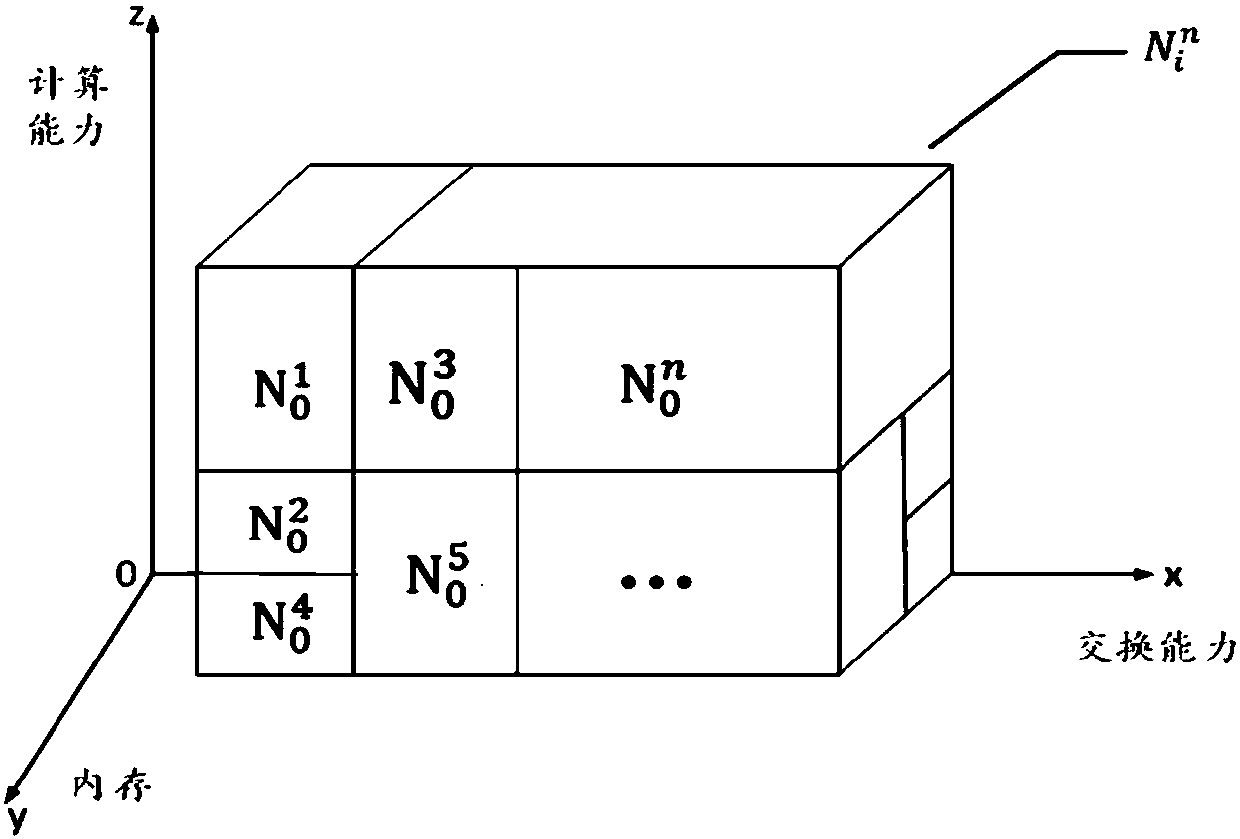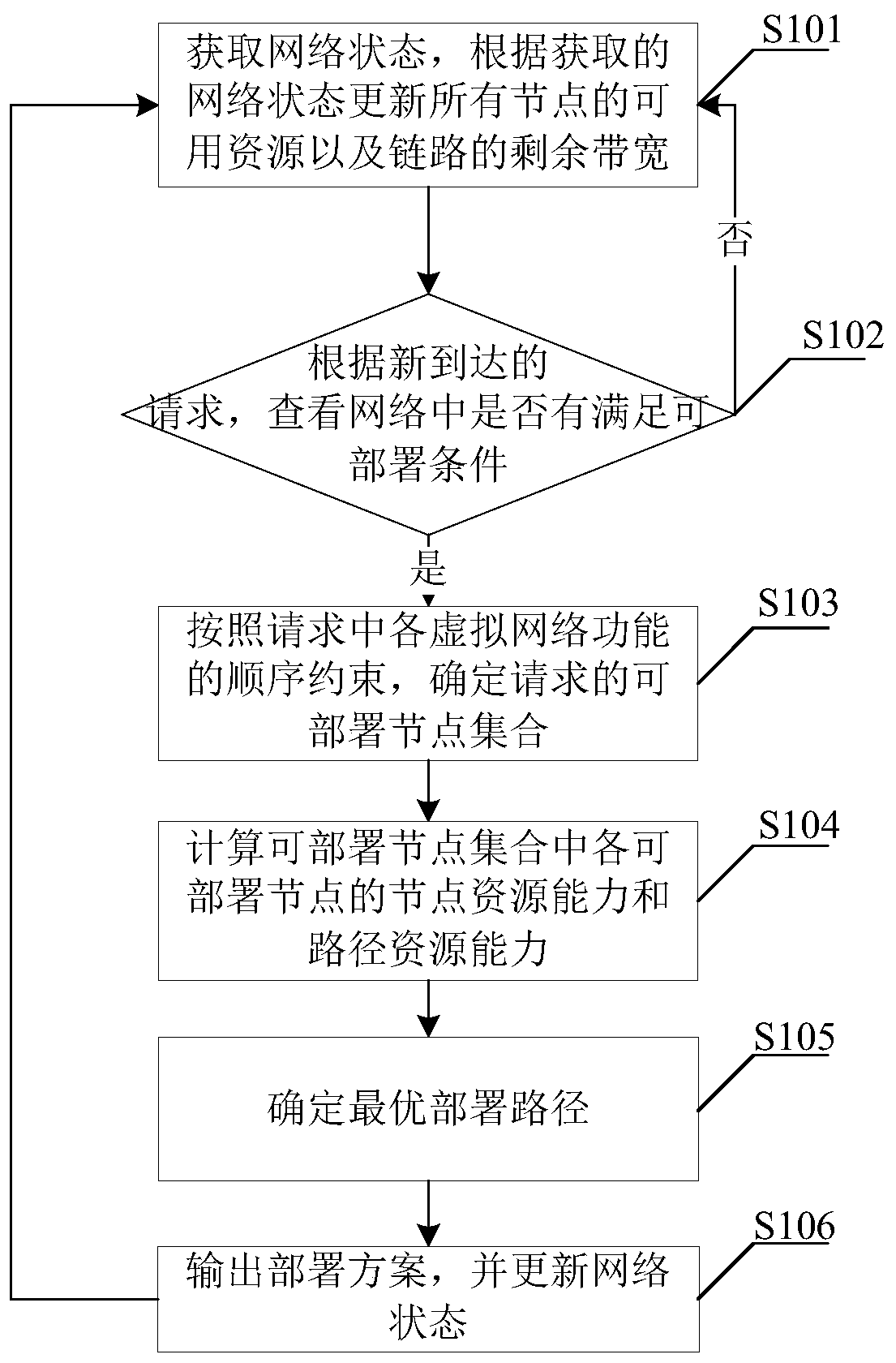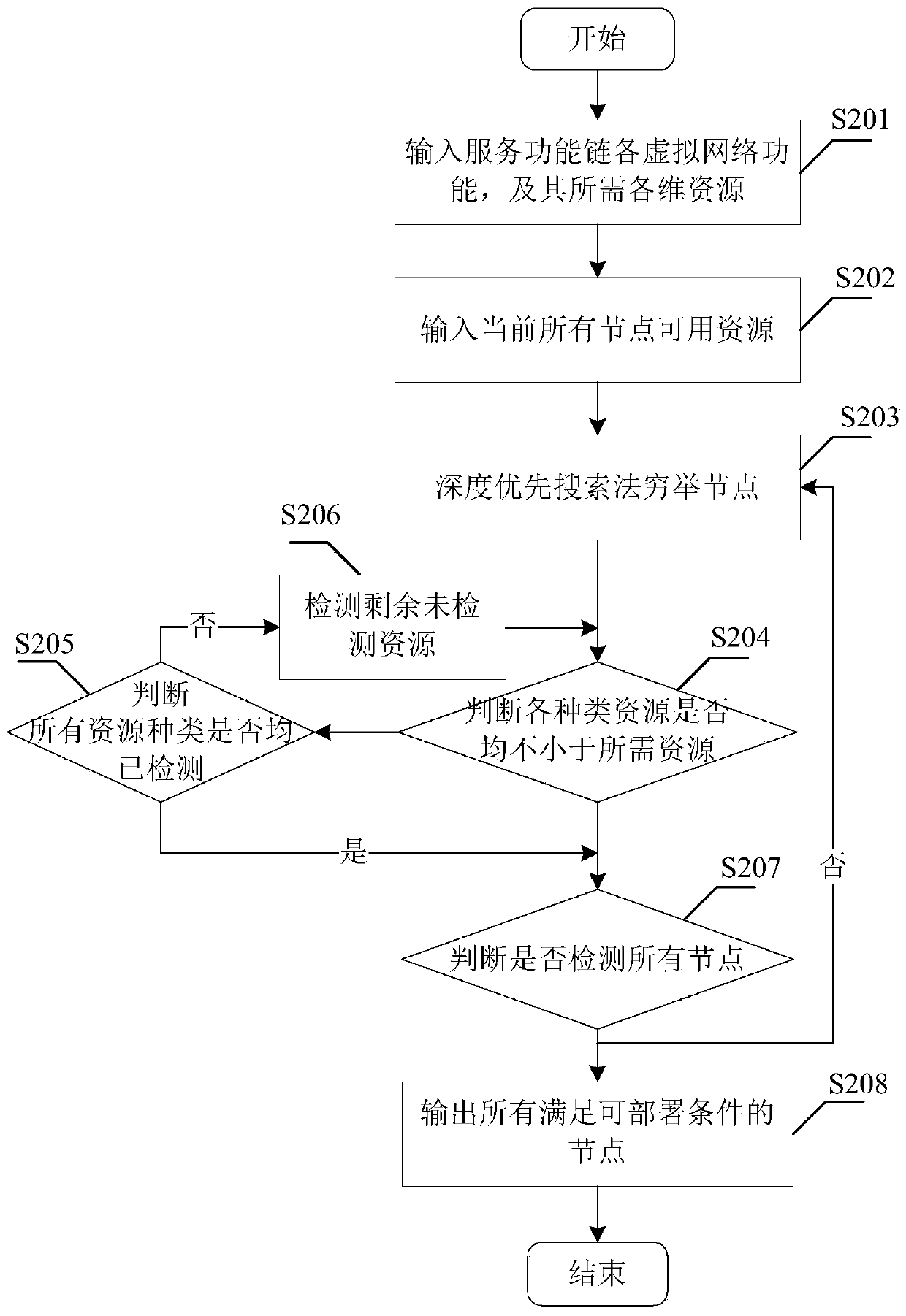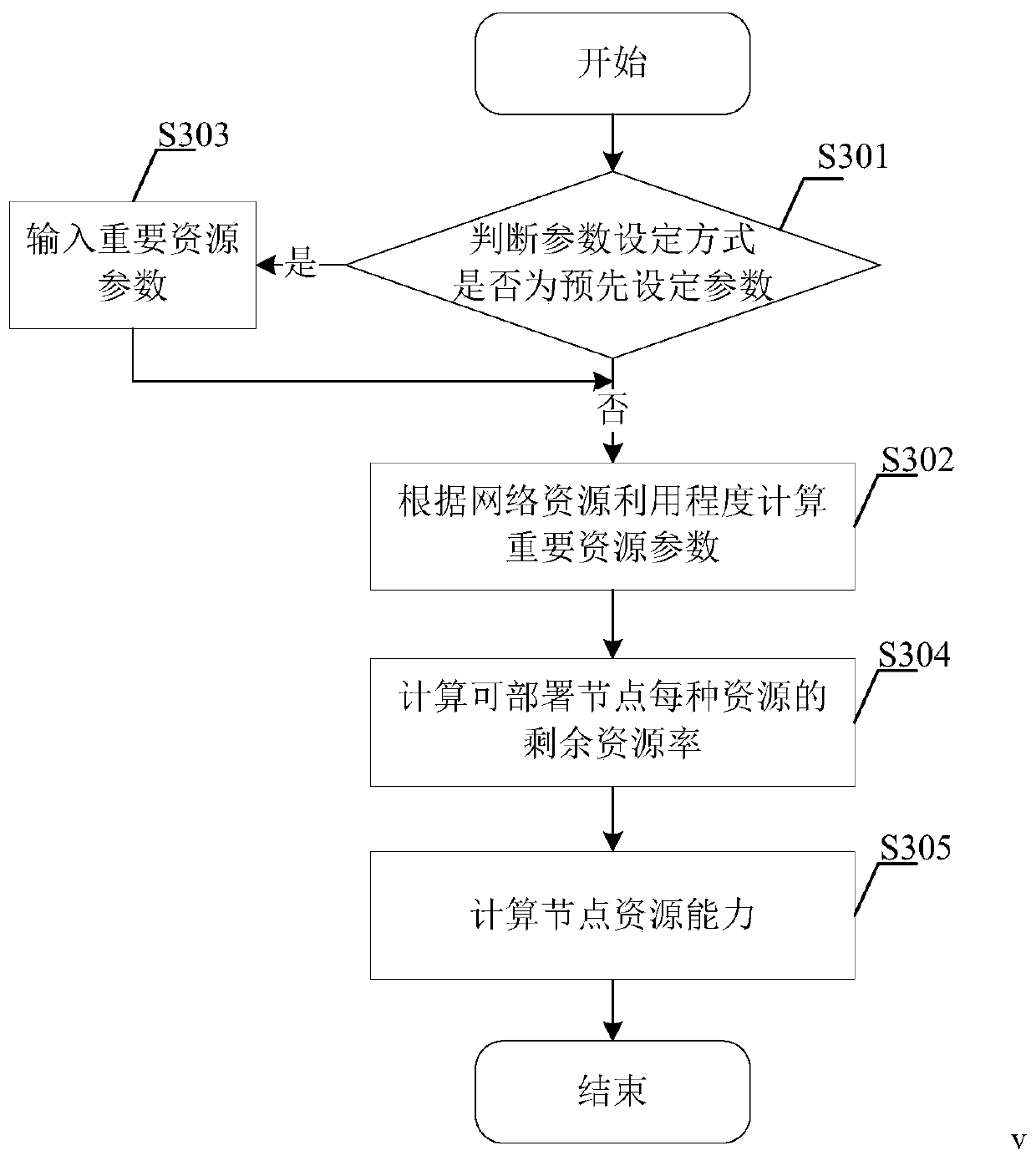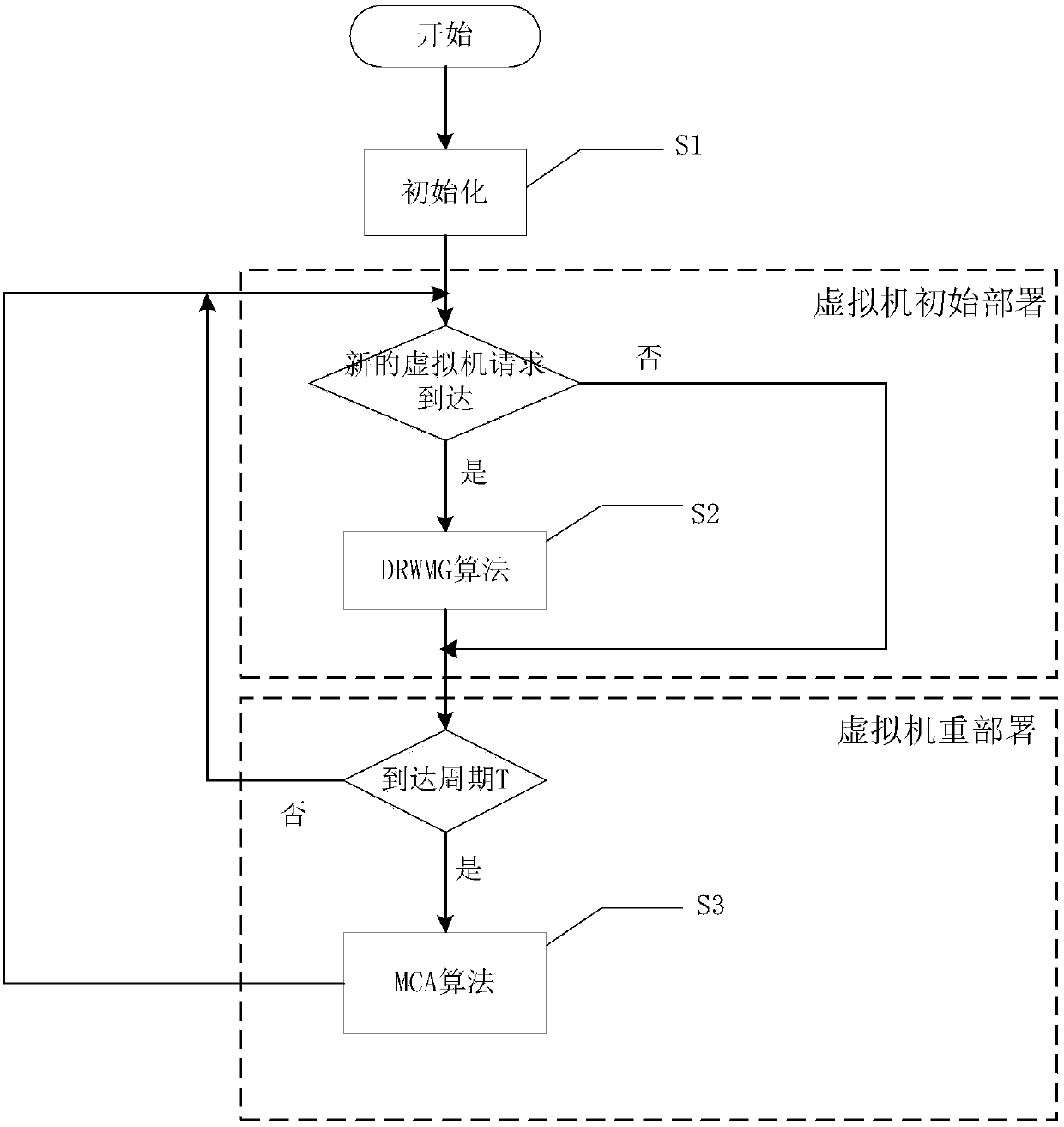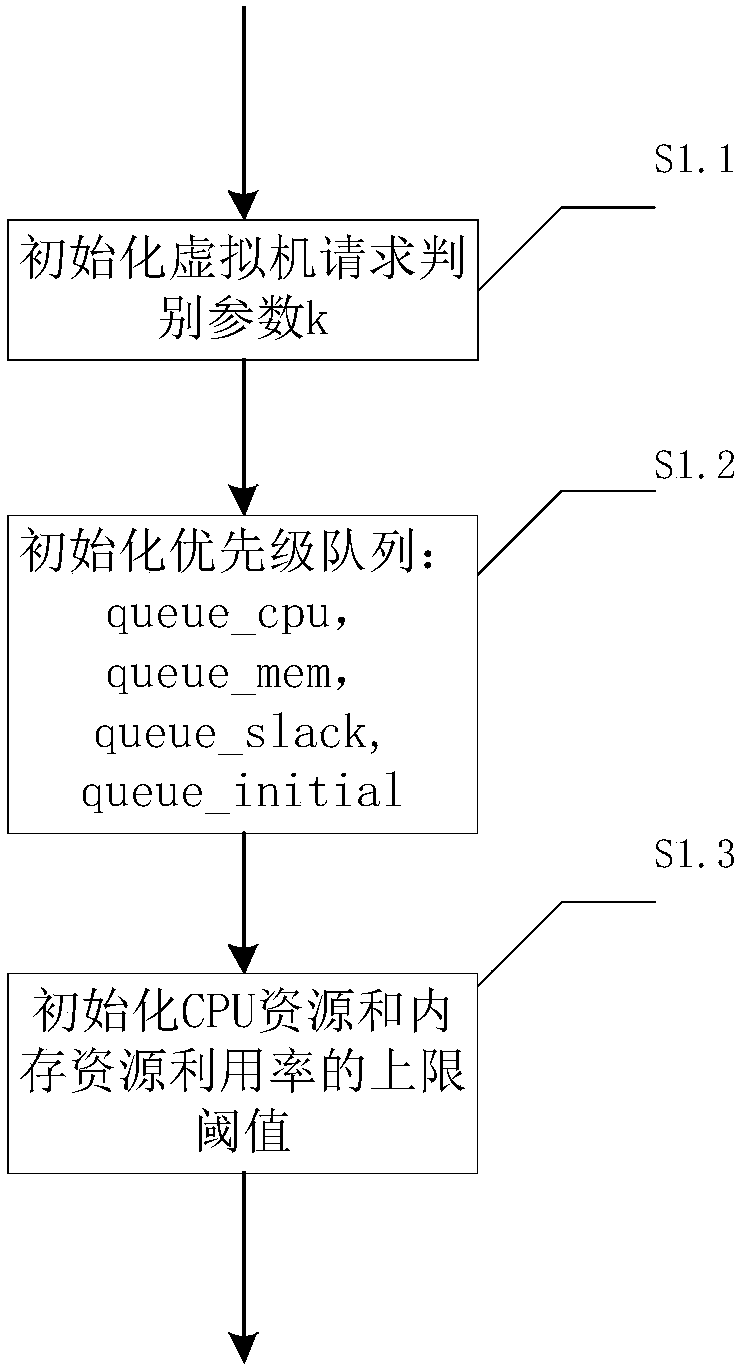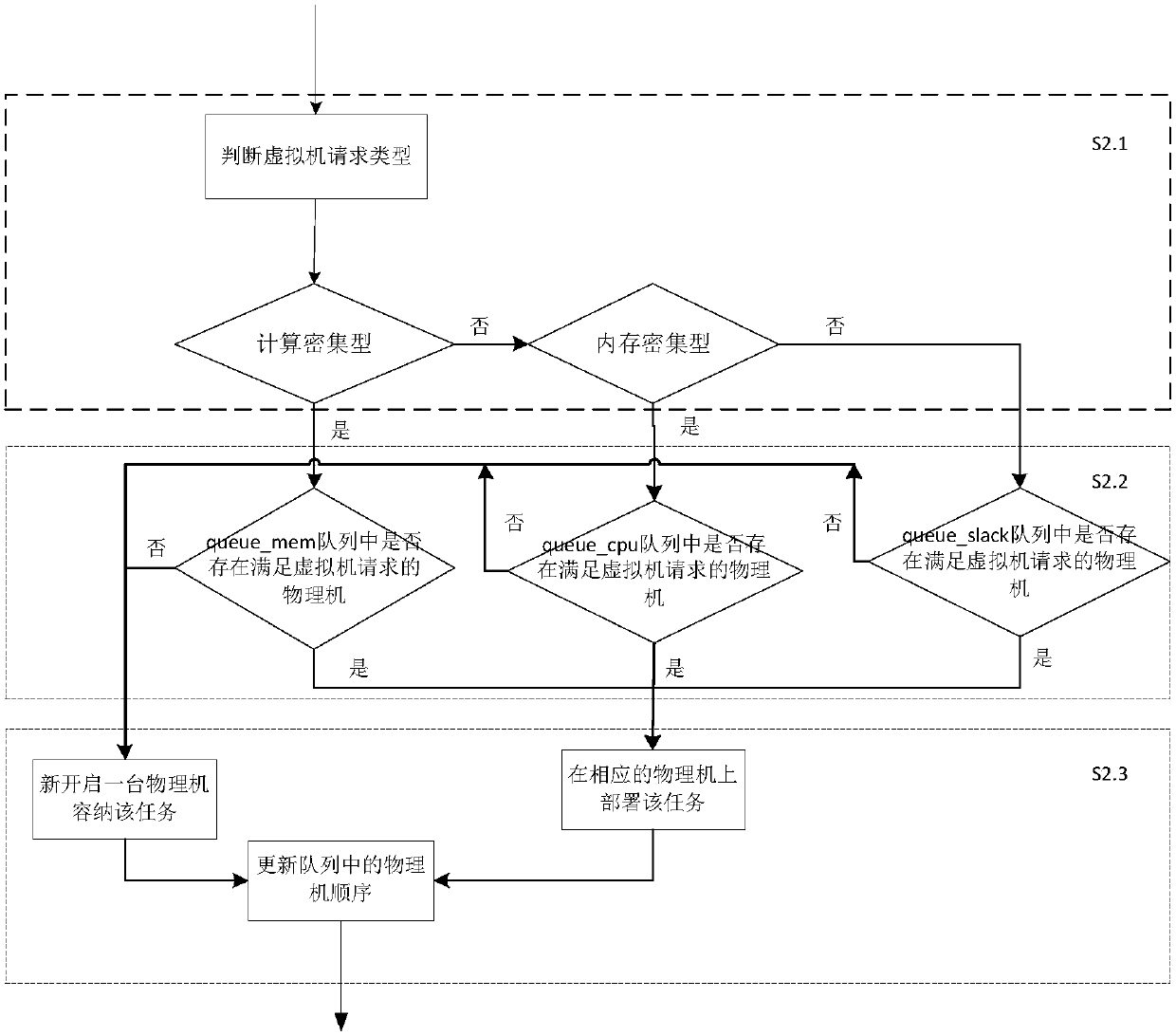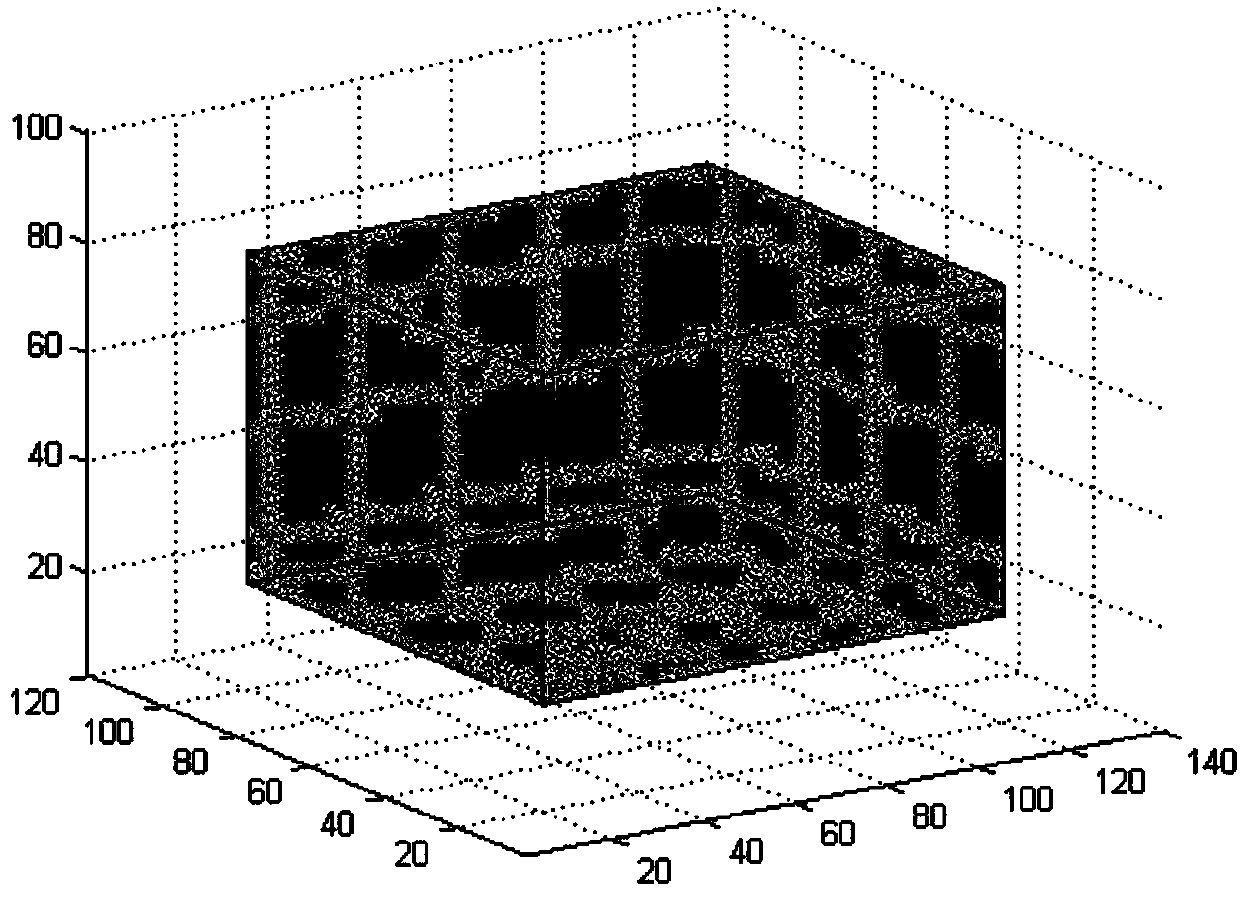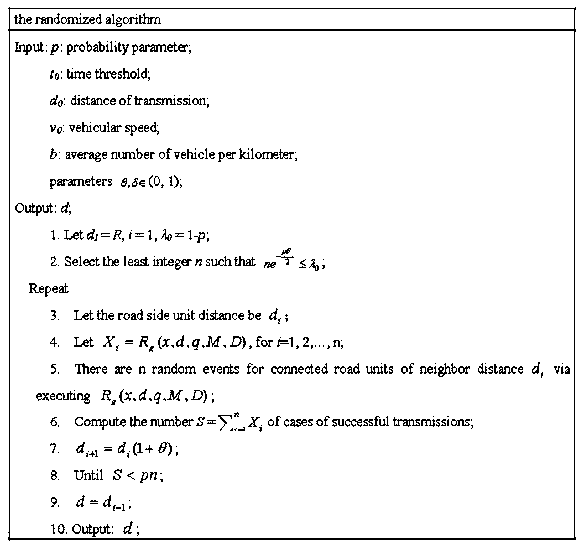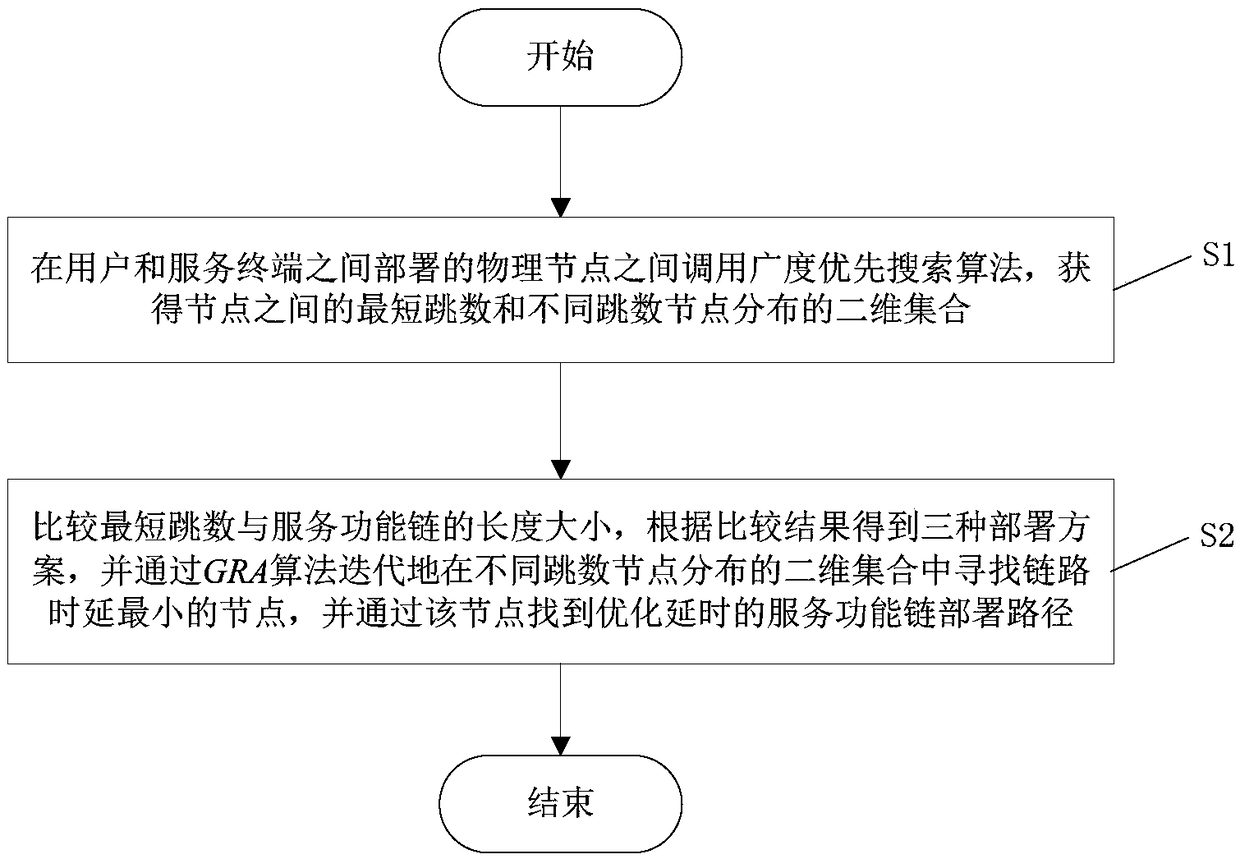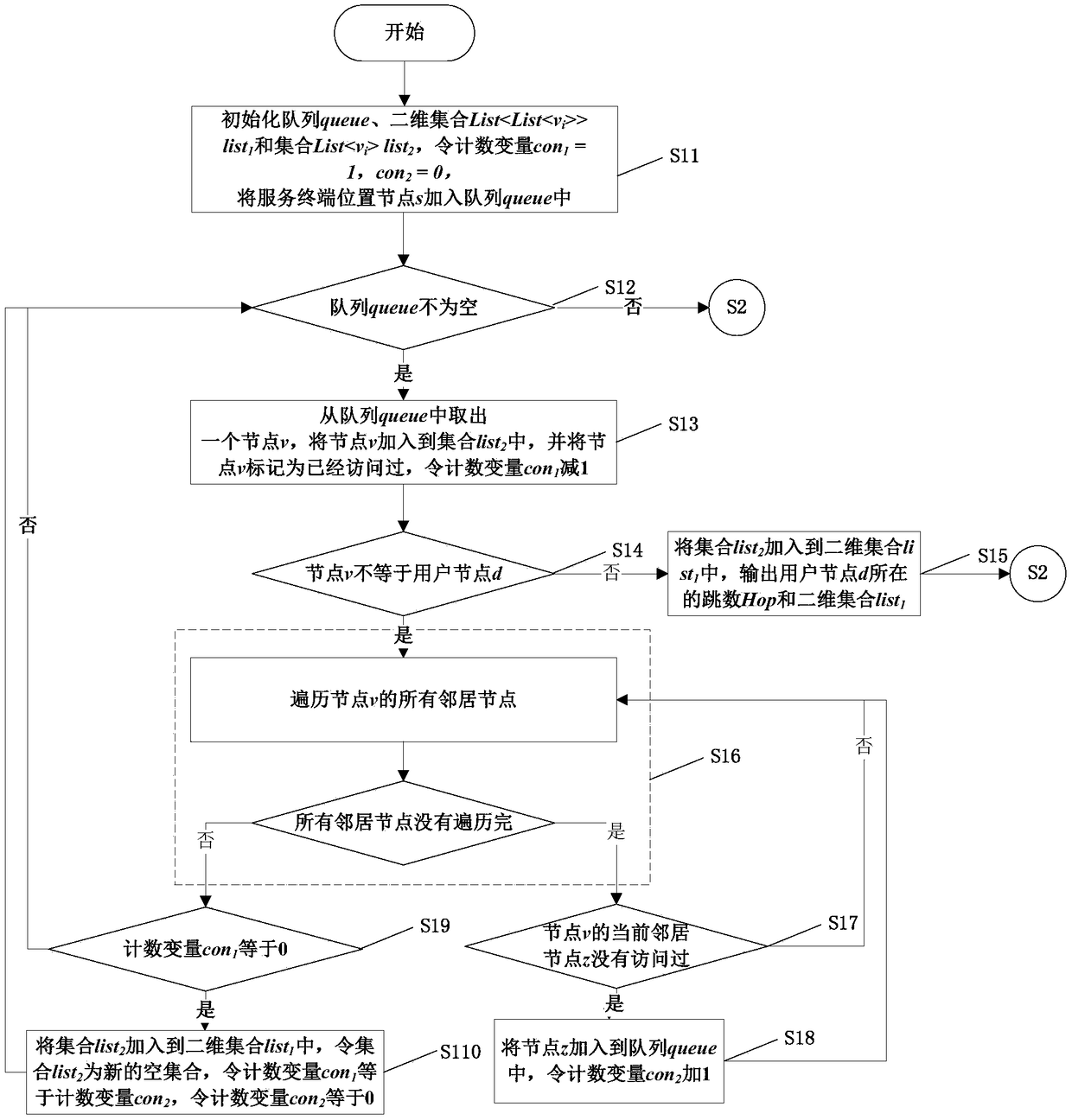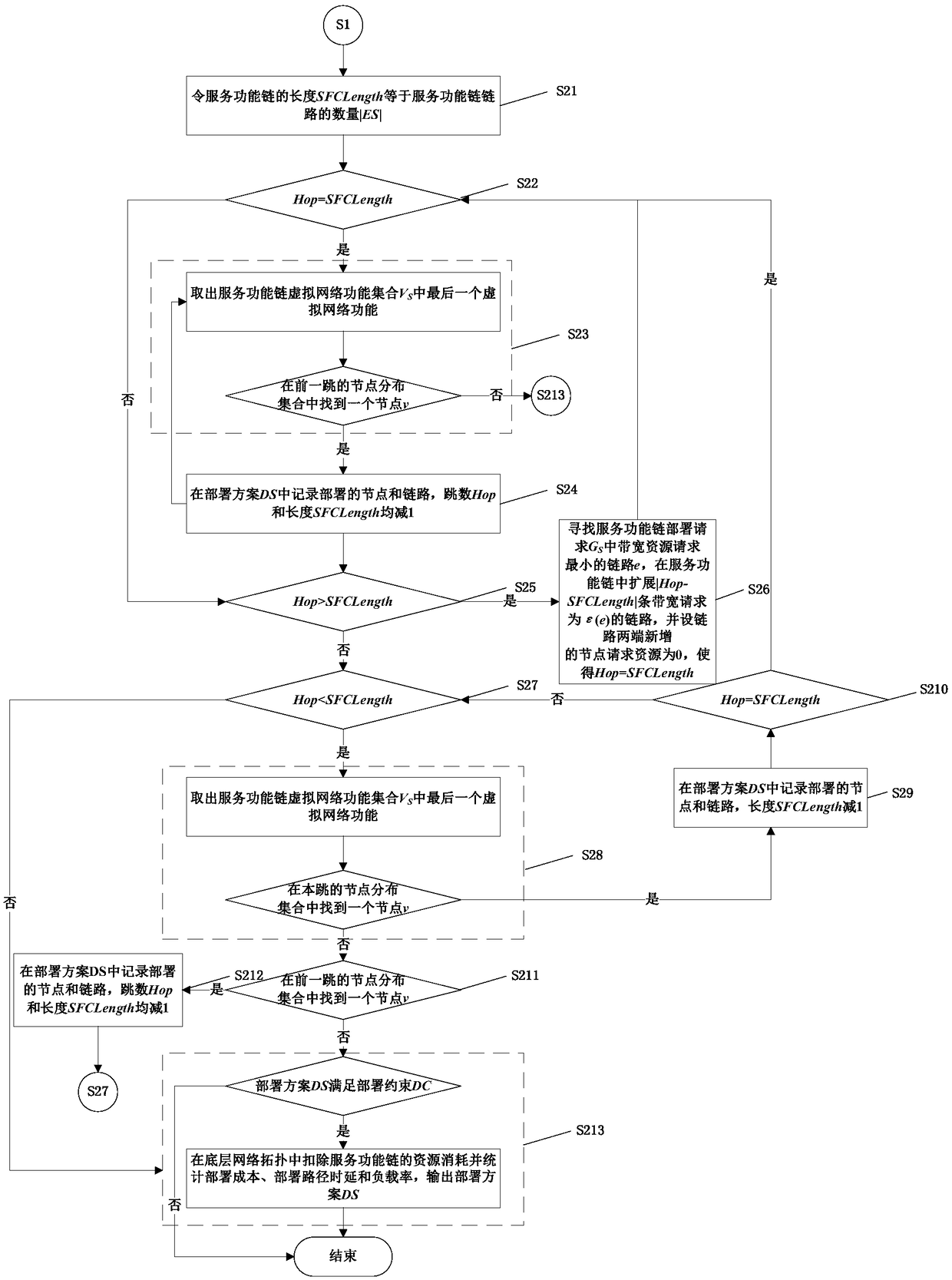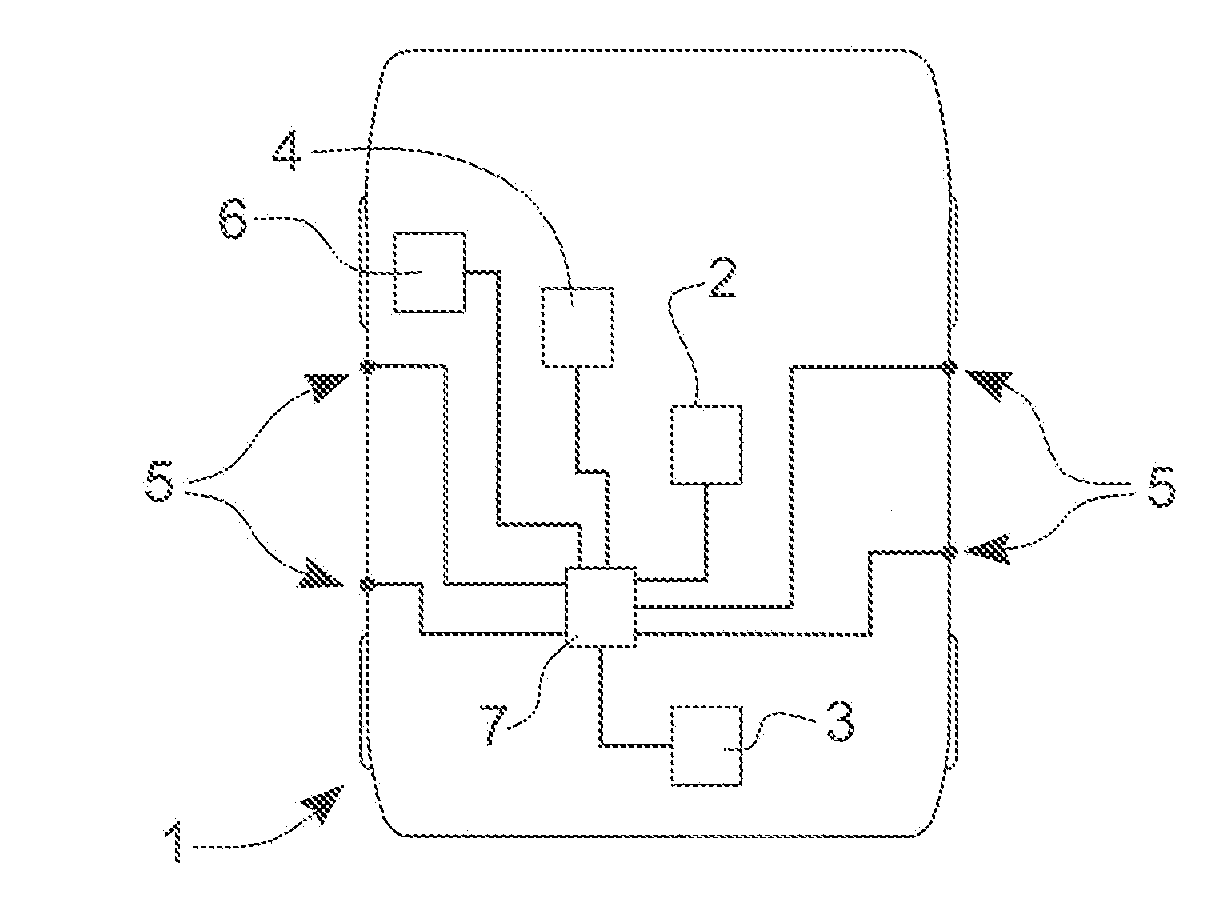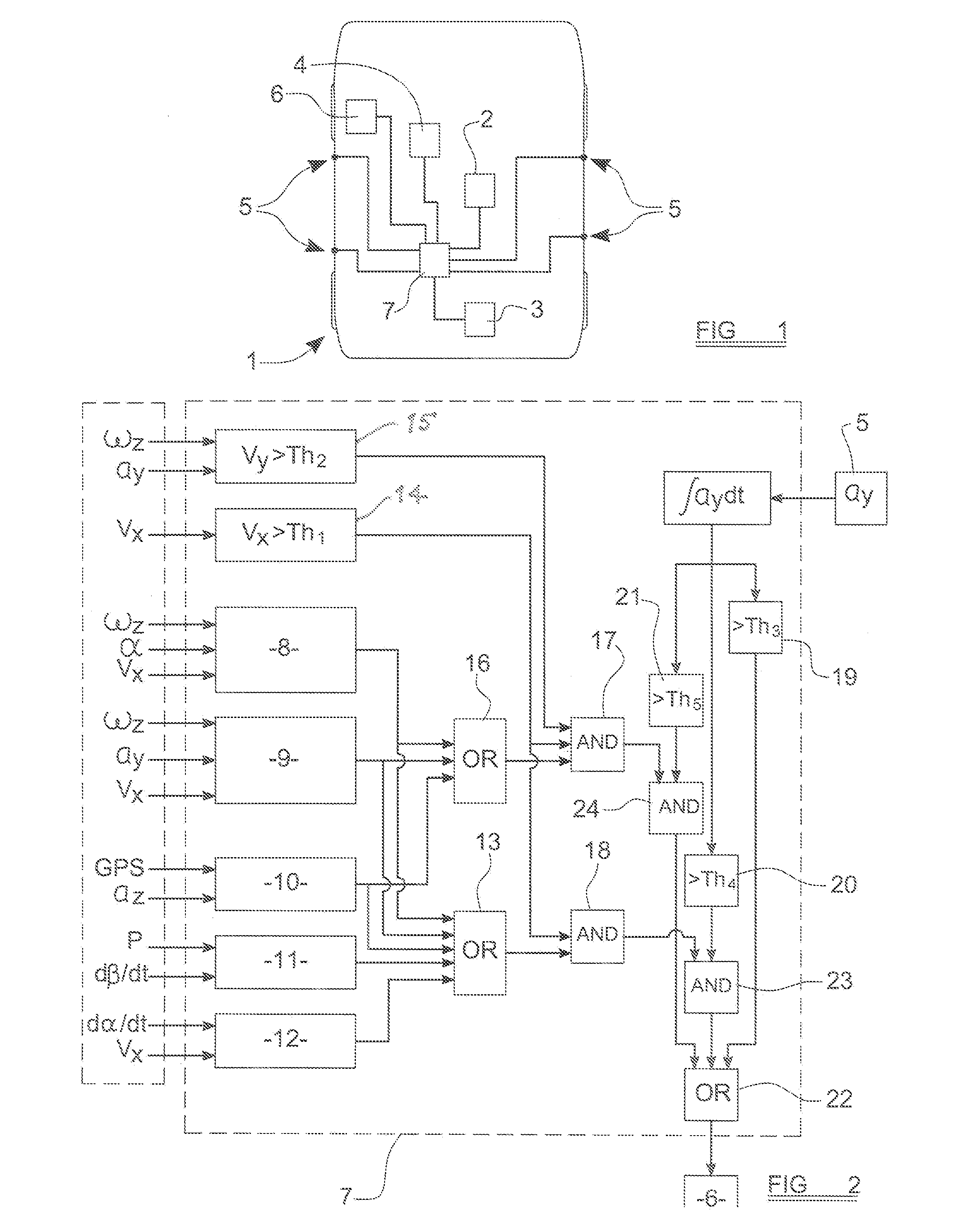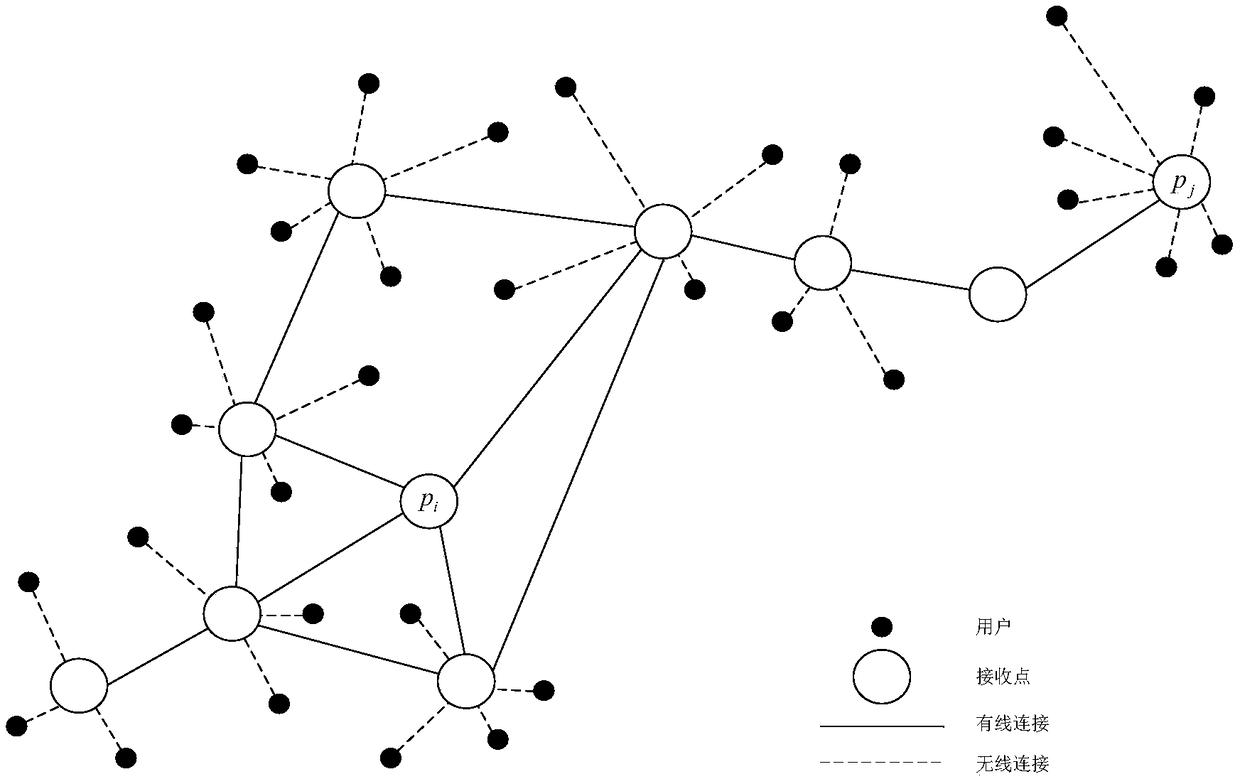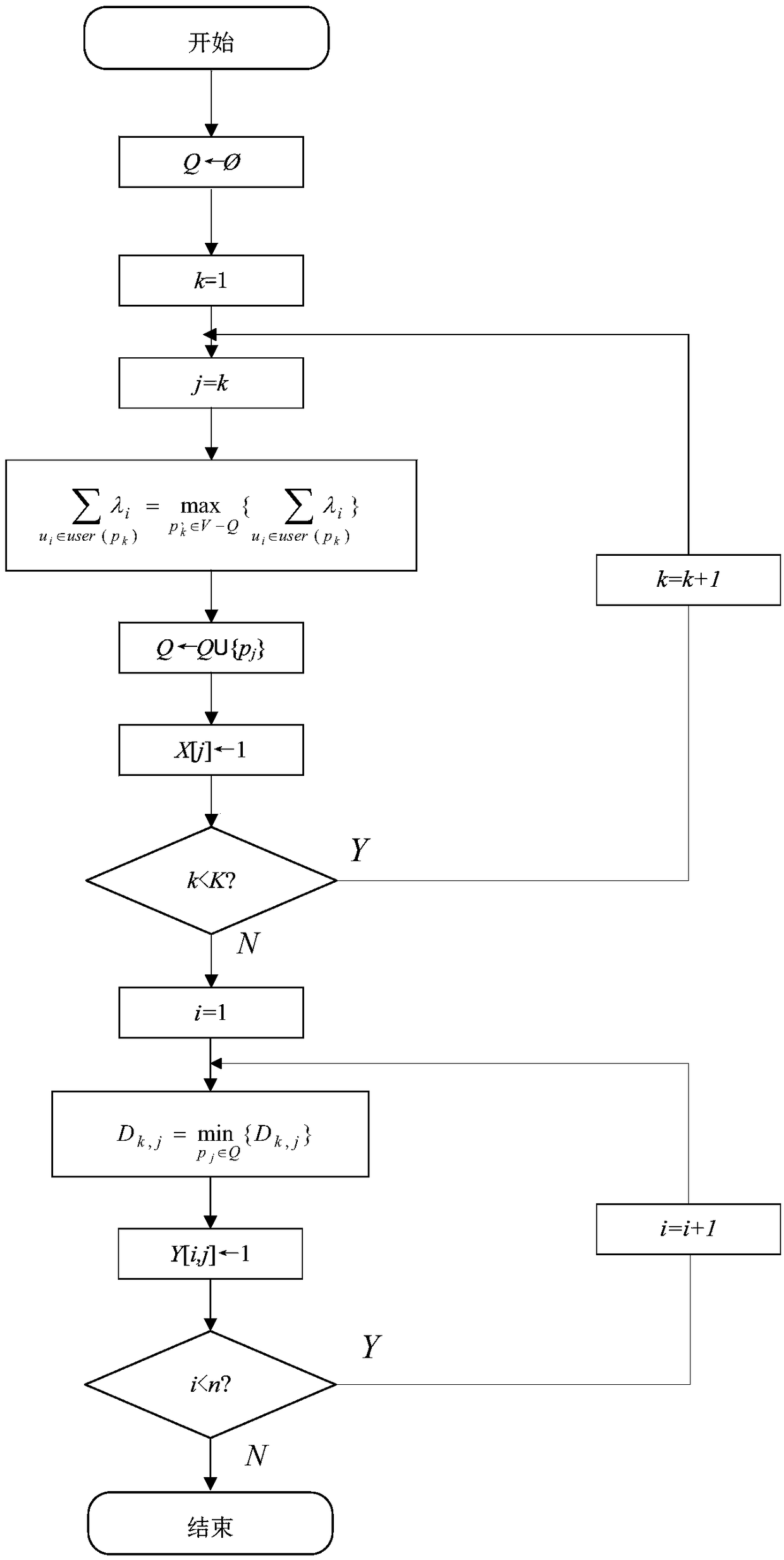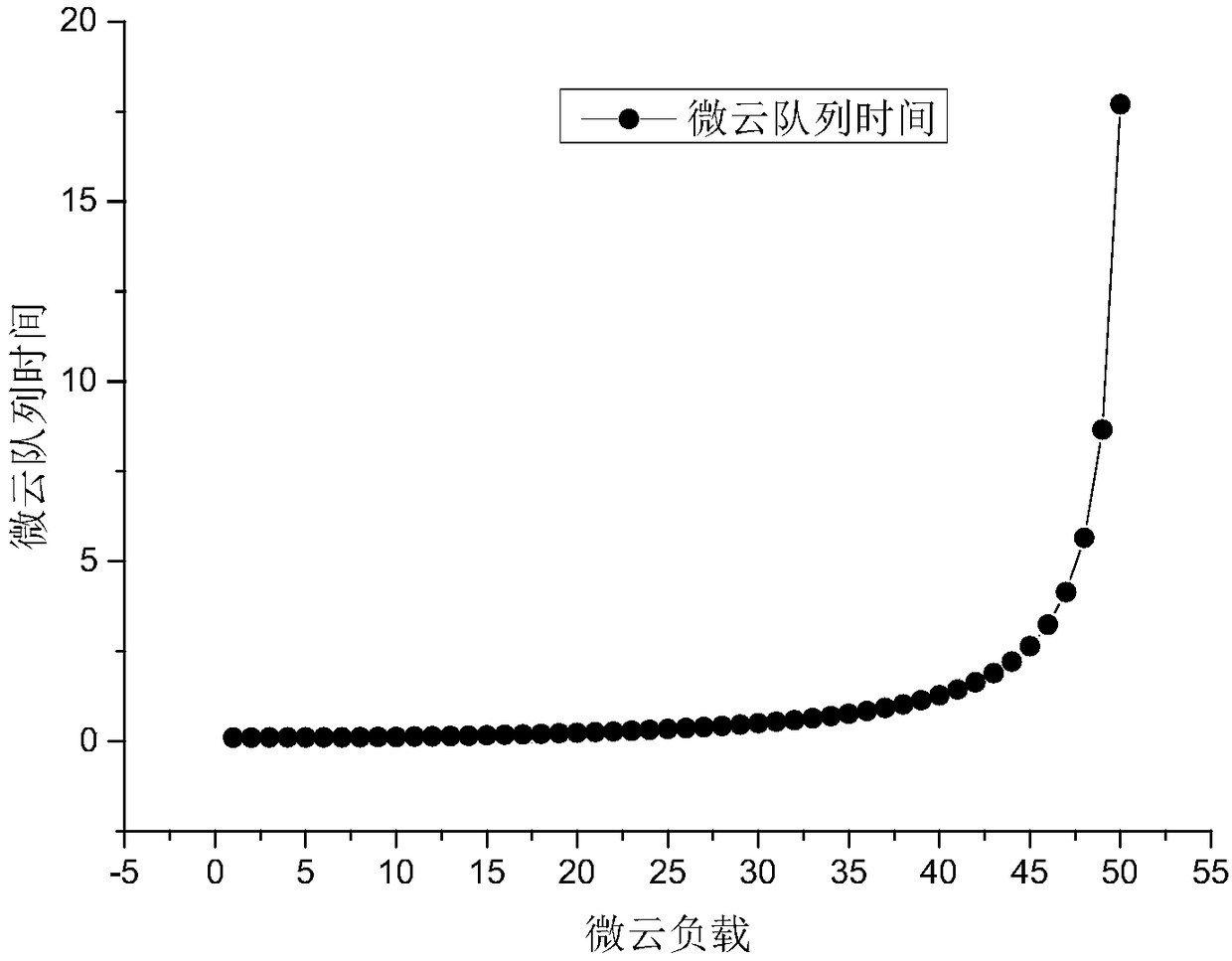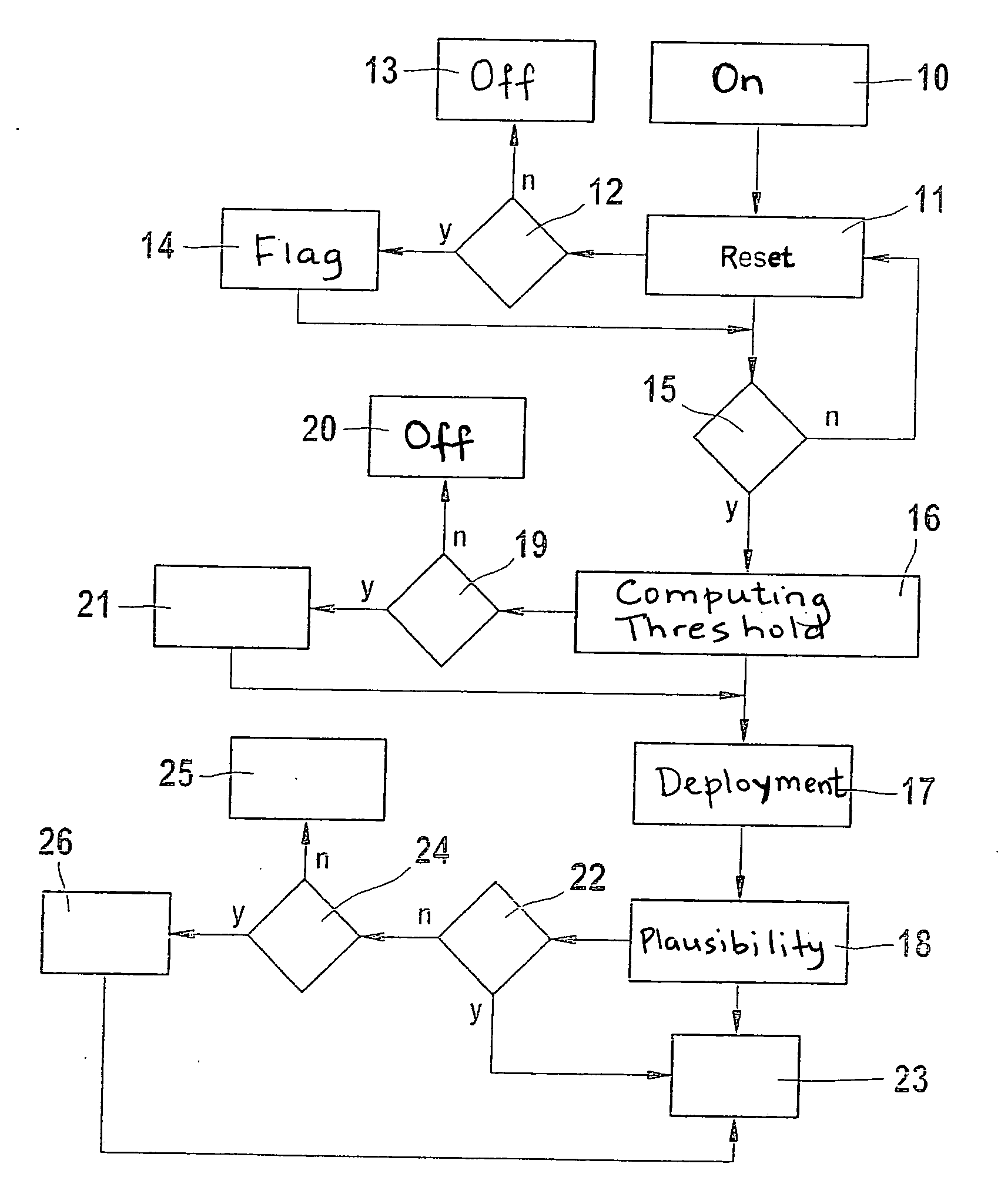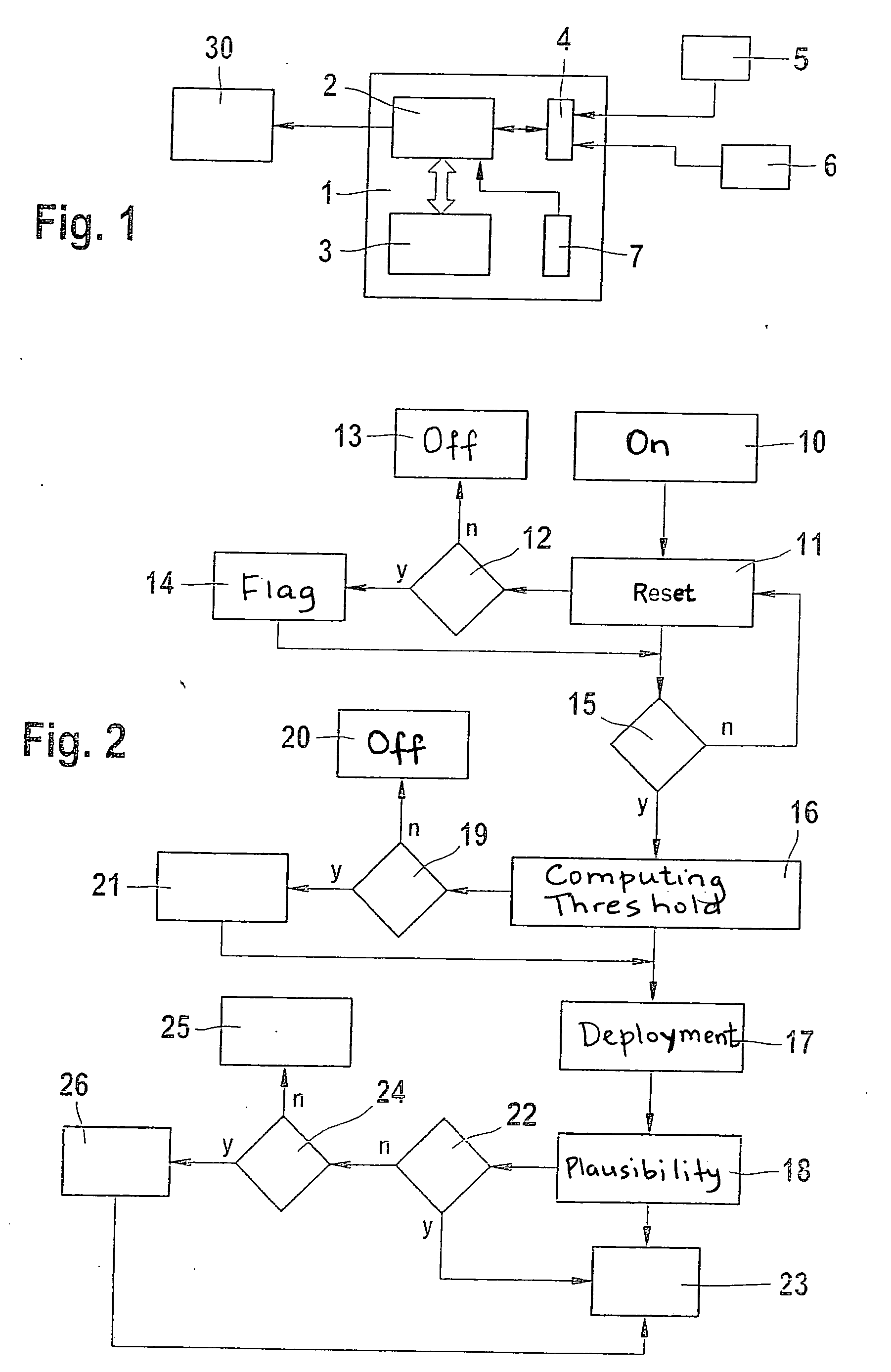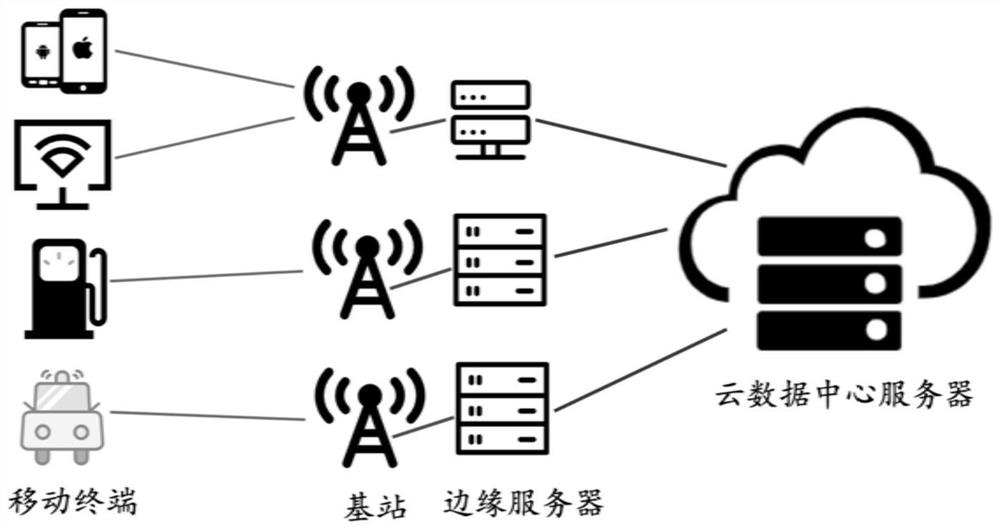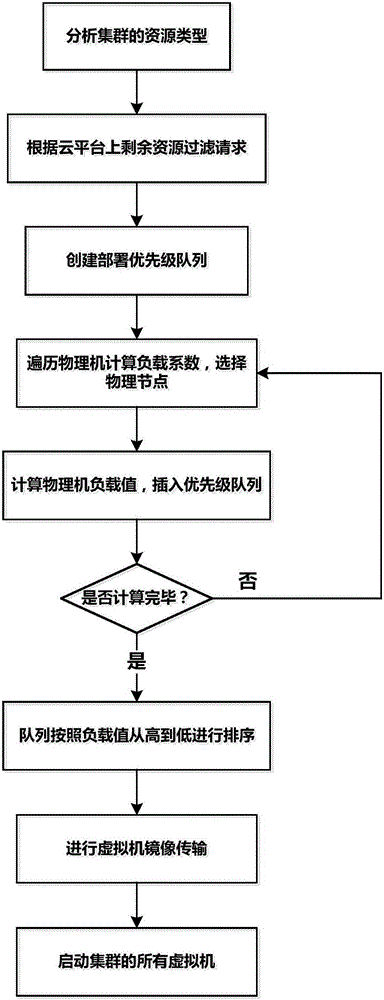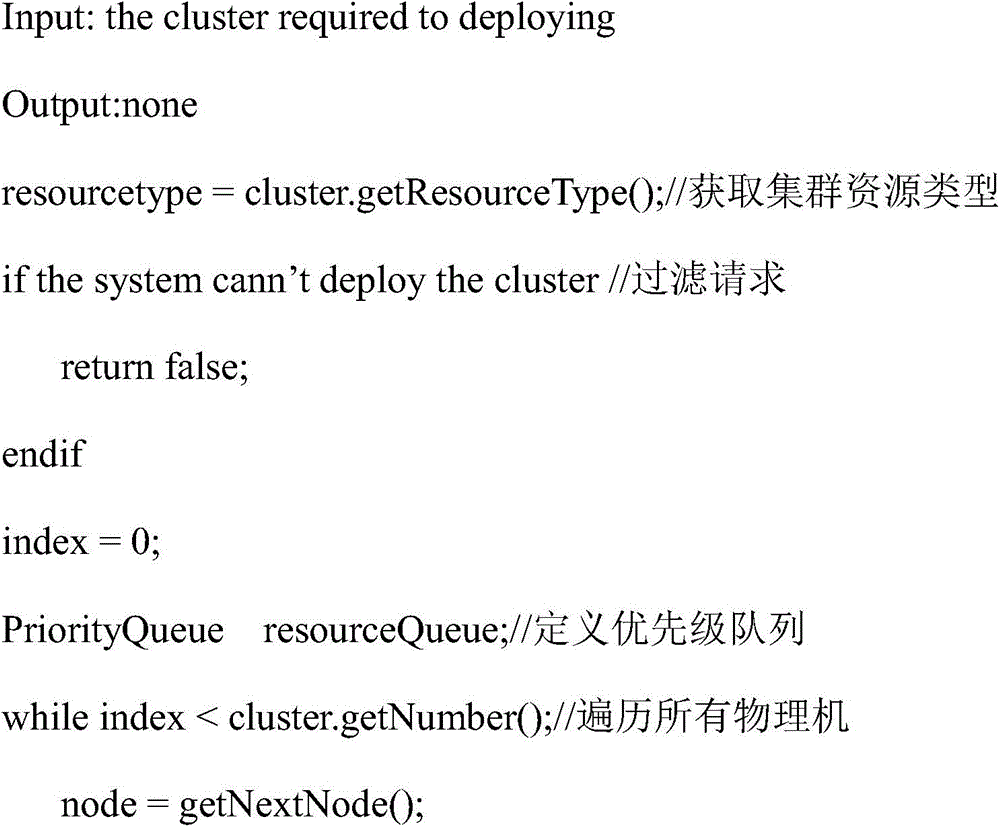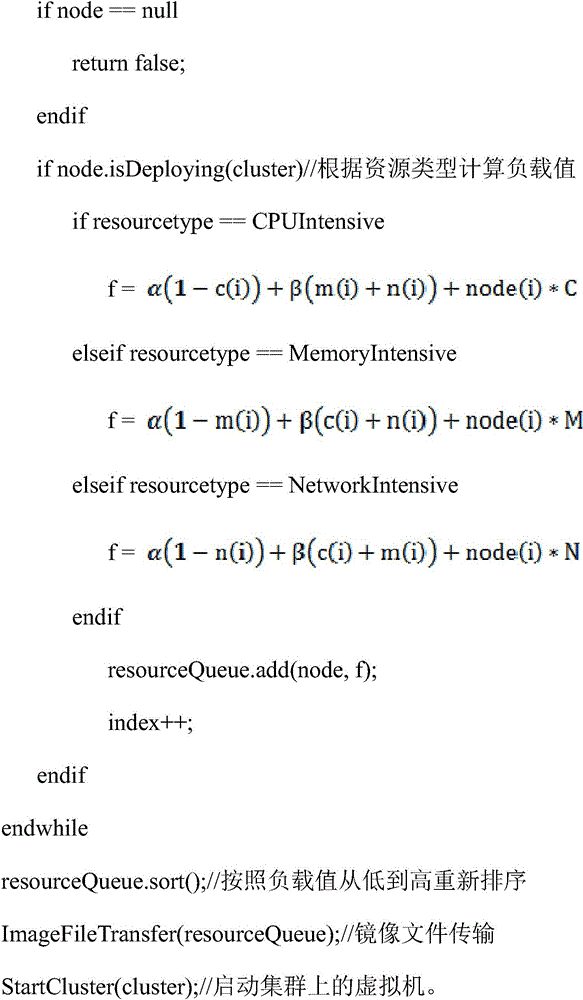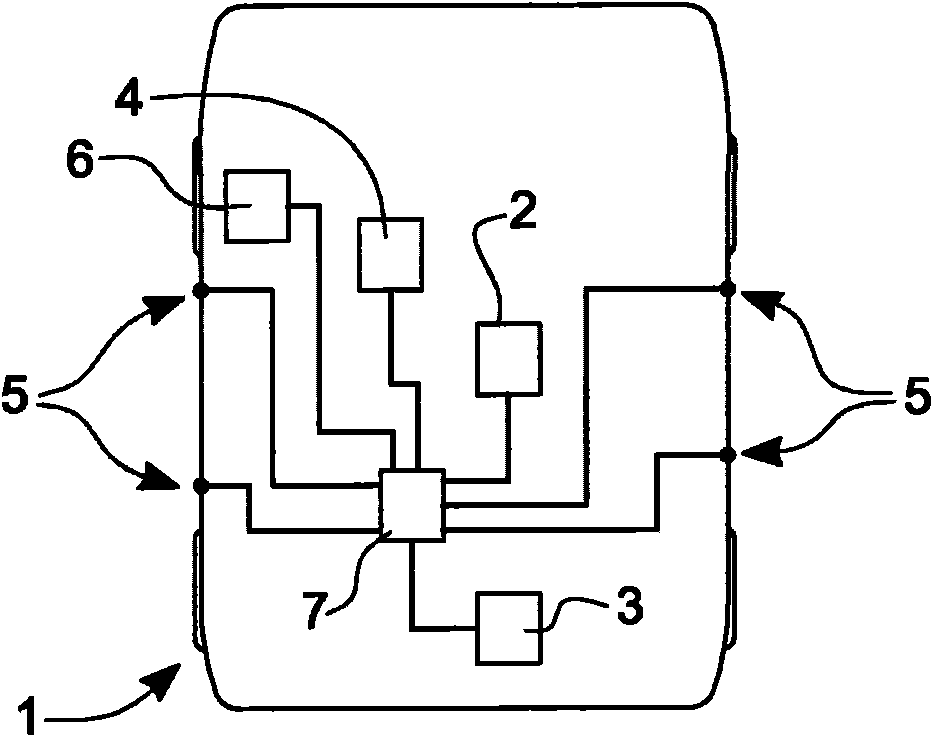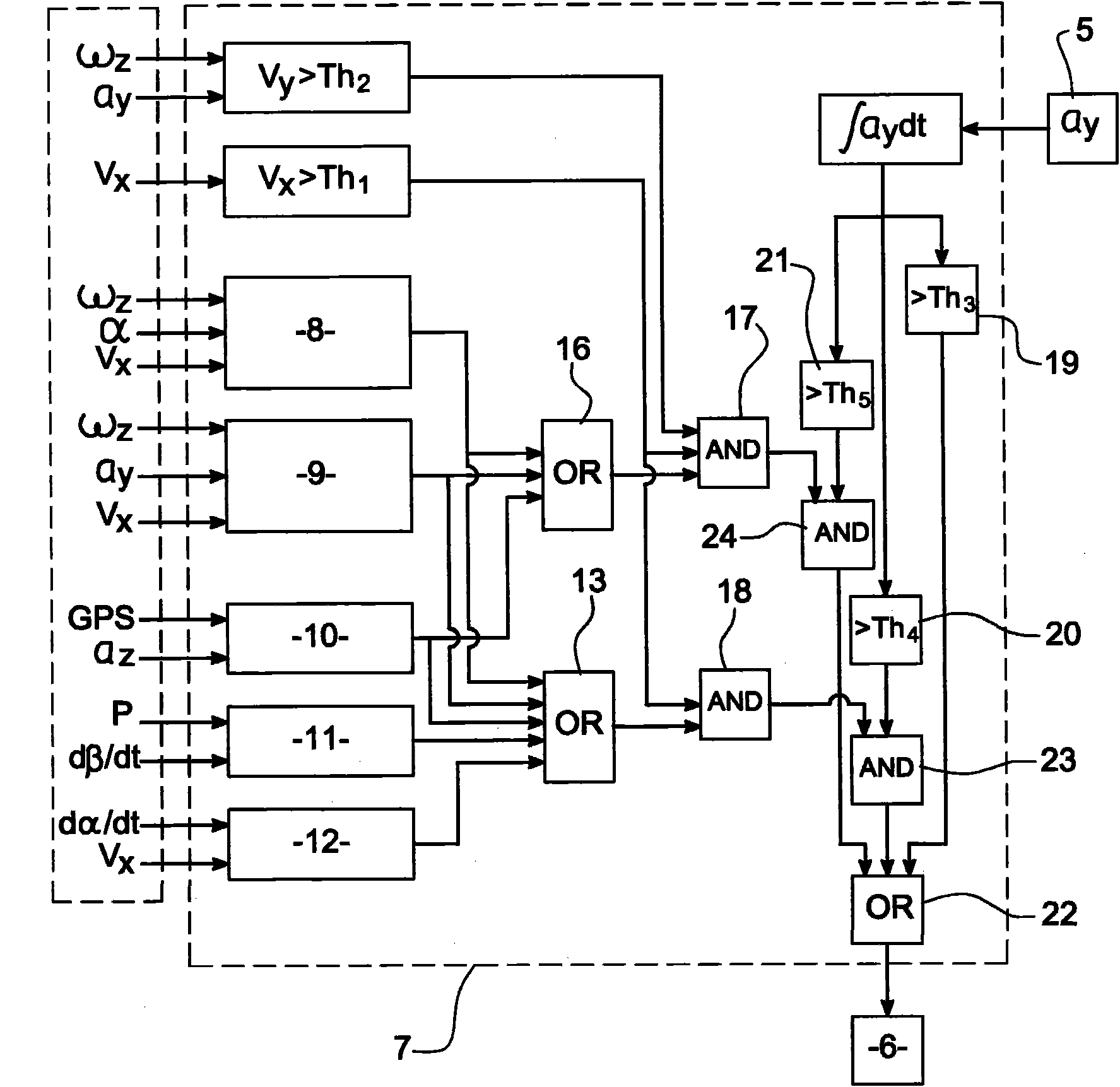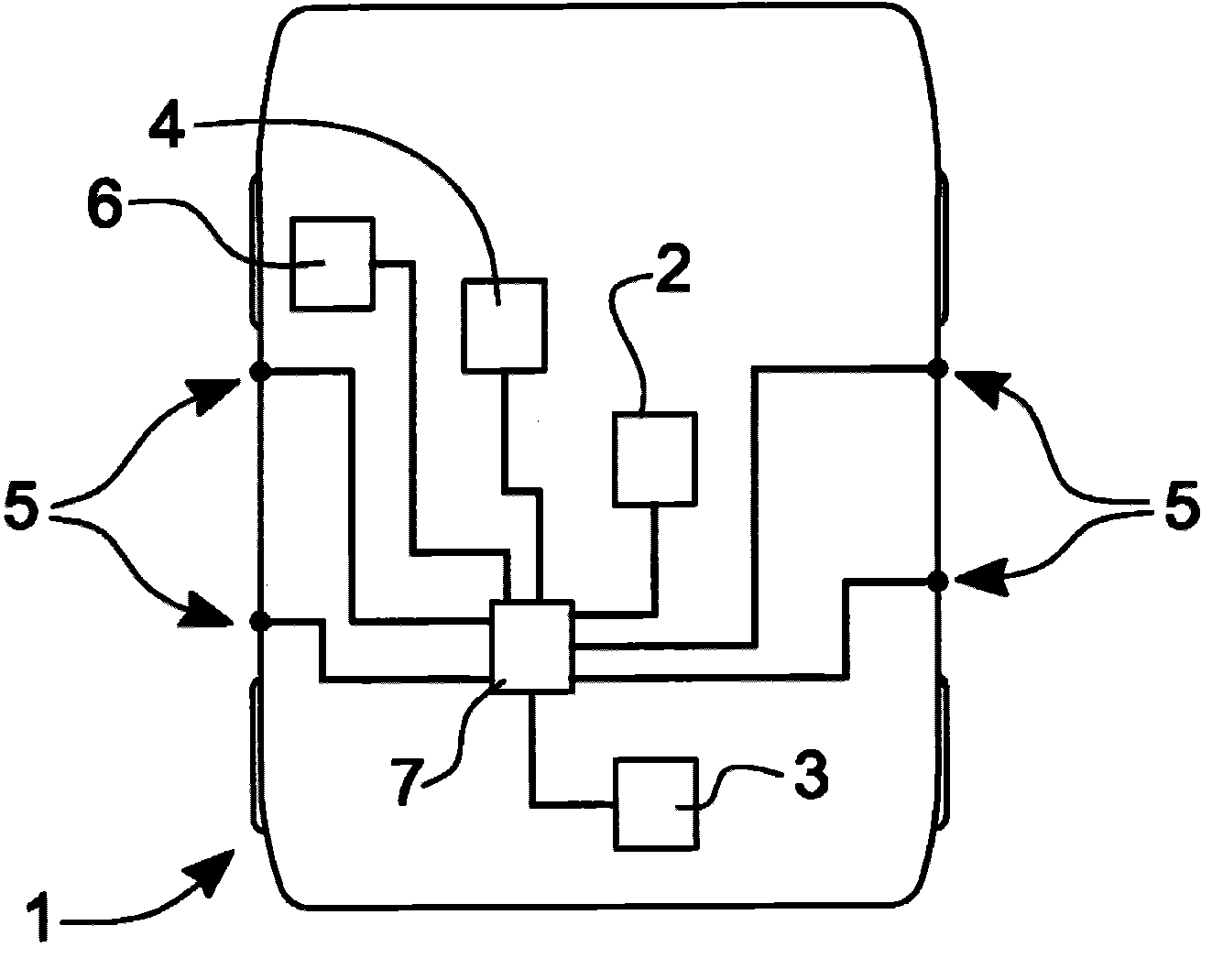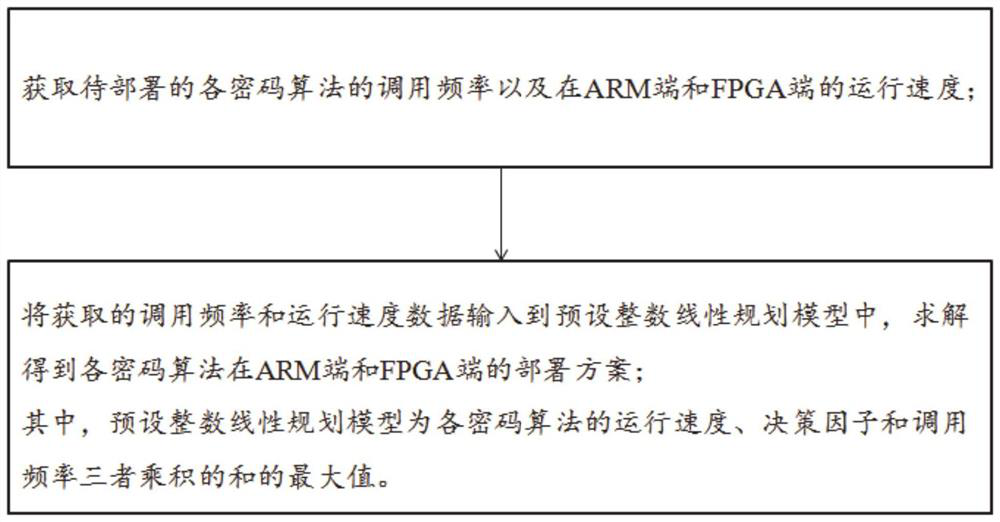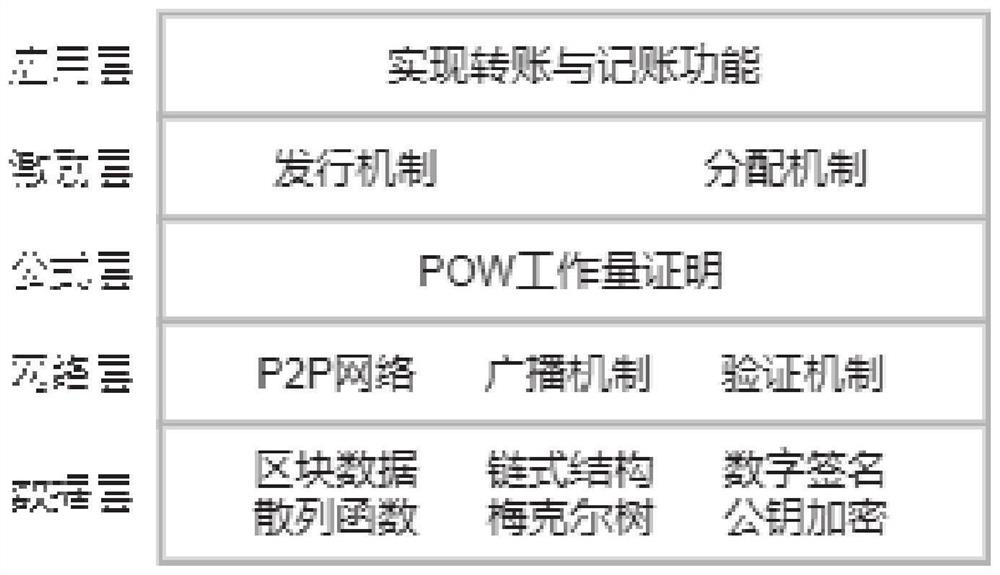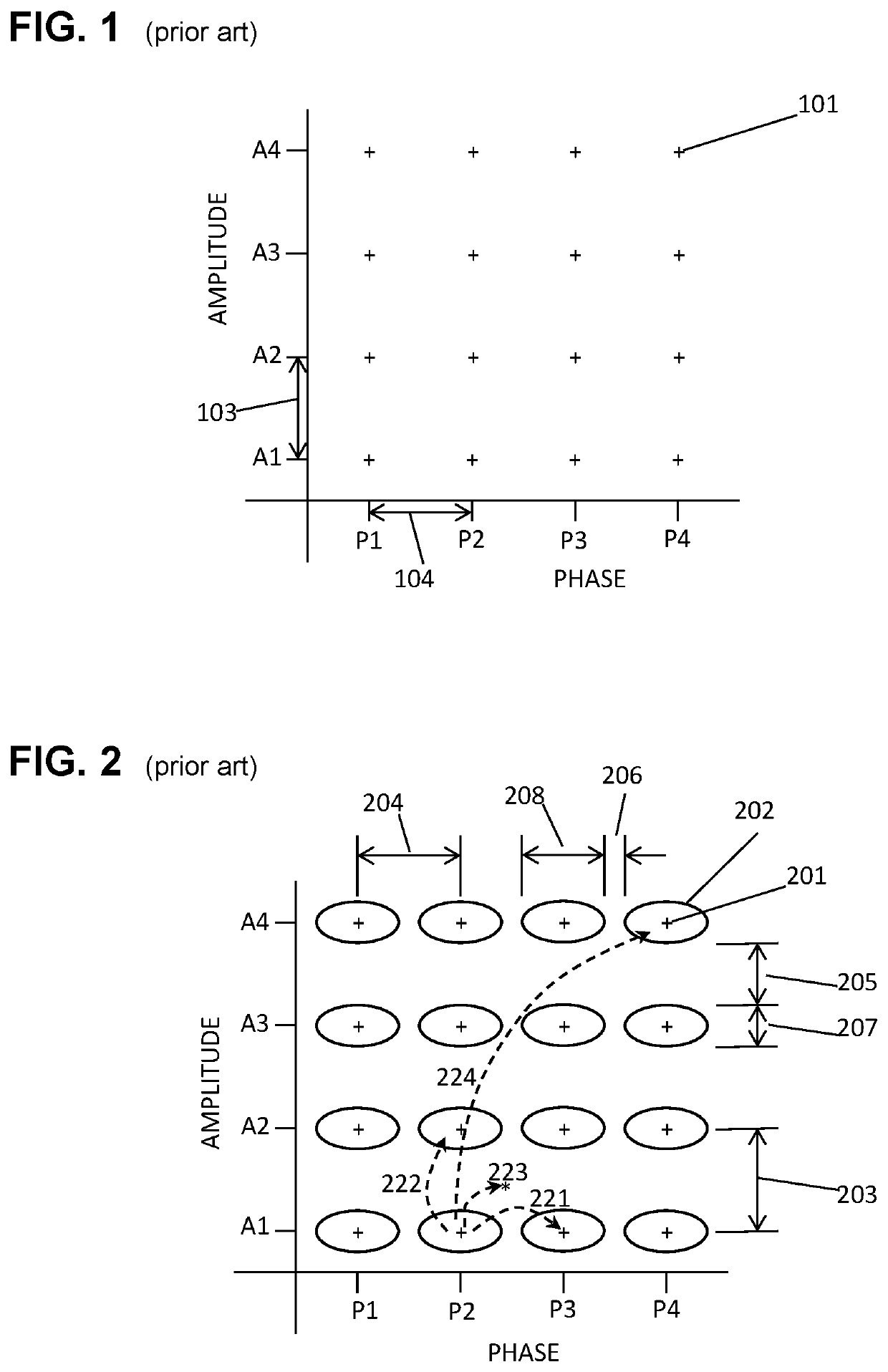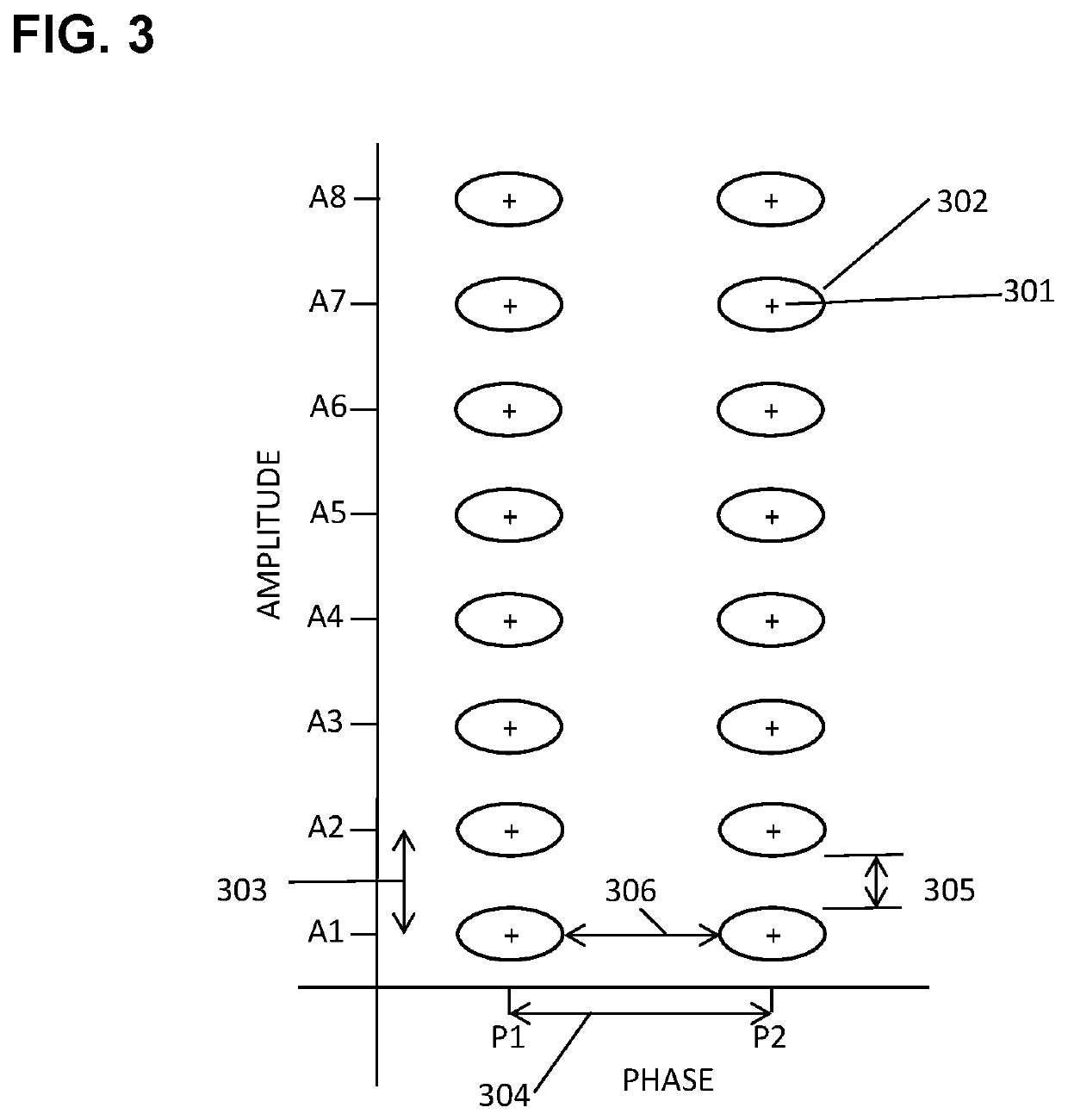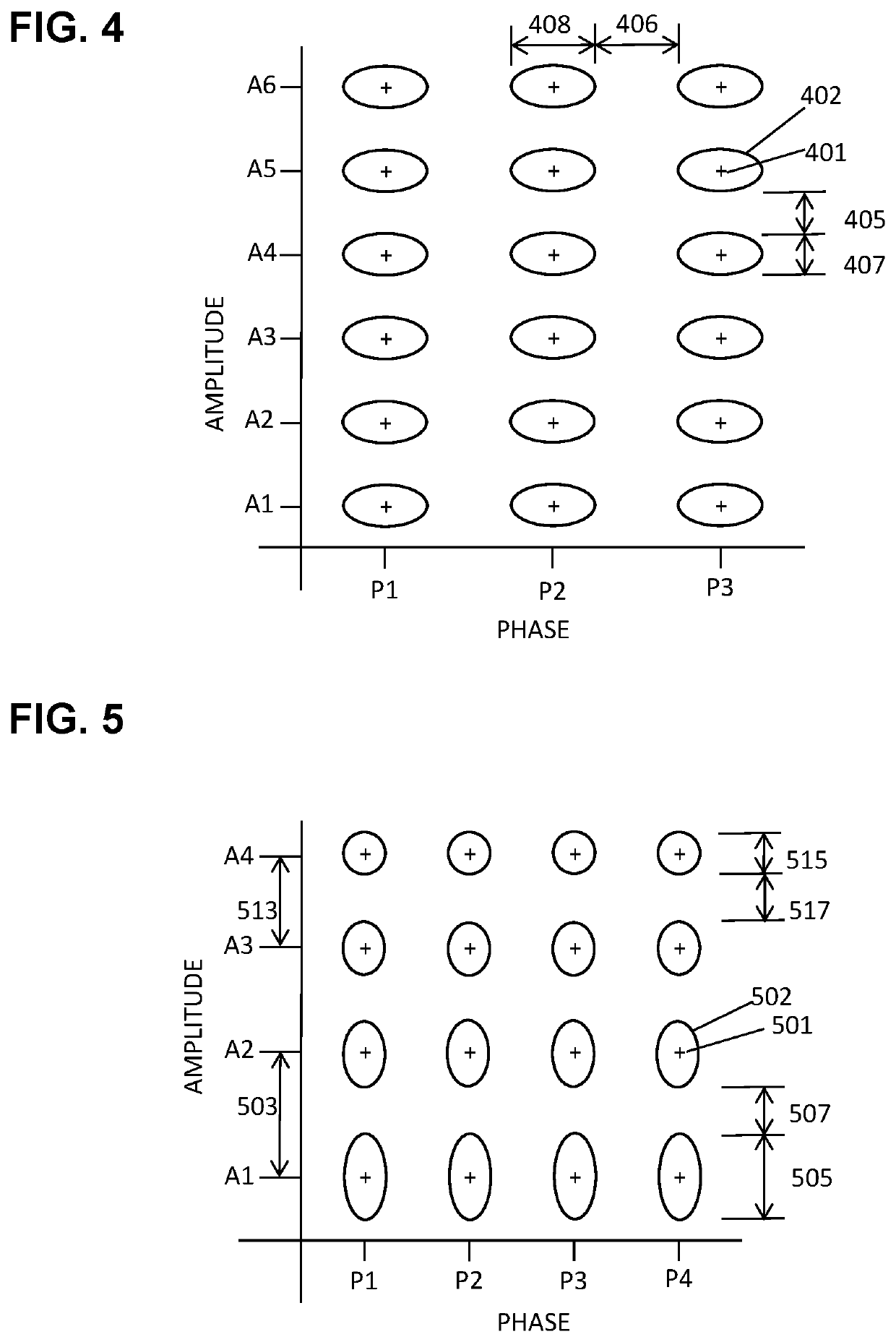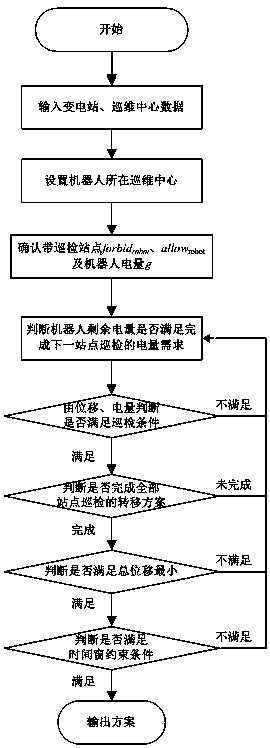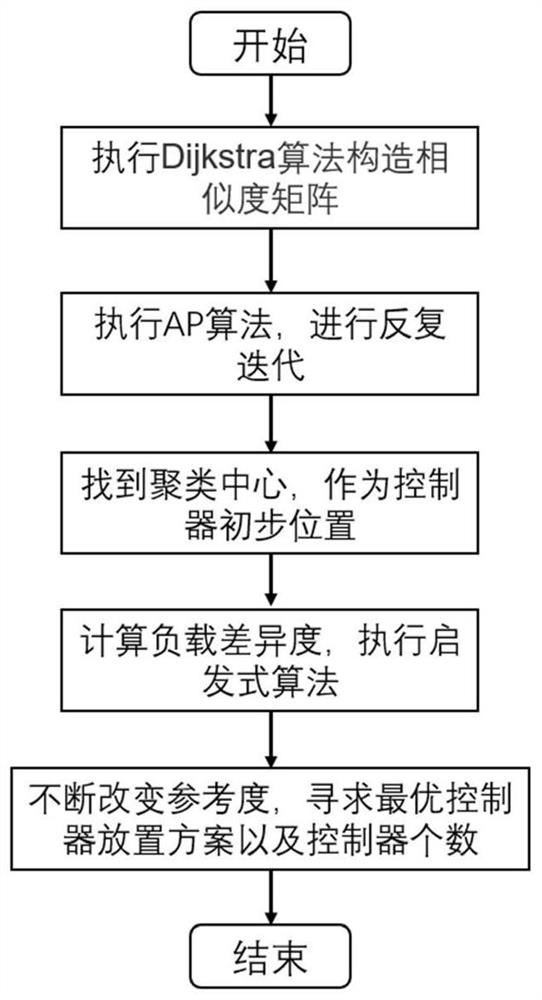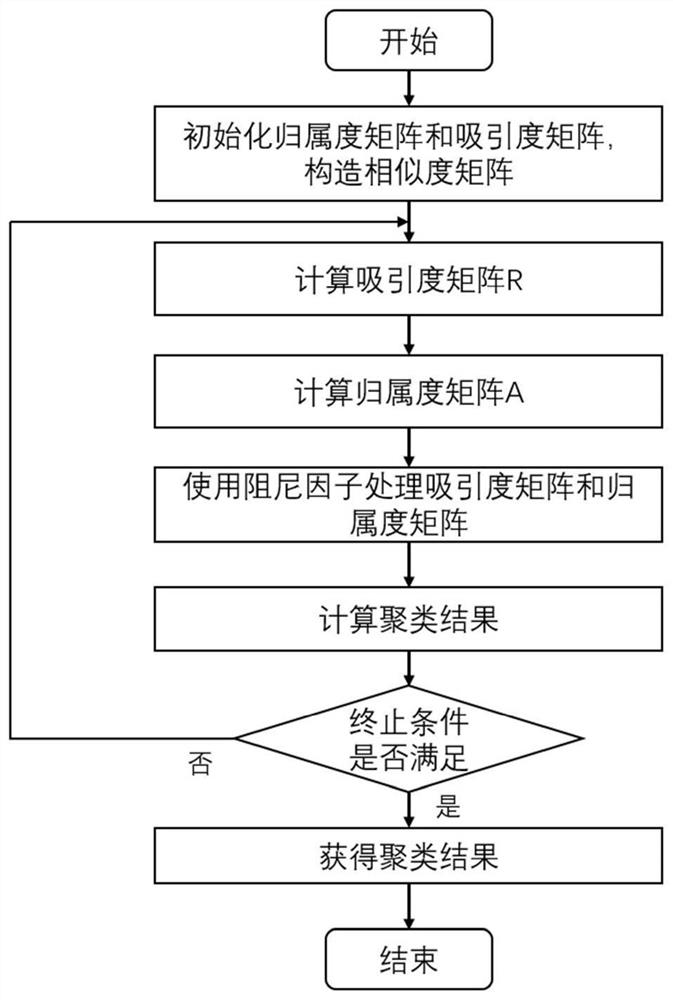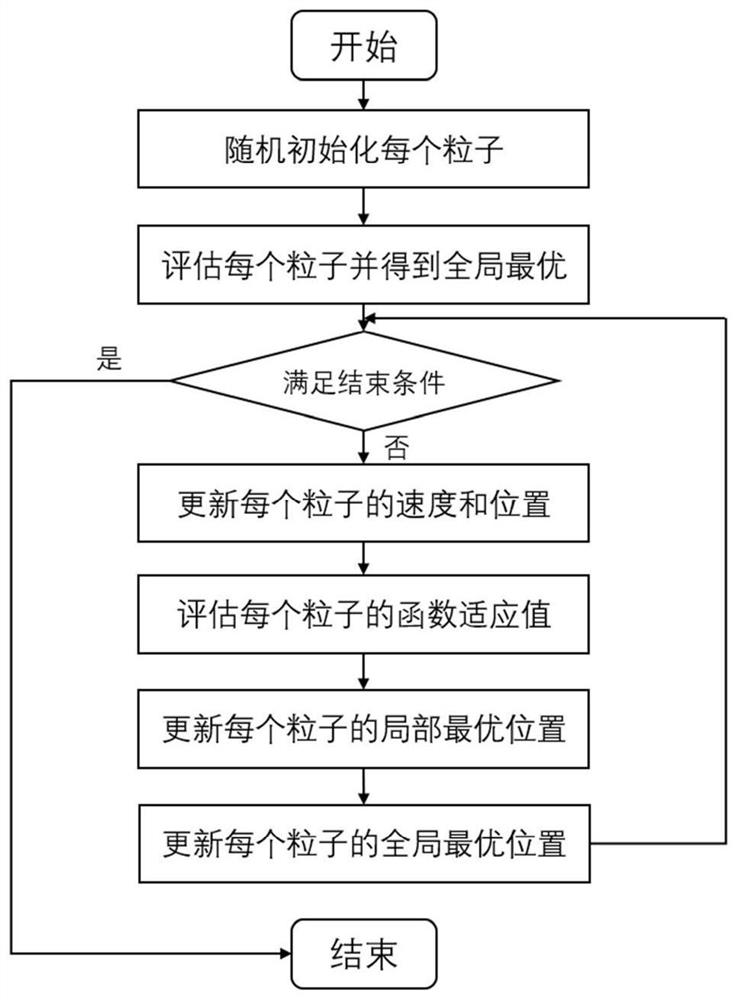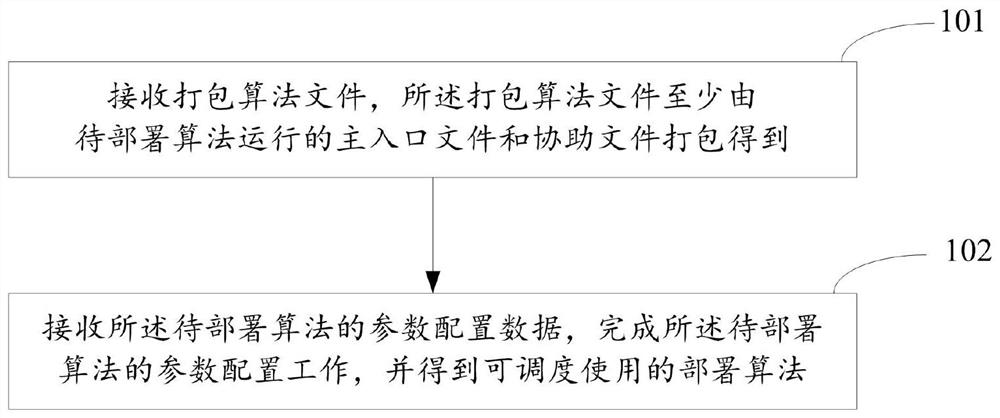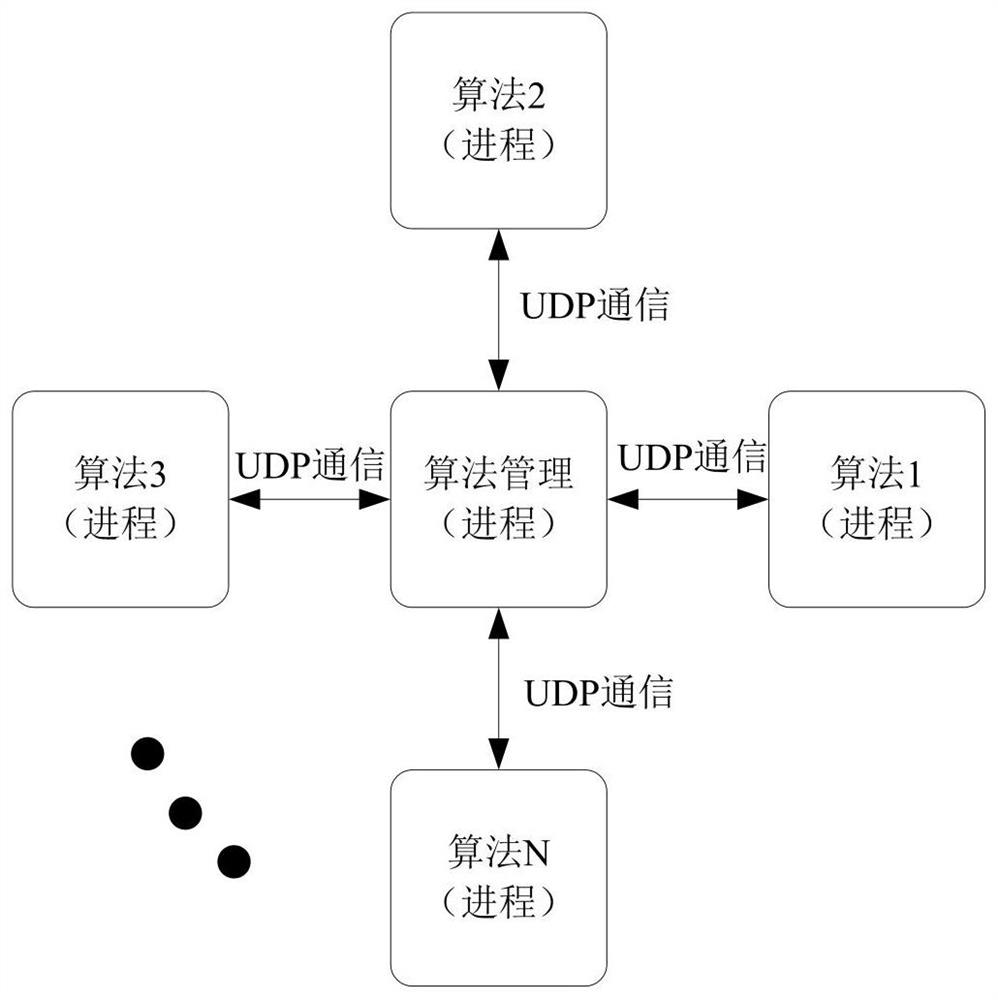Patents
Literature
77 results about "Deployment algorithm" patented technology
Efficacy Topic
Property
Owner
Technical Advancement
Application Domain
Technology Topic
Technology Field Word
Patent Country/Region
Patent Type
Patent Status
Application Year
Inventor
To deploy an algorithm to a server, a user must be: Logged into the Algo SE with server-specific M/G/T credentials and password. Authorized by a TT User Setup administrator to deploy algorithms to that server.
A service function chain deployment method based on SDN and NFV
ActiveCN109842528AImprove developmentEasy to updateData switching networksDeployment timeResource utilization
The invention discloses a service function chain deployment method based on SDN and NFV. A combination framework based on an SDN network and an NFV architecture and a modular deployment service function chain are established. Then, a service function chain deployment algorithm is carried out in the strategy controllers in the SDN network and the NFV architecture; after the user flow enters the network, the strategy controller performs strategy control; whether a network service function required by user traffic is matched with a VNF owned by a bottom layer or not is judged through a deploymentalgorithm of a service function chain; if not, the strategy control informs the management and arrangement component of the NFV of missing VNF information, and after obtaining the message, the management and arrangement component of the NFV deploys all the required VNFs into the corresponding virtual machines in a modular strategy through the NFV underlying facility resources to complete the whole deployment operation. The low time delay of the service function chain is ensured, the resource utilization rate of the service function chain is high, and the deployment time of the whole SFC is shortened.
Owner:XI AN JIAOTONG UNIV
Deployment algorithm of application distribution of virtual machine
InactiveCN105975340AAvoid wastingIncrease profitResource allocationVirtualizationDeployment algorithm
The invention relates to the technical field of cloud computing, and in particular to a deployment algorithm of the application distribution of a virtual machine. The deployment algorithm comprises the following steps: firstly, receiving a request from a user by a cloud computing platform, and analyzing and putting each application resource request into a request queue; then, according to each application resource requirement, performing matching with each virtual machine type; then, selecting a virtual machine type which has a highest matching degree with the application resource request; then, selecting a certain virtual machine case which is operated at present from the type of virtual machines with the optimal matching degree, wherein total resource load operated on the case is the most similar to the volume set by the type of virtual machine after the application resource requirement is operated if other applications are operated on the virtual machine case and the virtual machine case can meet the application resource requirement; and adding the application resource request to the case to operate tasks of the application resource request one by one. The deployment algorithm of the application distribution of the virtual machine improves the utilization rate of virtual resources, reduces resource waste and lowers cost while the service quality of a user is guaranteed, and the deployment algorithm can be used for the application distribution of the virtual machine.
Owner:G CLOUD TECH +2
Bandwidth guarantee type virtual network function (VNF) deployment method
InactiveCN106411678AGuaranteed Bandwidth RequirementsReduce lossNetworks interconnectionHigh level techniquesVirtualizationDeployment algorithm
The invention belongs to the technical field of network function virtualization and bandwidth guarantee type virtual machine deployment, and in particular relates to a bandwidth guarantee type virtual network function (VNF) deployment method. The method comprises the following steps of: (1), establishing a VNF example communication diagram according to SFC and bandwidth requirements; and (2), on the basis of the generated VNF example communication diagram, establishing a corresponding bandwidth guarantee type VNF example deployment scheme. According to the bandwidth guarantee type VNF deployment method disclosed by the invention, a bandwidth guarantee type VNF deployment strategy is adopted; according to bandwidth information provided by users, better globally optimized VNF deployment can be made in combination with a current global resource use condition; by means of a VNF example communication model and a VNF deployment algorithm of a heuristic algorithm, on one hand, bandwidth requirements of users are ensured; on the other hand, virtual machines of users can be placed in a centralized manner; therefore, unnecessary bandwidth loss can be reduced; more examples can be accepted.
Owner:TSINGHUA UNIV
Data analysis processing system and online model deployment method thereof
The present invention provides a data analysis processing system and an online model deployment method thereof. The method comprises the steps of: performing publishing of an algorithm model based ondetected user operation used for a deployment algorithm model, and displaying the published algorithm model in a user interface to allow preset users using the data analysis processing system to access and / or call the published algorithm model. The data analysis processing system and the online model deployment method thereof can provide the system or publish the algorithm model established by theusers to services capable of being accessed by other users so as to improve the cooperation of a data analysis processing system, facilitate user usage and improvement of the usage efficiency.
Owner:DATACANVAS LTD
Service function chain deployment algorithm based on resource fragment avoidance
ActiveCN110134493AExpand your search fieldReduce generationArtificial lifeData switching networksDeployment algorithmResource based
The invention discloses a service function chain deployment algorithm based on resource fragment avoidance, which uses resource fragment degree to measure resource fragment states of physical nodes and links of an underlying network, and minimizes the resource fragment degree as an optimization target. The method comprises steps of taking a fitness function value of an individual chromosome in thegenetic algorithm as a standard of spatial solution, and finishing mapping of a virtual network function by using a fusion simulated annealing genetic algorithm; and completing mapping of the virtuallinks by using an improved Dijkstra algorithm. According to the invention, generation of underlying network resource fragments is reduced to improve the utilization rate of physical resources, and meanwhile, the mapping success rate of the SFC is improved.
Owner:XIAN UNIV OF POSTS & TELECOMM
Fast and load-balanced service function chain deployment method in dynamic network environment
ActiveCN109358971ANot universalDeployment profit is highResource allocationComplex mathematical operationsNetwork sizeData center
The invention discloses a fast and load-balanced service function chain deployment method in a dynamic network environment. Most of the traditional service function chain deployment algorithms are proposed separately for multi-server network or data center network and do not have universality, As that method of the invention can be used in a multi-server network, or in a data center network, and is not limited by the size of the network; compared with traditional deployment algorithms, the invention has a wider application range, the reinforcement learning module is used to learn the network topology links, combined with the load balancing module, the shortest path which is close to the optimal solution can be obtained, Moreover, the invention can accept more SFC deployment requirements, and the total profit of the found deployment scheme is higher than that of the traditional deployment algorithm. Under the condition of effective training, the invention can output the SFC deployment scheme quickly. Compared with other high-accuracy deployment algorithms, the algorithm speed of the invention is much faster.
Owner:UNIV OF ELECTRONICS SCI & TECH OF CHINA
SDN network multi-controller deployment method capable of ensuring minimum time delay
InactiveCN107204874AReasonable deployment resultsReduce latencyData switching networksTime delaysMinimum time
The present invention belongs the network technology field, and provides an SDN controller deployment algorithm capable of ensuring the minimum time delay of a whole network. The SDN network multi-controller deployment method capable of ensuring minimum time delay comprises: performing analysis of network time delay and a topological structure, calculating time delay from each switch to all the rest switches, selecting one switch as an initial controller deployment point at will, updating the deploying position to a new switch according to the K-medoids algorithm so as to ensure the minimum time delay of all the rest switches; selecting a switch having the maximum time delay to the controller deployment point in the whole network as another new controller deployment point, performing reassignment of the switches in the whole network according to the time delay, and updating of each controller deployment point through the K-medoids algorithm; and going on repetition the process mentioned above until there are K controller deployment points. The SDN network multi-controller deployment method capable of ensuring the minimum time delay is mainly applied to the network control and management occasions.
Owner:TIANJIN UNIV
Probe deployment method based on vertex cover and weak vertex cover
InactiveCN105490834AReduce the numberShort timeData switching networksGreedy algorithmDeployment algorithm
The invention relates to a probe deployment method based on vertex cover and weak vertex cover. The probe deployment method comprises the following steps: determining the quantity of probes and deployment locations of test probes in a network. The probe deployment method provided by the invention has the advantages as follows: based on a greedy algorithm of minimal vertex-covering problems, the method is improved on the basis of the algorithm, and a probe deployment algorithm based on the vertex cover and weak vertex cover is provided. Firstly, minimum vertex cover is used, so that the quantity of flow monitors is minimum under the condition that the flow of each link is obtained, and then the minimum vertex cover is improved as minimum weak vertex cover. Simulation results show that compared with a deployment scheme based on the minimum vertex cover, the scheme provided by the invention has the advantages that fewer probes are used, in addition, the algorithm is simpler, the consumed time is short, and the scheme is a more excellent network flow monitoring probe deployment scheme.
Owner:YUNNAN ELECTRIC POWER DISPATCH CONTROL CENT
Instantaneous interactive network based gaming and betting management system
InactiveUS20080085770A1Apparatus for meter-controlled dispensingVideo gamesDeployment algorithmGame based
An instantaneous gaming and betting management system is designed to offer users the ability to select blocks from a gaming matrix using wired and or wireless devices over a network based system. The games can be sporting events, community events. Algorithms can be deployed to help equalized the probabilities of score outcomes or to yield various pay-outs based on the outcome. Payouts can be monetary, points, prizes, non-monetary rewards or compliments. The user interface can be optionally altered to give feedback to the user based on the status of the game.
Owner:MORGAN DWIGHT M
Multi-objective optimized virtual machine deployment algorithm for network range
ActiveCN110362380ASolve the VMP problemCommunication overhead is comprehensively smallEnergy efficient computingSoftware simulation/interpretation/emulationNode clusteringDescent algorithm
The invention discloses a multi-objective optimized virtual machine deployment algorithm for a network range, called MVMDNR for short. The algorithm comprises: combining characteristics that network target range virtual machine deployment takes a scene as a unit and communication between scenes is isolated, solving the VMP problem by referring to the idea of the ant colony algorithm; when a virtual machine request is reached; initializing a control node cluster and an intimacy matrix, each control node selecting the deployment position of each virtual machine through probability, realizing positive feedback through intimacy enhancement and volatilization after each round of iterative search, and finally, screening a scheme that the load unbalance degree of a target range physical machine and the communication overhead of the virtual machines is minimum comprehensively. Compared with a random algorithm and an optimal adaptive descent algorithm, the multi-objective optimized virtual machine deployment algorithm provided by the invention has remarkable advantages in reducing the communication overhead of the virtual machine and the load unbalance degree of physical machine resources.
Owner:SOUTHEAST UNIV
Service function chain (SFC) deployment method based on flow splitting
ActiveCN109412963AImprove service qualityIncrease acceptance rateNetworks interconnectionQuality of serviceDeployment algorithm
The invention discloses a service function chain (SFC) deployment method based on flow splitting. During deployment of an elephant flow SFC request, an SFC is split into a plurality of sub-chains fordeployment, so that the elephant flow receptance rate is improved; the excessive queuing delay of mouse flow queued after elephant flow due to network congestion caused by occupation of excessive bandwidth resources by the elephant flow can be relieved; and the quality of service of a data center network is improved. According to a deployment algorithm provided by the invention, a chain with mostremaining bandwidth resources is selected based on a worst-fit strategy for deployment, so that the network congestion can be reduced. During deployment of the SFC with the algorithm provided by the invention, the hops between servers deployed with the virtual network function of the same SFC in the network are minimized to lower the consumption of network bandwidth resources.
Owner:UNIV OF ELECTRONICS SCI & TECH OF CHINA
Relay node robustness covering method for double-layer structure wireless sensor network
ActiveCN105704732AEfficient deploymentIncreased complexityPosition fixationNetwork planningWireless sensor networkingDeployment algorithm
Owner:SHENYANG INST OF AUTOMATION - CHINESE ACAD OF SCI
Water-saving irrigation internet of things integrated system for crop cultivation and operation method
InactiveCN108924781ADiversity guaranteedIntegrity guaranteedParticular environment based servicesNetwork topologiesCoverage ratioGreenhouse cultivation
The invention discloses a water-saving irrigation internet of things integrated system for crop cultivation. The system comprises a WSN (Wireless Sensor Networks) ad-hoc network for crop greenhouse cultivation and a node deployment module; the ad-hoc network comprises an ad-hoc network formed by WSN nodes and a WSN base station; the WSN nodes include sensor nodes, control nodes, a gateway and a relay node; a virtual force algorithm based on a variable step is adopted by the node deployment module to deploy the sensor nodes in a node static sensing range; and the virtual force algorithm based on the variable step changes a movement step of each of the sensor nodes based on a sigmoid function by establishing a two-dimensional planar model of a cultivation area and a sensing model of each ofthe nodes. According to a water-saving irrigation WSN node deployment algorithm for the crop cultivation provided by the invention, while the later convergent stability is guaranteed, the purpose of optimal effect for covering an equal number of nodes in a relatively short time can also be achieved; and thus, the time for obtaining a deployment strategy is shortened, the monitoring coverage rate is improved, and the comprehensiveness and the integrity of data monitoring are guaranteed.
Owner:SOUTHEAST UNIV
Industrial multi-core network construction method
ActiveCN108322525AIncrease load capacityGuaranteed communication qualityData switching networksNode clusteringCommunication quality
The invention discloses an industrial multi-core network construction method. According to the method, through adoption of a multi-center clustering placement algorithm, a topological structure of a multi-layer multi-core SDN smart network is divided logically. All nodes in the network are abstracted into an original graph, and the original graph is shrunk to a suitable scale; regional division and node clustering are carried out according to node attribute values; and divided sub-graphs are tracked back into the original graph according to the topological structure, thereby realizing a largescale network slice grouping effect. The industrial multi-core network construction method provided by the invention is simple and feasible, the engineering realization is facilitated, a complex taskincapable of being processed by a single smart network can be solved, the load capacity of the network is improved, and the communication quality required by the industrial Internet is ensured well.
Owner:ZHEJIANG GONGSHANG UNIVERSITY
Virtual network function deployment method suitable for multi-dimensional resource optimal configuration
ActiveCN110851235AThere will be no performance degradation issuesImprove scalabilitySoftware simulation/interpretation/emulationHigh level techniquesDeployment algorithmEngineering
The invention provides a virtual network function deployment method suitable for multi-dimensional resource optimal configuration. The method comprises the following steps: step 1, acquiring a networkstate, and updating available resources of all nodes and residual bandwidths of links; 2, when a service function chain deployment request is detected, judging whether the network meets deployable conditions or not; 3, determining a deployable node set of the request according to the sequence constraint of each virtual network function in the request; 4, calculating the node resource capability and the path resource capability of each deployable node; 5, determining an optimal deployment path by adopting a service function chain deployment algorithm based on a Viterbi backtracking method; and6, deploying the virtual network functions according to the optimal deployment path and the node sequence to form a target service function chain, updating the network state, and returning to the step 1. According to the method, various resources can be balanced according to respective use degrees, and the network performance is considered while the overall resource consumption of network configuration is optimized.
Owner:PLA STRATEGIC SUPPORT FORCE INFORMATION ENG UNIV PLA SSF IEU +1
Cloud computing virtual machine deployment algorithm based on energy consumption
The invention discloses a cloud computing virtual machine deployment algorithm based on energy consumption, comprising a virtual machine initial deployment algorithm and a virtual machine re-deployment algorithm. The virtual machine initial deployment algorithm is a DRWMG (different resource with minimum gap) algorithm provided herein and includes: classifying newly arrived virtual machine requests into CPU (central processing unit) intensive requests, memory intensive requests and normal requests; applying different deployment strategies provided herein to the different types of virtual machine requests. The virtual machine initial deployment algorithm is an MCA (migration cost algorithm) provided herein, including: periodically re-deploying existing virtual machines according to virtualmachine migration overhead (migration time, migration energy consumption and downtime). Compared with existing virtual machine deployment algorithms, the DRWMG algorithm provided herein can reduce energy consumption of a cloud computing system and bring improved balance for the use of different resources of physical machines; the MCA provided herein can reduce the energy consumption of the cloud computing system and the migration overhead of virtual machines in the cloud computing system.
Owner:UNIV OF ELECTRONICS SCI & TECH OF CHINA
Deployment algorithm of large-scale RFID (radiofrequency identification) readers in three-dimensional space
ActiveCN103793551ASimplify calculation difficultyQuickly assess coverageBiological modelsSpecial data processing applicationsAlgorithmThree-dimensional space
The invention provides a deployment algorithm of large-scale RFID (radiofrequency identification) readers in three-dimensional space. The deployment algorithm is characterized by utilizing a quantification method to respectively convert a reader-writer model and a to-be-covered region model in the three-dimension space into a three-dimensional matrix, and transforming the deployment of the reader-writer into the deployment of the three-dimensional matrix according to the matrix theory; to difference in propagation directions of reader antennas, providing a method for building a reader three-dimensional covering model matrix set through rotation matrix so as to realize mapping setting of the reader antennas; further, providing methods for calculating performance index of coverage rate and overlap rate in the deployment algorithm; finally, to deployment of the RFID readers, providing an improved strategy of a particle swarm algorithm on the basis of rule of elimination. Reader border crossing and elimination systems are added in the strategy, and the standard particle swarm algorithm is improved.
Owner:UNIV OF ELECTRONIC SCI & TECH OF CHINA
Randomized road side unit deployment algorithm
InactiveCN108924793AImprove connectivityIncrease the probability of receiving a messageParticular environment based servicesVehicle infrastructure communicationDeployment algorithmEngineering
The invention discloses a randomized road side unit deployment algorithm. According to the algorithm, under a condition that connectivity P of a vehicular network is given, the approximate optimal solution for road side unit deployment is calculated; road side units are deployed at equidistance; initial positions of vehicles are randomized; and advantages and disadvantages of a deployment scheme are decided by testing connected probability of randomly appointed vehicle units and the road side units. For each network with N vehicles, a threshold and M road side units correspond to the network,so after the M road side units are deployed in the network, the given network connectivity P can be achieved. The algorithm is simple in method and high in performance efficiency and is applicable tothe road side unit deployment in a vehicular network environment, so the connectivity of the vehicular network is effectively improved, and probability of receiving messages by the vehicles is improved.
Owner:JIUJIANG UNIVERSITY
Service function chain deployment method based on breadth-first search
ActiveCN109379230ANo bound sizeNo constraintsData switching networksHigh level techniquesDeployment algorithmComputer science
The invention discloses a service function chain deployment method based on breadth-first search. The deployment algorithm proposed by the invention does not constrain the scale or the sparse characteristics of the network, and thus can be applied to most networks. The algorithm proposed by the invention is based on the shortest path between a service terminal and a user to implement the service function chain deployment, so the bandwidth cost and delay consumed by the deployment are reduced, and the deployment cost is reduced accordingly. In the selection of nodes, the node load rate and thelink load rate are considered, an optimal selection factor is designed to reflect the impact of the load rate on the node selection, and the load balancing is optimized.
Owner:UNIV OF ELECTRONICS SCI & TECH OF CHINA
Vehicle Safety System
ActiveUS20110071732A1Short can be generatedDigital data processing detailsPedestrian/occupant safety arrangementOccupant safetyDeployment algorithm
A vehicle safety system comprising: at least one occupant safety device (6) for protecting an occupant of the vehicle (1) in the event of a side impact; and a control unit (7) operable to receive information from one or more vehicle sensors (2, 3, 4, 5) and to provide a trigger signal to activate the occupant safety device (6). Under normal driving conditions, a default deployment algorithm is used by the control unit (7) to determine whether the trigger signal should be generated; and if it is determined that loss of control of the vehicle (1) is occurring, or is expected to occur, and the longitudinal speed of the vehicle (1) exceeds a first threshold, the control unit (7) employs a first further deployment algorithm to determine whether the trigger signal should be generated. The first further deployment algorithm being adapted to cause the trigger signal to be generated a shorter time after the initiation of a side impact than is the case for the default deployment algorithm.
Owner:VEONEER PASSIVE CO AB
A method for micro-cloud deployment and user task scheduling in a wireless metropolitan area network environment
ActiveCN109005211AShort response timeLower average wait timeProgram initiation/switchingResource allocationWireless metropolitan area networkDeployment algorithm
The invention discloses a micro-cloud deployment and user task scheduling method under a wireless metropolitan area network environment, which overcomes the defects of micro-cloud overload and long queue time by introducing a network delay threshold which can be tolerated by the system, and effectively reduces the average system response time. The invention also discloses a micro-cloud deploymentand user task scheduling method under a wireless metropolitan area network environment. The optimization of micro-cloud deployment scheme and user task scheduling scheme is studied in order to reducethe average waiting time of unloaded tasks. According to a given integer K being equal or greater than 1, K micro-clouds are deployed at K receiving points in the wireless metropolitan area network (WMAN), and then user tasks in the WMAN are scheduled to the micro-clouds according to certain rules, so that the average waiting time of the unloaded tasks of the user is minimized. On the basis of theload priority algorithm, the invention optimizes the obvious defects of the algorithm, and proposes a density priority deployment algorithm which is closest to the optimal algorithm according to theactual situation, so as to effectively minimize the system response time and remarkably optimize the mobile application performance of the metropolitan area network.
Owner:FUJIAN NORMAL UNIV
Passenger protection device
InactiveUS20050209753A1Avoid failureDigital data processing detailsPedestrian/occupant safety arrangementDeployment algorithmEngineering
A device for vehicle occupant protection. A processor connectable to at least two sensors may execute a deployment algorithm, and, in response to a failure of at least one of the sensors, may alter a sequence of execution of the deployment algorithm according to a point in time of the failure.
Owner:ROBERT BOSCH GMBH
Low-delay containerized task deployment method and device based on cloud edge collaboration
ActiveCN113301151AImprove deployment efficiencyImprove execution performanceEnergy efficient computingData switching networksDeployment timeEdge node
The invention discloses a low-delay containerized task deployment method and device based on cloud edge collaboration, and the method comprises the steps: building a containerized task deployment model in a cloud edge collaboration scene, and representing the bandwidth from a mobile terminal to an edge node and a cloud data center and the deployment cost of a container mirror image layer, wherein the response time delay of the containerized task is subjected to formalized analysis which specifically comprises task transmission time delay, container mirror image deployment time delay and task execution time delay, and an optimization problem of response time delay minimization is established; and relaxing the optimization problem into a linear programming problem, and using a container deployment algorithm designed based on a random rounding technology to complete the deployment of a containerized task. According to the method, the containerized task is processed in parallel based on the cloud edge collaboration scene, so that the aim of optimizing the response time delay of the containerized task is fulfilled.
Owner:NANJING UNIV
Virtual machine cluster deployment algorithm
InactiveCN105867998AIncrease profitReduce performanceResource allocationSoftware simulation/interpretation/emulationDeployment algorithmMirror image
The present invention relates to the technical field of cloud computing, and in particular to a virtual machine cluster deployment algorithm. The virtual machine cluster deployment algorithm comprises the steps of: analyzing a resource type of a cluster; filtering out a request that cannot be met; creating a priority queue; cyclically traversing all physical machines, and calculating a load coefficient L of each physical machine, and determining whether the physical machine can be selected as a deployment node; calculating a load value of each physical machine according to the resource type of the cluster, inserting the load value into the priority queue, and sorting elements of the priority queue in descending order of the load values; performing virtual machine mirror image transmission one by one in an order of the queue; and starting all virtual machines of the cluster, so as to complete cluster deployment. The present invention realizes a cluster deployment algorithm based on load value calculation; and the algorithm can be used for virtual machine cluster deployment.
Owner:G CLOUD TECH +2
Vehicle safety system
Owner:VEONEER SWEDISH SECURITY SYST GMBH +1
Ethereum deployment method and system based on ZYNQ heterogeneous computing platform
ActiveCN111970112AIncrease profitRun fastMultiple keys/algorithms usageDeployment algorithmPerformance index
The invention provides an Ethereum deployment method and system based on a ZYNQ heterogeneous computing platform. The Ethereum deployment method comprises the following steps: obtaining the calling frequency of each cryptographic algorithm to be deployed and the running speed at an ARM end and an FPGA end; inputting the obtained calling frequency and running speed data into a preset integer linearprogramming model, and solving a deployment scheme of each cryptographic algorithm at the ARM end and the FPGA end, wherein the preset integer linear programming model is the maximum value of the sumof the products of the running speed, the decision factor and the calling frequency of each cryptographic algorithm. Performance indexes of the to-be-deployed algorithm and different operation modesof each algorithm are considered, so that the operation speed after deployment and the utilization rate of resources are greatly improved.
Owner:SHANDONG UNIV
Selecting a Modulation Table to Mitigate 5G Message Faults
ActiveUS20220295344A1Easy to adjustReduced failure modesError prevention/detection by using return channelNetwork traffic/resource managementCyber operationsAlgorithm
Artificial Intelligence (AI) means are disclosed for enabling network operators to optimize 5G and 6G messaging performance, in real-time. AI models, or fieldable algorithms derived therefrom, can select an appropriate modulation scheme according to network conditions. Modulation variables can then be adjusted to optimize performance, such as throughput or failure rates, for low or high traffic densities. Three development phases are described: network data acquisition including faults experienced under various network conditions, AI structure tuning for accurate prediction of performance, and implementation of a fieldable algorithm based on the AI structure. Network operators can use the fieldable algorithm to compare predicted performance metrics in real-time, according to various operating conditions (such as available modulation schemes), and thereby adjust particular modulation parameters (such as amplitude or phase levels).
Owner:MASSENGILL R KEMP +1
A cross-region deployment algorithm of substation patrol inspection robot under centralized control
ActiveCN109242338AImprove efficiencyImprove utilization efficiencyResourcesInformation technology support systemDeployment algorithmAllocation algorithm
The invention relates to the technical field of substation patrol robot allocation, in particular to a cross-region allocation algorithm of substation patrol inspection robot under centralized control. The invention provides a trans-regional resource allocation method aiming at a single substation patrol robot, which can effectively avoid the waste of manpower, material resources and time cost when the patrol inspection robot is transported and used between different patrol centers and substations, and greatly improves the use efficiency of the patrol robot, creatively puts forward a robot resource allocation algorithm based on Belief Desire Intention (BOI), overcomes the contradiction between the limited number of inspection robots and the large number of substations to be inspected, andimproves the efficiency of inspection robots; creatively realizes the cross-regional deployment of patrol robot resources between different patrol centers, overcomes the prominent contradiction between the growing number of substations and the shortage of patrol personnel, and has a wide range of engineering application value.
Owner:ELECTRIC POWER RES INST OF GUANGXI POWER GRID CO LTD
SDN multi-controller deployment method based on AP clustering
ActiveCN114707575ALoad balancingReduce latencyCharacter and pattern recognitionTransmissionCluster algorithmPathPing
The invention discloses an SDN (Software Defined Network) multi-controller deployment method based on AP (Access Point) clustering, which aims at reducing network delay and ensuring network load balance and designs a multi-controller deployment algorithm capable of automatically determining the number and position of controllers by improving an affinity propagation (AP) clustering algorithm. Firstly, the shortest path distance between nodes is calculated by quantifying the intimacy relationship in network nodes, the distance is applied to construction of a clustering algorithm similarity matrix, secondly, iterative calculation is performed by using the similarity matrix, and the deployment number and positions of controllers are preliminarily determined. And finally, a controller placement scheme enabling the load difference degree between the controllers to be minimum is found through a heuristic algorithm, so that the load balance of the whole network is ensured.
Owner:NANJING UNIV OF POSTS & TELECOMM
Algorithm management method and device for edge computing equipment
PendingCN113590336AIncrease flexibilityReduce the difficulty of operationResource allocationEdge computingParallel computing
The embodiment of the invention discloses an algorithm management method and device for edge computing equipment, the method is applied to the edge computing equipment, and the method comprises the steps that a packaging algorithm file is received, and the packaging algorithm file is at least obtained by packaging a main entry file and an assistance file operated by a to-be-deployed algorithm; and parameter configuration data of the to-be-deployed algorithm is received, parameter configuration of the to-be-deployed algorithm is finished, and a deployable algorithm which can be used in a dispatched manner is acquired. According to the scheme, a coupling relation does not exist between the deployment algorithm and the edge computing device, the algorithm form that the main entry file is matched with the assistance file compression package is adopted, multiple types of algorithms can be adapted, the flexibility of algorithm deployment is improved, and the operation difficulty is reduced.
Owner:上海仁童电子科技有限公司
Features
- R&D
- Intellectual Property
- Life Sciences
- Materials
- Tech Scout
Why Patsnap Eureka
- Unparalleled Data Quality
- Higher Quality Content
- 60% Fewer Hallucinations
Social media
Patsnap Eureka Blog
Learn More Browse by: Latest US Patents, China's latest patents, Technical Efficacy Thesaurus, Application Domain, Technology Topic, Popular Technical Reports.
© 2025 PatSnap. All rights reserved.Legal|Privacy policy|Modern Slavery Act Transparency Statement|Sitemap|About US| Contact US: help@patsnap.com
